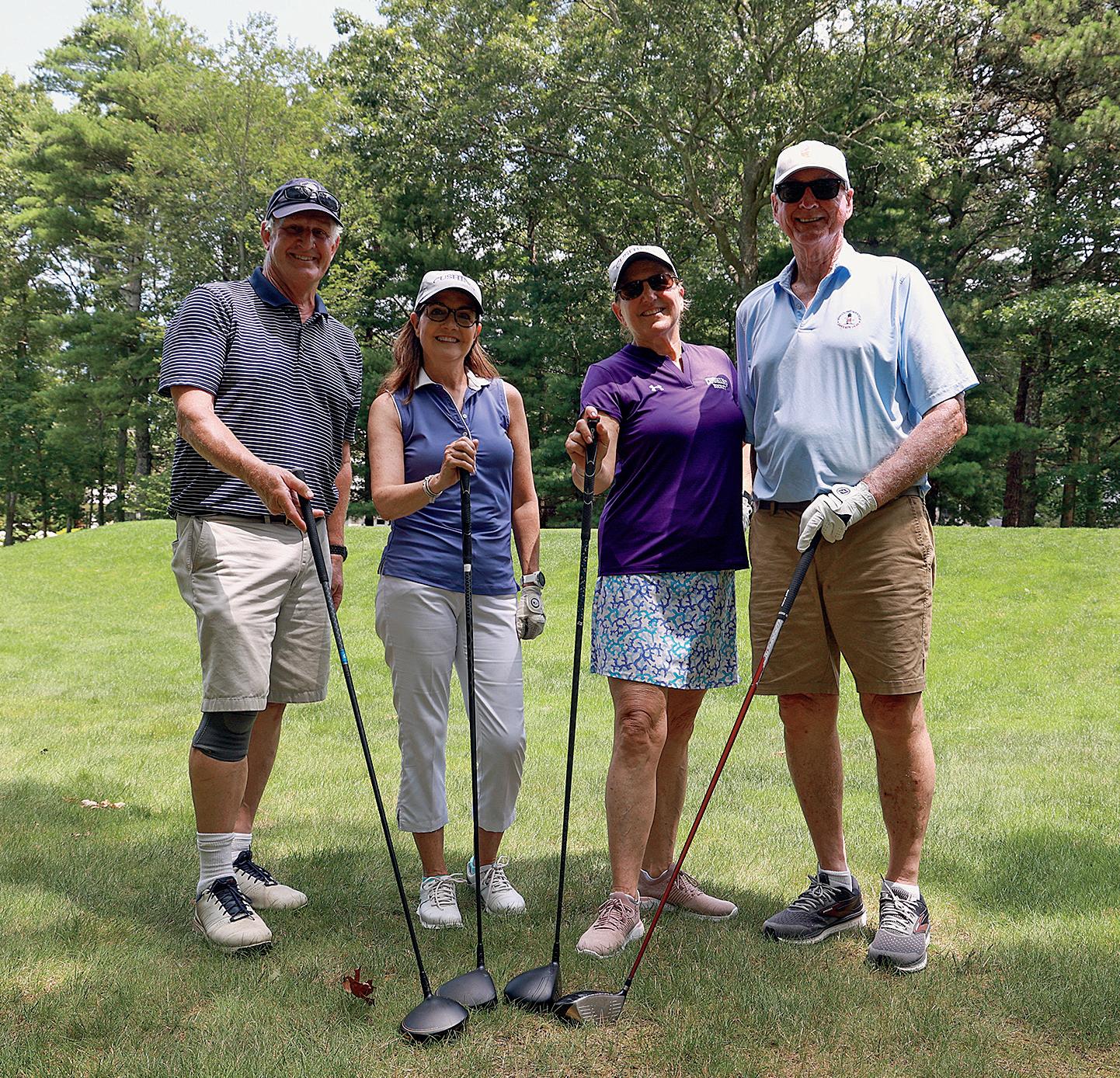







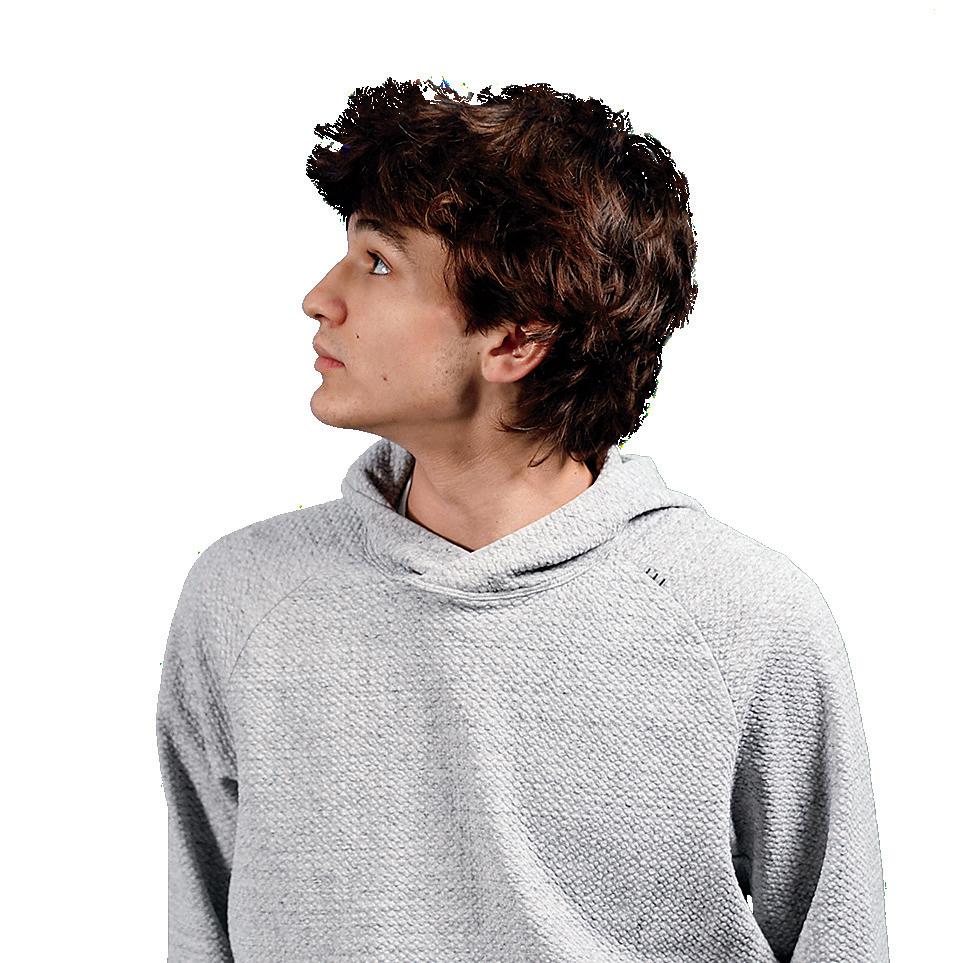










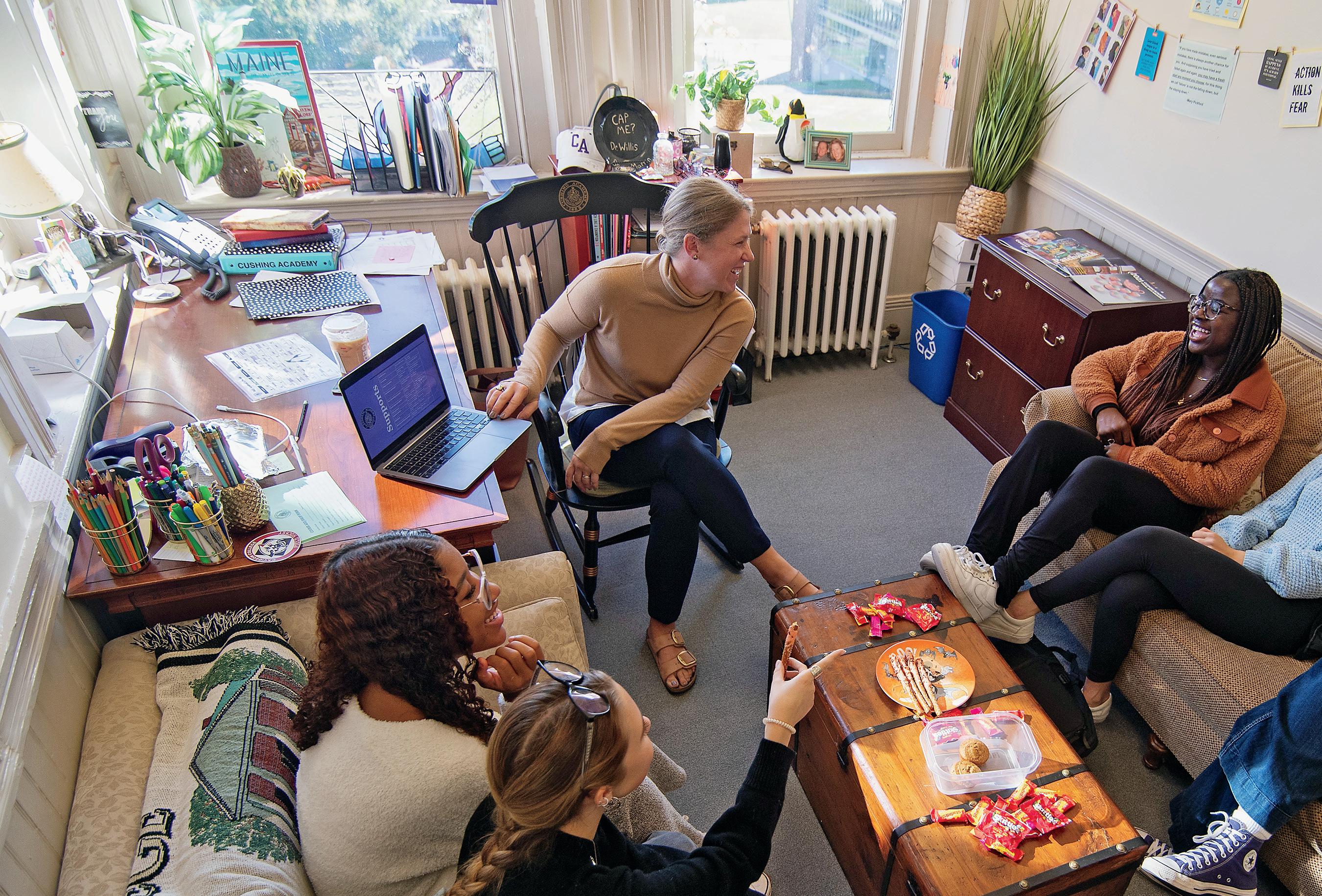
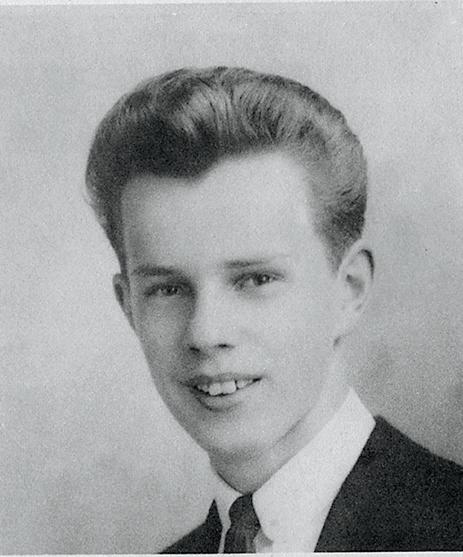
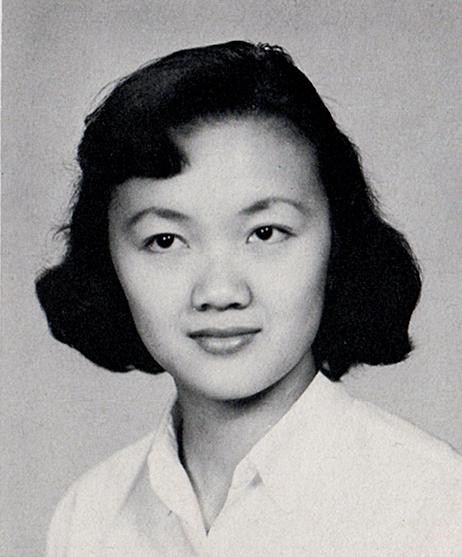
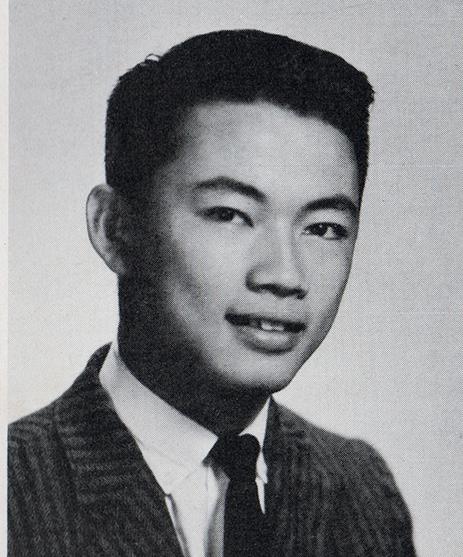
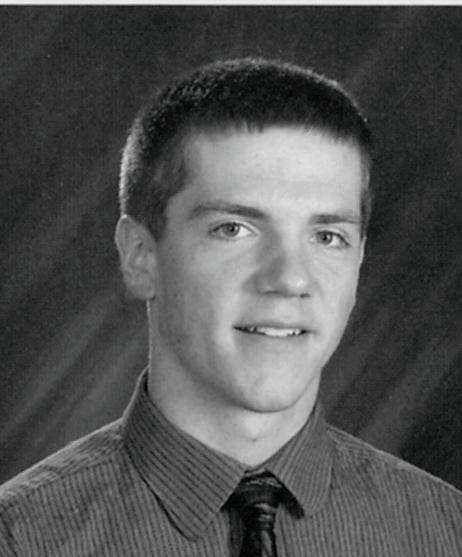

Those who graduate from Cushing take their intellectual gifts and soar. In this issue we feature alumni who graduated between 1957 and 2010 who have made their mark in human rights, biochemistry, serving immigrants, physics, and Silicon Valley business.
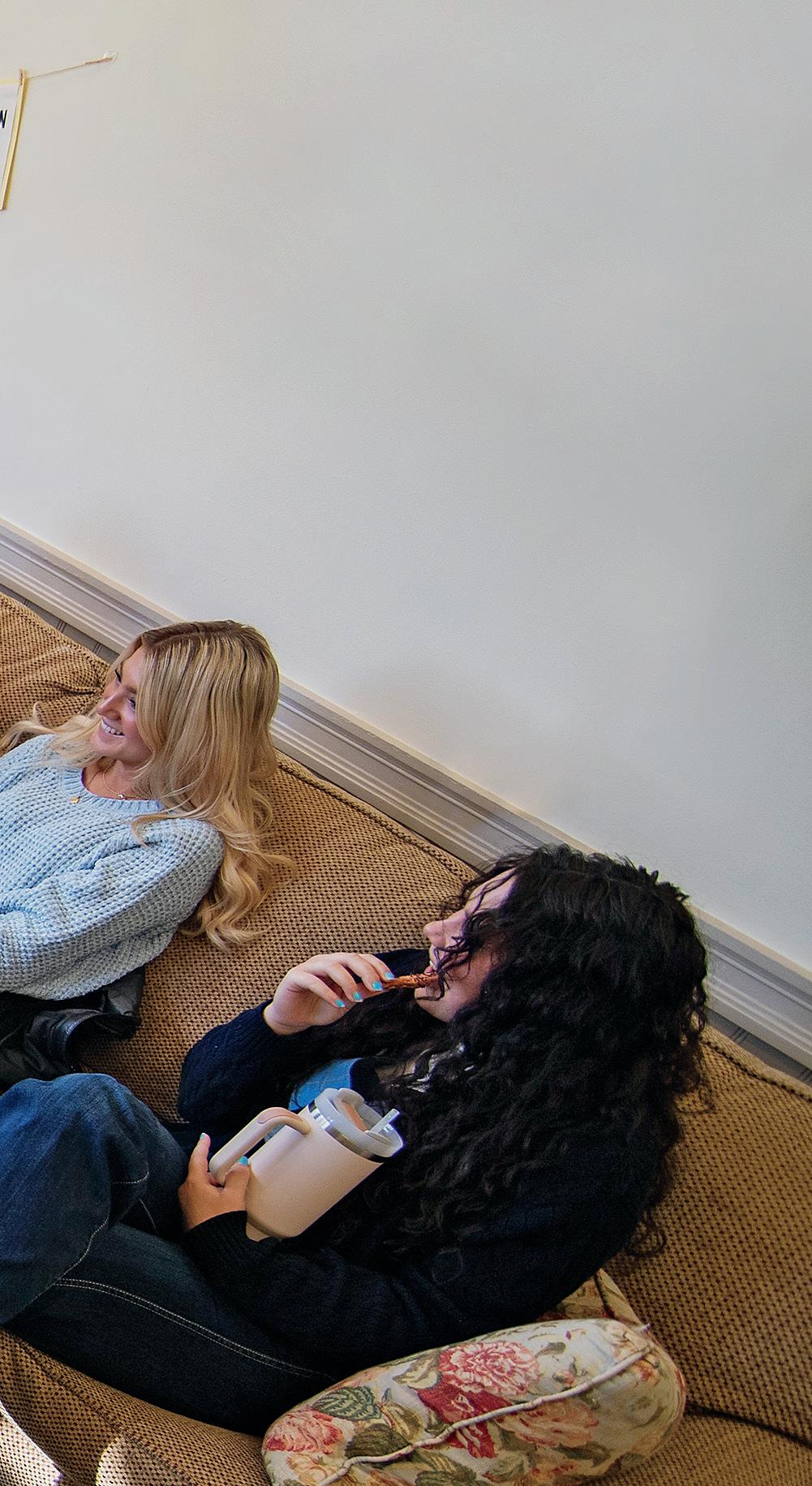
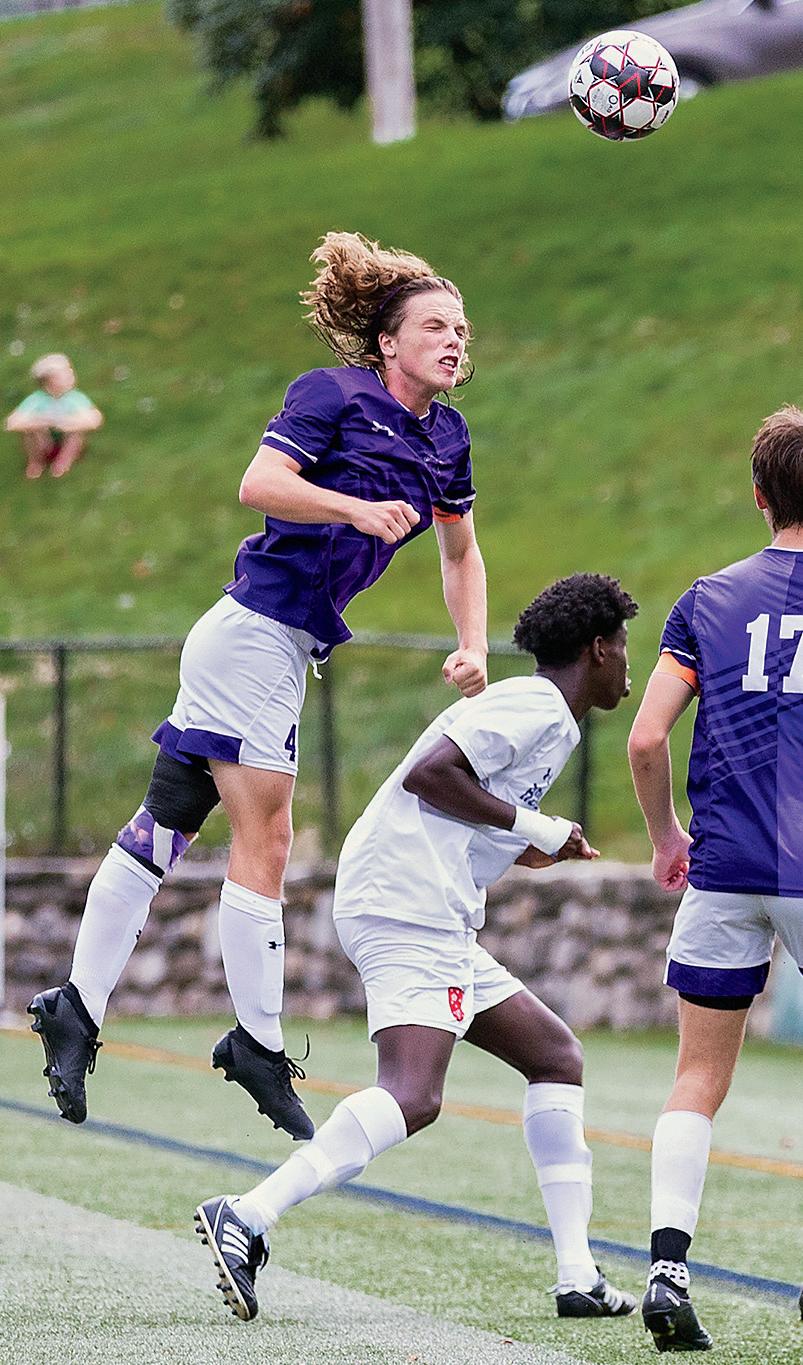
Cushing Academy exists for students and develops curious, creative, and confident learners and leaders.
Cushing Today is a publication of Cushing Academy’s Office of Marketing + Communications.
Head of School
Dr. Randy R. Bertin P’21, ’22, ’24, ’25
Associate Head of School
Catherine Pollock
Director of Marketing + Communications
Christian Housh
Director of Advancement
Greg Pollard
Magazine Design Good Design, LLC gooddesignusa.com
Contributing Writers + Editors
Dr. Randy R. Bertin P’21, ’22, ’24, ’25
Christian Housh
Amy Logan
Christine Foster
Photography
Ed Collier
Gary Fournier
Tom Kates
Steve Musco
Philip Wexler P’19
Cushing Today welcomes your class notes, photography, story ideas, and comments. Please send them to communications@cushing.org, call (978) 827-7000, or mail to:
Communications Office
Cushing Academy 39 School Street
Ashburnham, MA 01430
COVER It’s Penguin-Palooza! Each of these students has a unique Cushing intellectual journey to share.
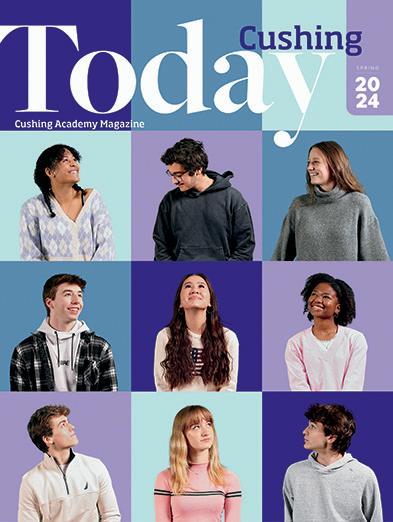
Certain parts of this magazine link to extra content including photos, videos, and our website. Look for QR codes and links to explore more.
In our Student Intellectual Journeys feature, Mateah Scher ’24 tells the story of discovering her love of physics. At the beginning of her junior year, she found herself struggling in her physics class until her teacher Kurt Kublbeck P’16 pulled her aside and suggested that they work together outside of class. As Mateah tells it: “With his help, I just started to get it. It’s math, but it’s applied mathematics, so it just lands differently.” Now, she is “obsessed with understanding the unknown” and inspired to pursue physics and philosophy — “the intersection of the metaphysical and natural worlds” — when she continues her Journey in college.
Inspiring, “ah-ha” moments like these happen all the time at Cushing. We push our students to explore their unique interests and talents, and we meet and challenge them every step of the way with inspiration, support, and frameworks to help guide them in their pursuit of lifelong learning and curiosity.
You can see it throughout our feature on Student Intellectual Journeys: Caroline Hall ’24 discussing the challenges and joy of literature analysis; Jerry Vo ’25 starting a fast-casual restaurant in Vietnam as a test case for sustainable business practices; Kayla Baumann-Norris ’27 exploring culture and language dialects through project-based work; Amina Tulemissova ’24 leaning into her love of theatre; Devin Mehta ’26 being inspired in biology through hands-on labs.
In these and other student Journey stories, you can hear the wonder, support, and growth that are fostered at Cushing Academy — these are essential elements which help steer the Intellectual Journey for our students well beyond School Street.
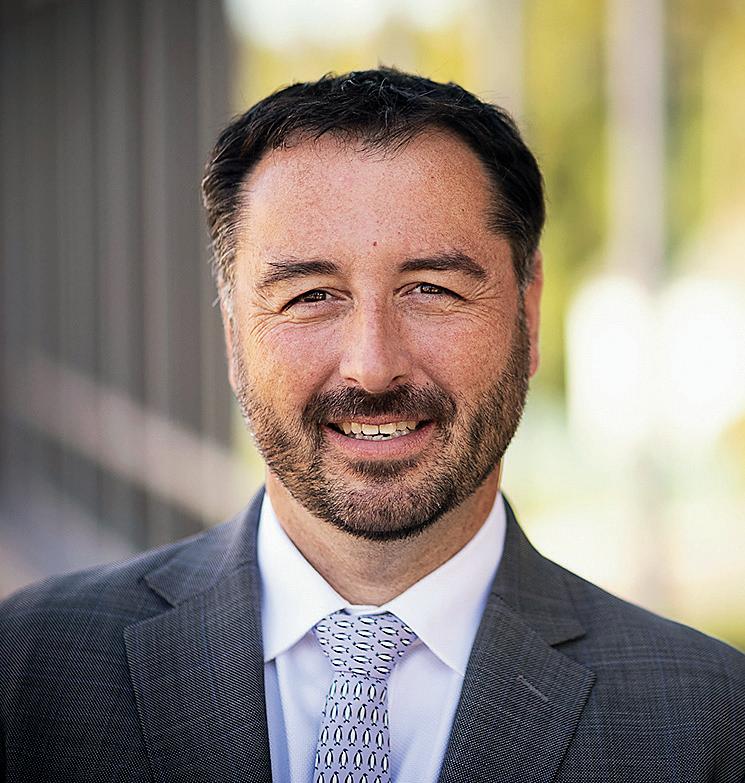
One of the things that I have found to be true is that when our pursuits are led by curiosity, our lives become filled with purpose. That is certainly highlighted in the alumni profiles in this issue of Cushing Today.
For Marvin Makinen ’57, a University of Chicago professor of biochemistry and molecular biology, an early trip to Moscow led to a detour of intelligence service, charges of international espionage, and 28 months’ imprisonment in Russia. Years later, Makinen realized he had first-person intelligence about the whereabouts during captivity of Swedish humanitarian Raoul Wallenberg, and thus embarked on a life-long pursuit of clarifying the fate of Wallenberg — in addition to his research on positron emission tomography.
For siblings Helena Chen Law ’59 and Herbert Hwa-sen Chen ’60, immigrants to the United States, their intellectual pursuits led them

to impact the world in different ways. Law’s Journey led her to serve the immigrant populations in her adopted hometown of St. Louis, while Chen’s interest in science and energy led him to make groundbreaking contributions to physics.
In pursuing his interest in technology and startups, Patrick Despres-Gallagher ’10 leveraged his curiosity to help grow the video messaging app Loom — which had one of the largest startup exits of 2023 — and has since turned his attention to starting a new technology company around his love of multimedia and music.
Jung-Hoon Lee ’80 has been at the center of the cause to raise awareness of human rights violations in North Korea. His advocacy of human rights led to his appointment in 2013 as the South Korean government’s Ambassador for Human Rights and in 2016 he became its inaugural Ambassador for North Korean Human Rights.
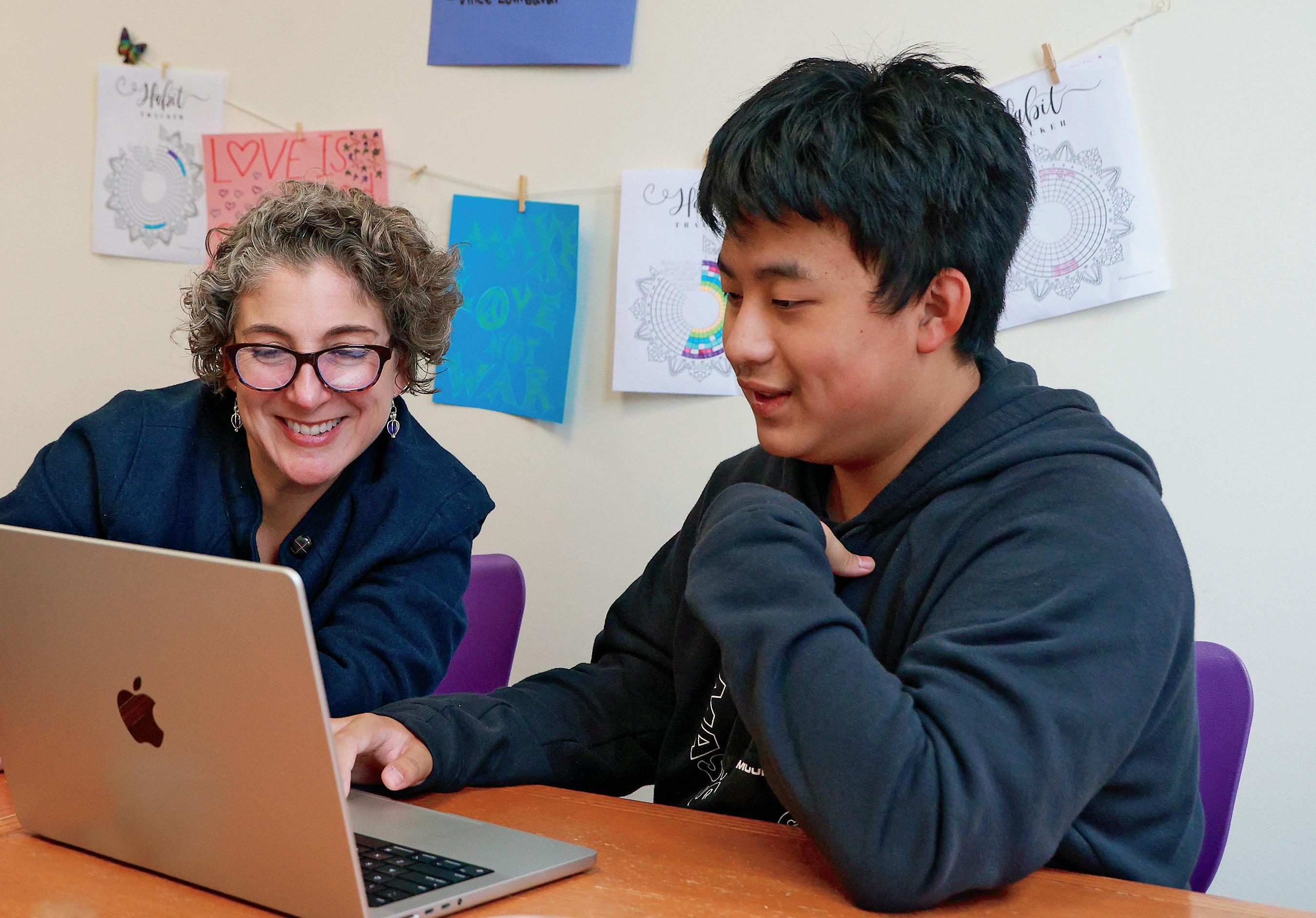
One of the things that is notable about these alumni profiles — and which I find in general of Cushing alums — is how their Journeys often lead to service and giving back to their communities.
At the close of our student feature, Owen Asadoorian ’26 shares one of the things he has taken away from his Honors Literature and Composition course: “It can be just one person. If you see something out there that doesn’t seem right, it just takes thinking ‘I can change things’ and then making it happen.”
May your curiosity guide you to similar insights.
The Cushing Portrait of a Graduate features four Journeys:
• Personal
• Community
In my Intellectual Journey, I:
• Intellectual
• Ethical
> think critically, creatively, and reflectively
> listen and communicate actively, thoughtfully, and effectively
> take risks and grow through challenges
> approach lifelong learning with openness and curiosity.
Randy R. Bertin, Ed.D. Head of School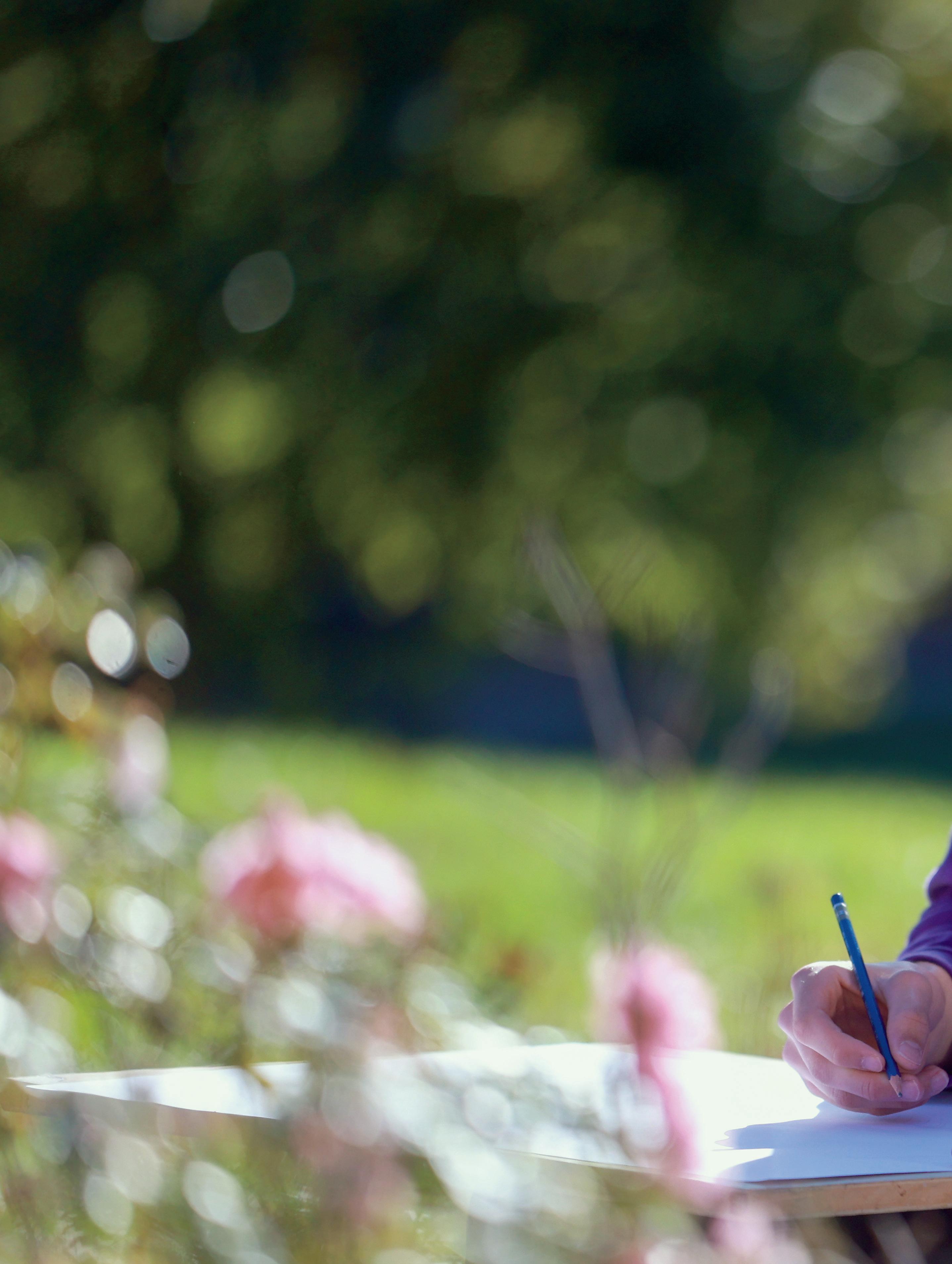
Nate Parreira ’24 takes advantage of a beautiful fall day to practice perspective drawing in his Architectural Design class.
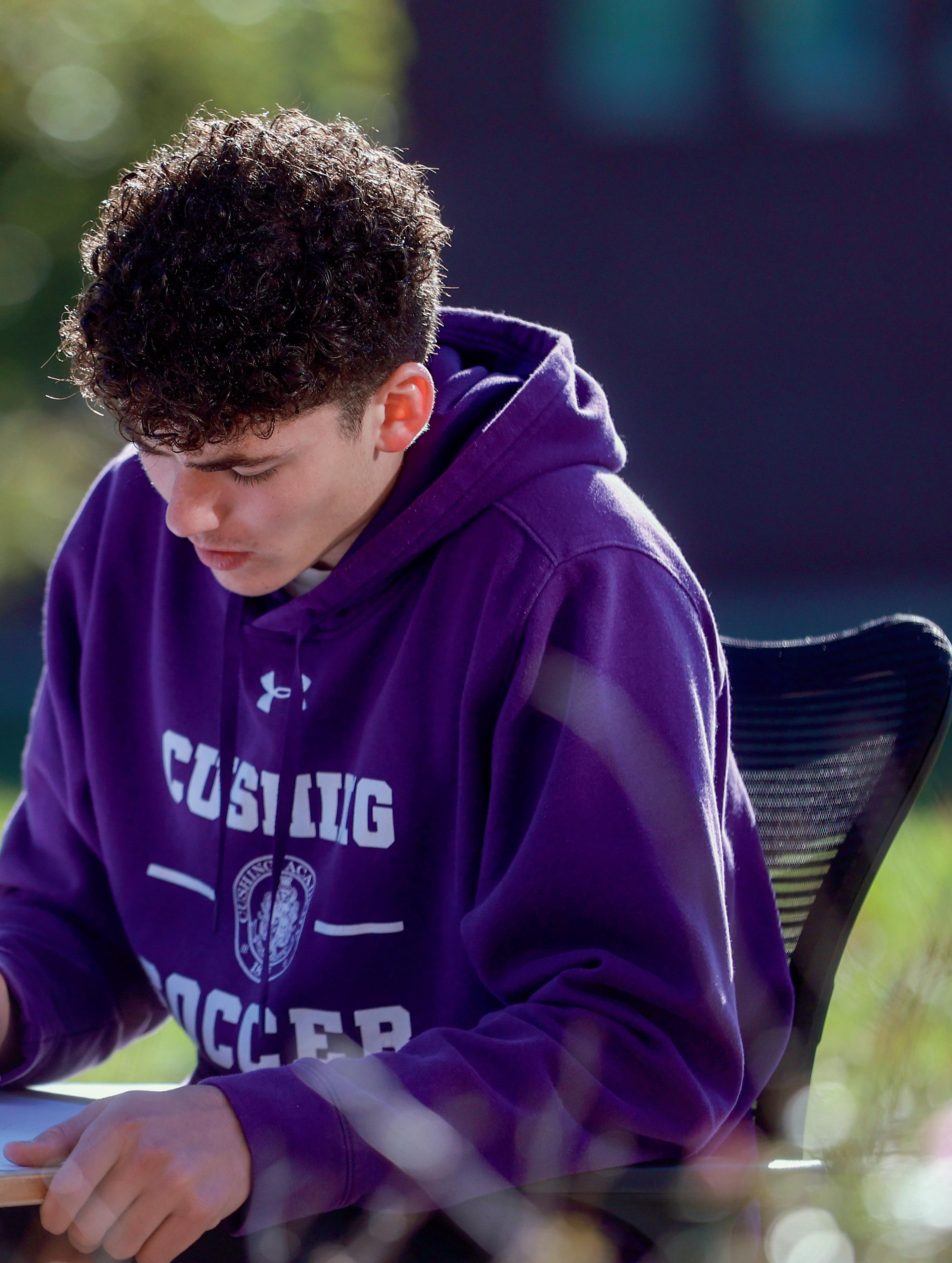
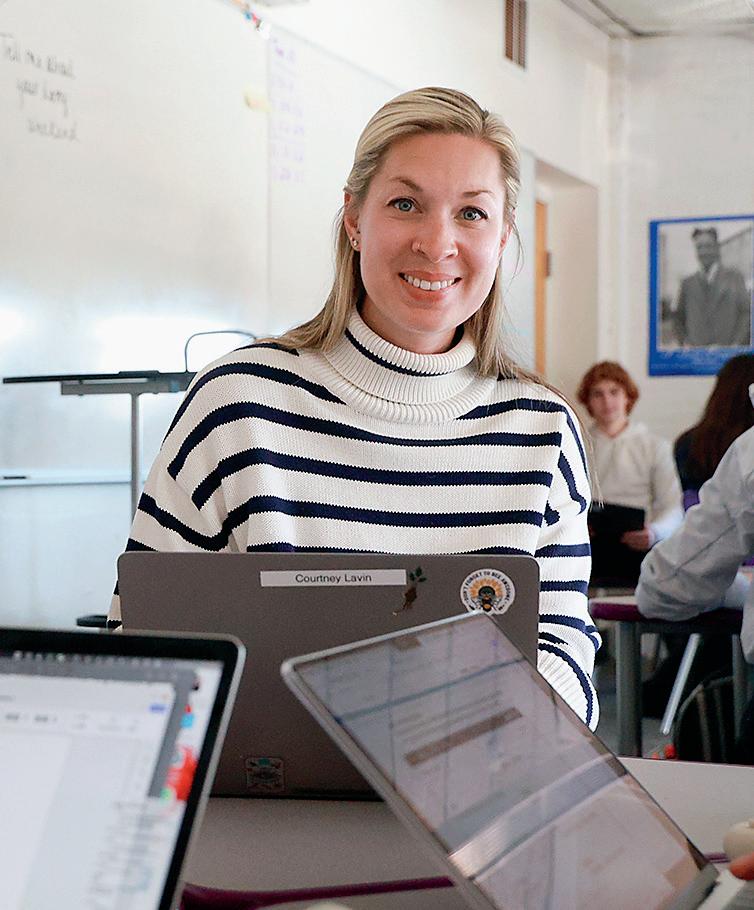
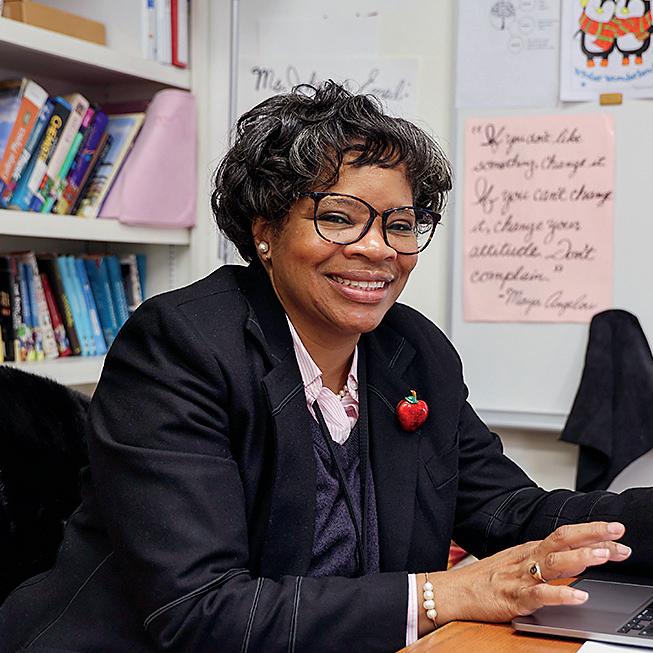
One of my favorite moments has been making vision boards with a couple of the students who I teach — it’s a great tool to hear how excited they are to be here and also to help them focus on their goals for the year.
The students at Cushing are so hardworking, kind, and appreciative. It’s just such a breath of fresh air when I come into my classes and students are ready and want to engage in conversation — be it the work we’re doing in class or what they did over the weekend. It’s nice to be able to develop those types of relationships.
My favorite moment so far was definitely Fall Family Weekend. We had a field hockey game, and we weren’t sure if we were even going to play because it was pouring rain. The score was tied and then we had a corner call for us, and we won with zero time left on the clock. It was just great because families were there, watching their daughters play. It was just that full circle moment. They got to experience that excitement with all of us. Our team was definitely over the moon in that moment.
I’m truly, truly happy to be here. I changed my whole life — I’ve never been in a private boarding school before — and it’s been wonderful. Cushing is amazing, and I truly mean that.
An English teacher with more than 15 years of teaching and coaching experience in Massachusetts public schools, Lavin also is the head coach of varsity field hockey and assistant coach of JV girls’ ice hockey. Lavin earned her BA and M.Ed. from Worcester State University. She lives on campus with her family in Schottland House and assists with supervising Lee Dormitory.
The students put a goal in the middle of the page and then they make a graphic organizer that has different pictures and words, to help them figure out what to do throughout the year to get them to that main goal. We revisit it every three weeks. It’s been kind of neat, because they can see what was important to them earlier in the year and how they’re making progress towards it now.
Another favorite moment is when I went sledding for the first time in twenty years! I saw that we were going to get a lot of snow, and I had previously been living in Miami for quite some time — so I got a sled in preparation. On the first big snow I trucked up the hill from the house where I live to the sledding hill. There were a bunch of us there, probably 15–20 people — and, actually, two of my advisees were there, so that was nice. I took four runs down, and figured, “You know what, I made it up and down four times and haven’t injured myself… that’s a good place to stop.” But it was so much fun to share that moment with the students.
A national board-certified educator with more than 25 years of teaching experience, Johnson serves as a learning specialist in our Academic Support Department and as assistant coach for varsity track and field. She has a BA in English from DePaul University and an M.Ed. from Harvard University. She lives on campus in Grenier House.
Having the confidence to ask questions — and the ability to own when you’re unsure about things and to advocate for yourself — that’s a skill that we all need to eventually learn.”
—VALERIK ROUMI, MATHEMATICS TEACHER
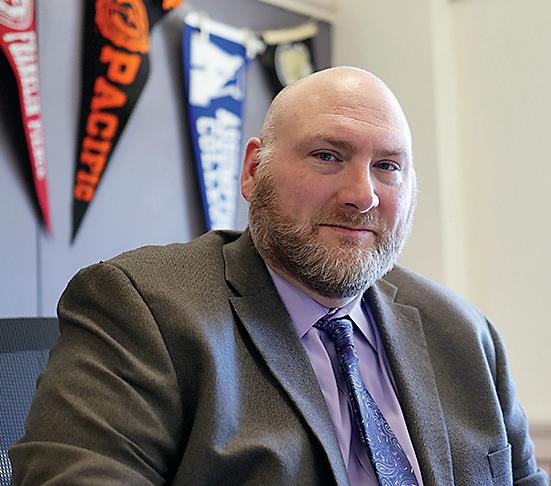
I love college counseling. I have the amazing opportunity to help students explore their hopes and dreams, to find the college that is right for them. College counseling and admissions is a small world. I have been in this field for over 24 years now and have known the team at Cushing for many of those years. It feels like we have worked together for a long time. I am continually impressed with how well-prepared Cushing students are and how engaged they are in their college searches. It makes my job easy when students are informed and ready to jump into the college admissions process.
My biggest surprise has been how amazing our students are. While I am the proud parent of two Cushing students (Pat ’24 and Jimmy ’26) and have seen this firsthand, our students continually impress me with their genuine kindness and how they support each other in the arts, athletics, and in our community.
Monahan P’24, ’26 is associate director of college counseling, assistant coach for JV boys’ soccer, and an alternate dorm parent in Ashburnham House. He has a BA from College of the Holy Cross and an MS from New England College. He lives with his family in O’Connor House.
My biggest surprise was Mountain Day. I’ve spent a lot of time in the outdoors and in the mountains. I was part of the outing club at my college and I do a lot of climbing and skiing in my free time. The idea of going to the mountains with groups of students is not something that’s new to me. But bringing all 385 students there, and getting the vast majority of them to summit — that’s by no means an easy feat. It was great to see that everybody was so passionate about making this happen. I was really impressed by the fact that we were able to pull that off so successfully.
It’s really nice as a math teacher, when you see your students’ eyes light up — especially those who aren’t mathematically inclined, but they’re sticking with it — and then suddenly it just clicks, you see that spark where they’re like, that’s cool.
In the dorms, I work with mostly ninth-grade boys. We’re helping build their confidence, so they can feel comfortable saying, “I don’t know what to do here… I’m just going to go ask.” Having the confidence to ask questions — and the ability to own when you’re unsure about things and to advocate for yourself — that’s a skill that we all need to eventually learn, and it’s been great to see how my boys have matured over the course of the year.
Roumi teaches mathematics and is the head coach for varsity alpine skiing and assistant coach for JV boys’ soccer. A recent graduate of Bowdoin College, where he earned a BA in Mathematics and Oceanographic Science, Roumi is a dorm parent in Price Hall.
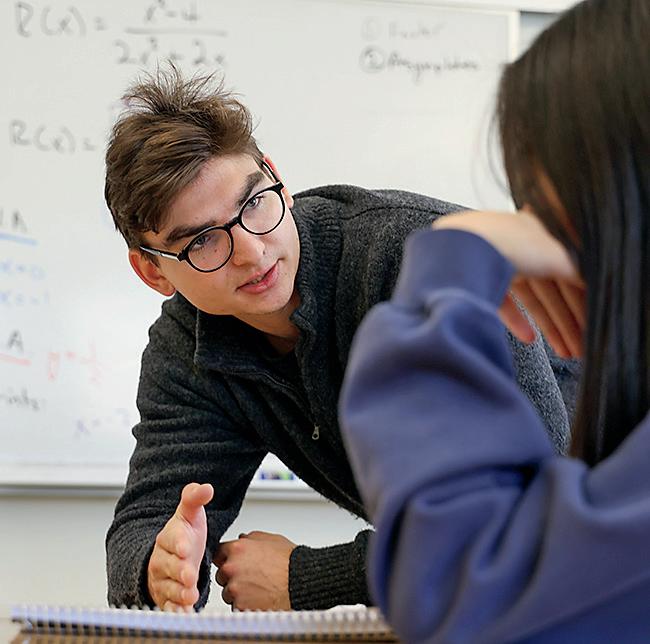
The students here are a huge reason why I love Cushing. They are very positive, very genuine, and just good kids. They’re super curious — both in class and outside of it. I had a group of kids sitting in my living room just the other day and they were asking about my college experience — good questions — inquisitive — like they were wanting to figure out what that next step is going to be like for them.
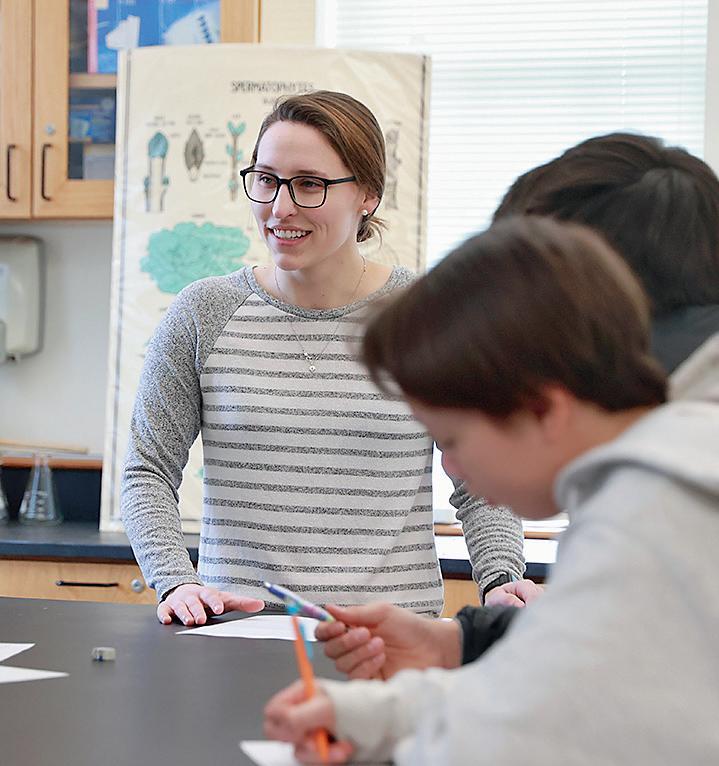
I think the thing I’m most looking forward to is seeing how these students grow in their time here — seeing where they started and how Cushing impacts them in their journey… not just as students or athletes, but as people in general. There’s a student who I’ve been working with a lot, who is dedicated to improving and getting better. There will be times where I’ll see them walking around campus or in the dorm and they’ll pop up and say, “Ms. Fowler. You won’t believe it, I did [this] today.” And it’s so satisfying, because you love seeing students being proud of their work and seeing them know that they are making progress — and that you’re able to help them do it for themselves.
Fowler teaches Integrated Science and Anatomy and Physiology. She is head coach of JV girls’ ice hockey, and also coaches girls’ soccer and lacrosse, as well as being a dorm parent in Alumni Hall. She attended boarding school at Hebron Academy and earned a BS from the University of New England.
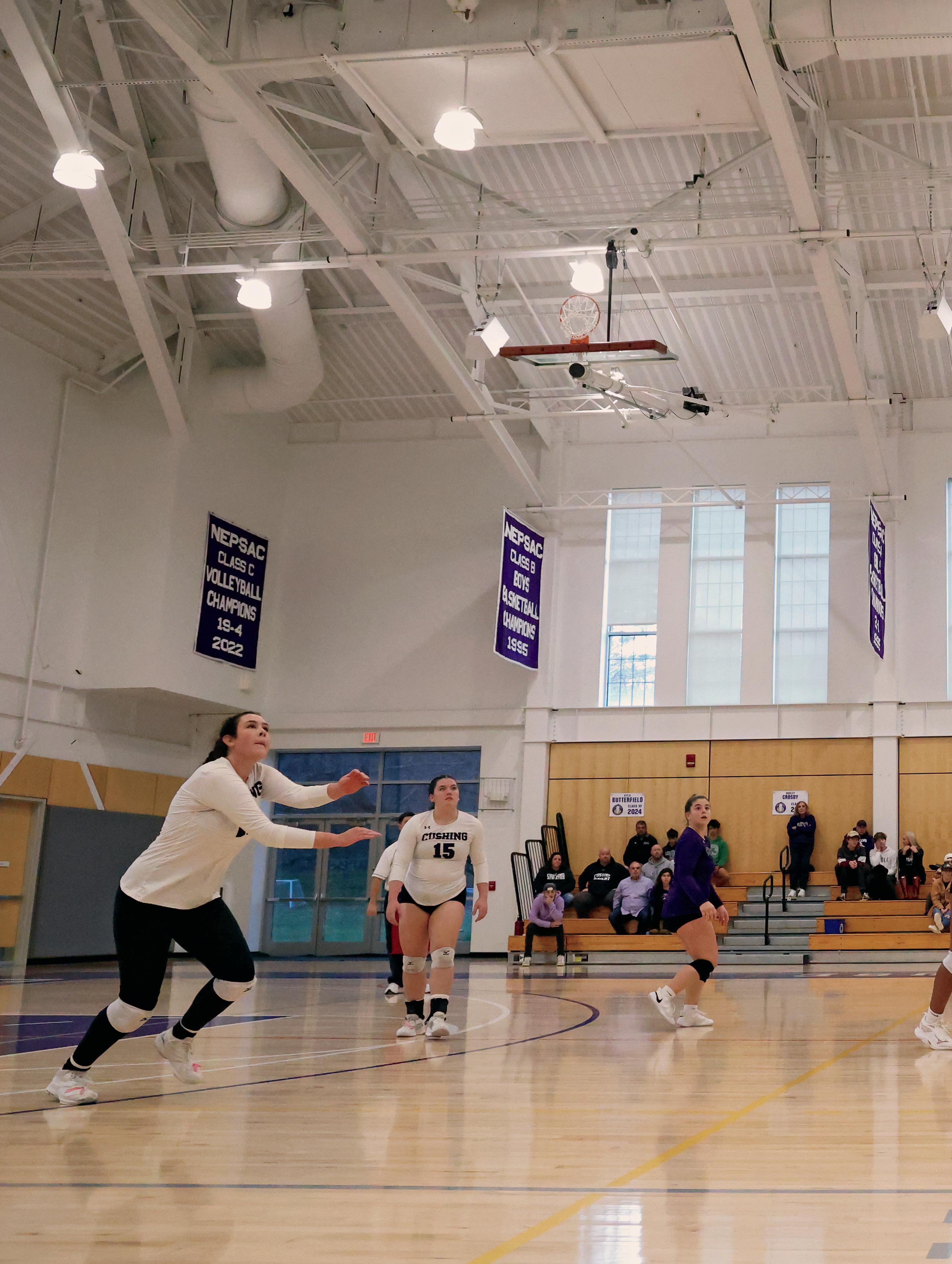
Aryhanna Vasquez ’25 sets up Josie McFadden ’24 for a spike en route to a 3–1 victory over Portsmouth Abbey in the NEPSAC Class C semifinals. Varsity volleyball had an outstanding season, going 23–2 and making it to their second consecutive championship game.
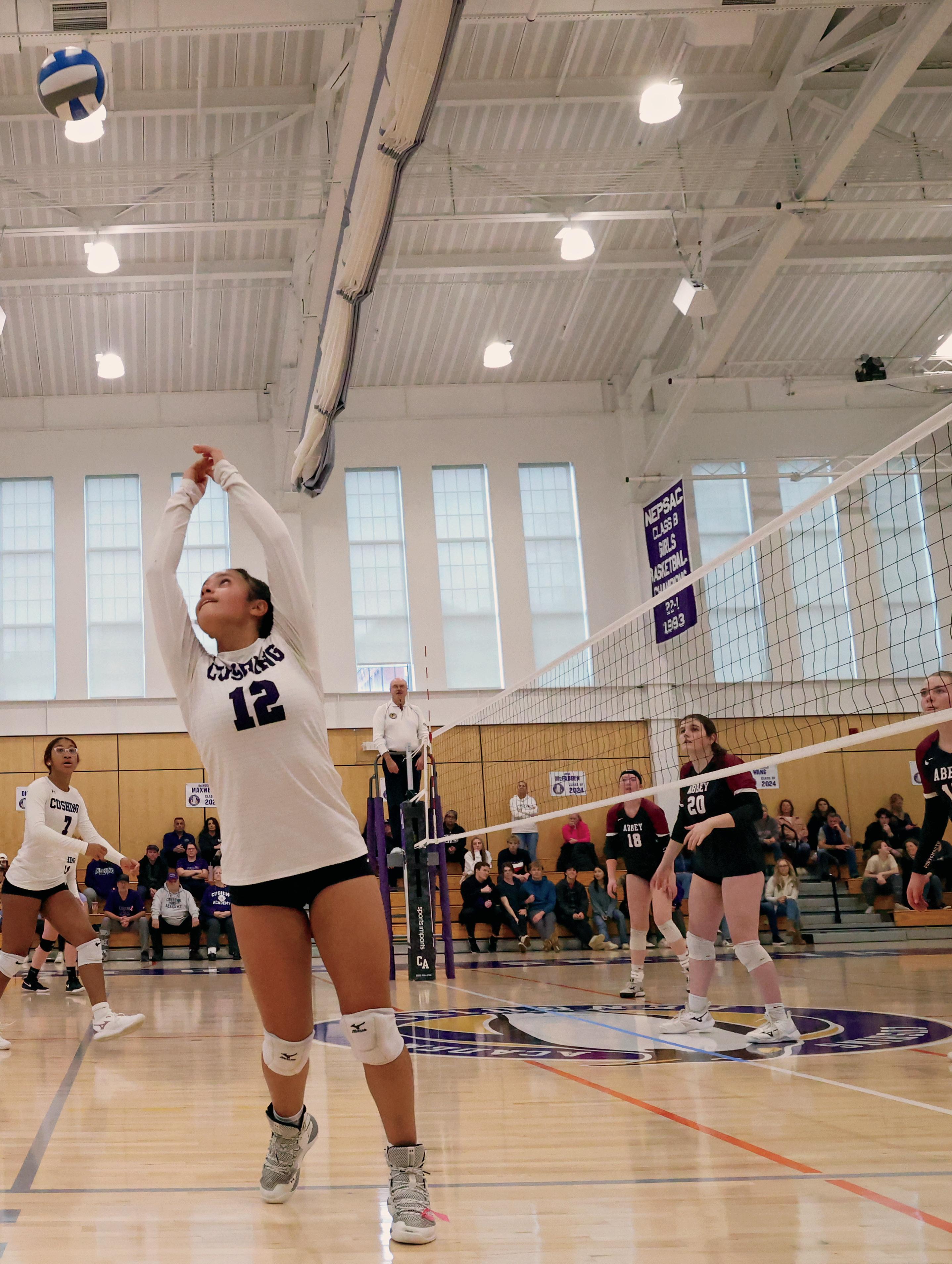
Cushing Academy earned recognition from the National Interscholastic Athletic Administrators Association, qualifying for Quality Program Assessment at the Exemplary Level, thanks to the work of Athletic Director Jennifer Viana and her staff.
Cushing was one of just 15 private and public schools from across the
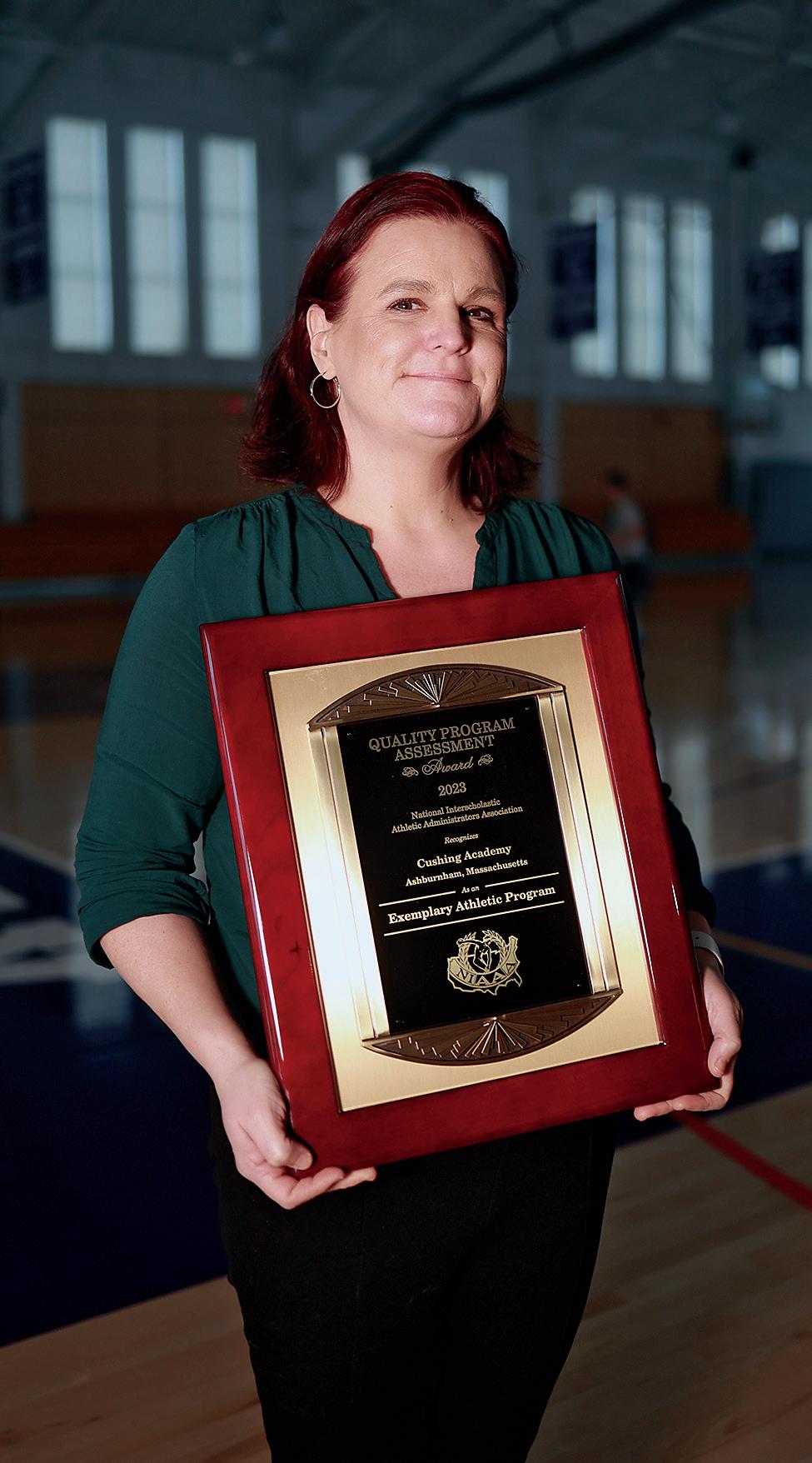
country, and one of only two in New England, to hit that milestone this year.
“I’m always interested in professional development and advancing my knowledge and skill set as an athletic administrator, but the idea behind doing this particular project was all about best practices,” says Viana, who is in her sixth year as athletic director at Cushing.
Each month from July 2022 through May 2023, Viana met with a cohort of athletic directors from around the country who were working on assessing their programs against benchmarks deemed exemplary. The applicants looked into 10 different areas of their departments, reviewing policies and assessing how well the program met various metrics. Are facilities and equipment safe? Is the emergency action plan up to date? Are the programs offered to both boys and girls equitable?
How does the school communicate about sportsmanship expectations for fans?
“It provided us an opportunity to take a deeper dive into the operations
of the program, to really make sure that we’re doing things the right way,” Viana says. She is now serving as a mentor for a fellow athletic director seeking recognition for his school.
Going through the process reinforced Viana’s appreciation of Cushing. She says the support that athletic programs at Cushing enjoy from the administration and from donors is invaluable. “From our top-notch athletic facilities, to our weight room, to our commitment to regularly updating our uniforms, we want our athletes to look good and feel even better,” she says. “Athletics at Cushing feels like a small college. We have awesome opportunities for our student-athletes to compete at a high level and have an experience of a lifetime.”
Cushing Academy is only the second school in the New England Prep School Athletic Council (NEPSAC) to qualify for this recognition, joining Cardigan Mountain School, which earned it in 2015.
From our top-notch athletic facilities, to our weight room, to our commitment to regularly updating our uniforms, we want our athletes to look good and feel even better. Athletics at Cushing feels like a small college.”
—JENNIFER VIANA, ATHLETIC DIRECTOR
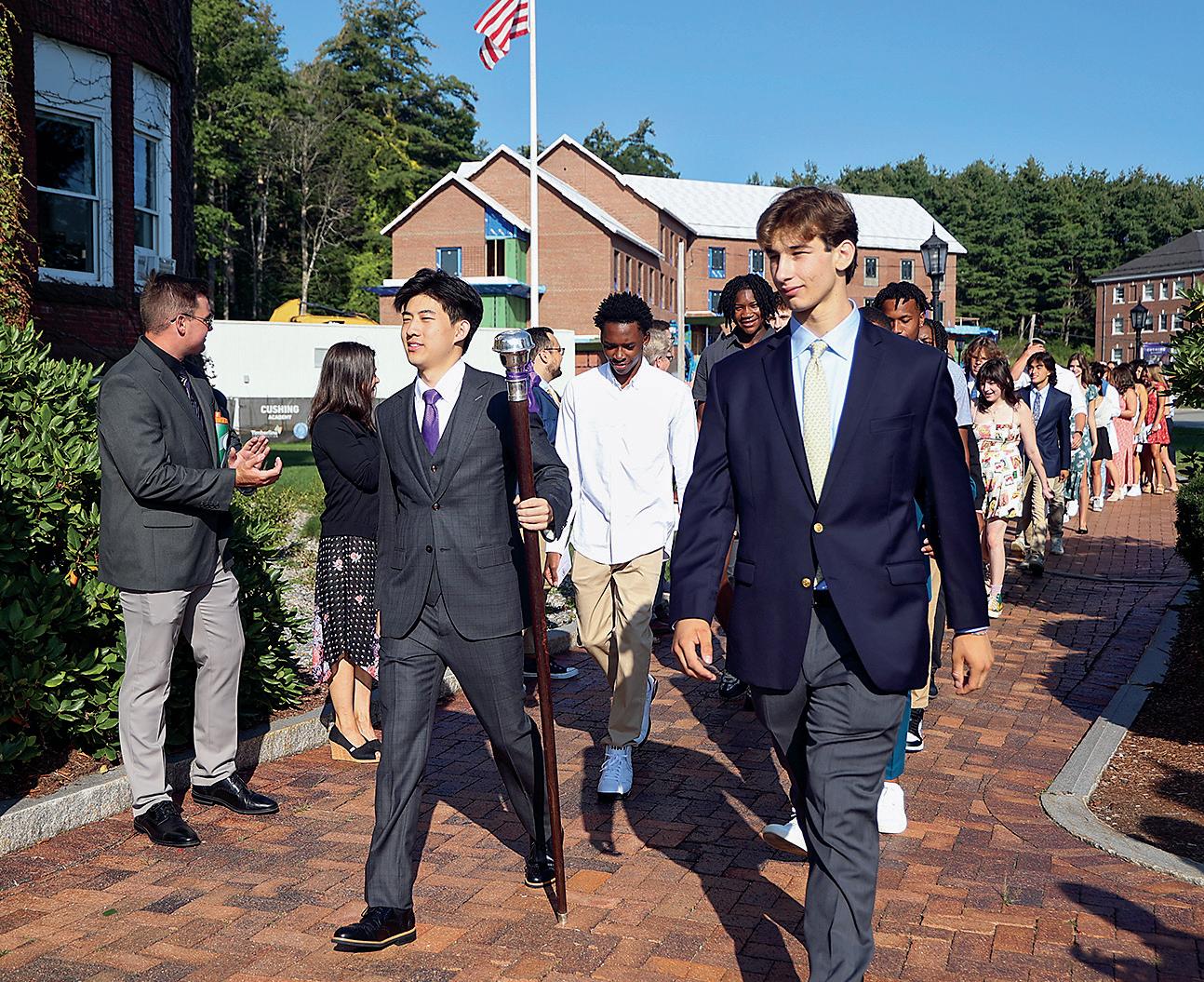
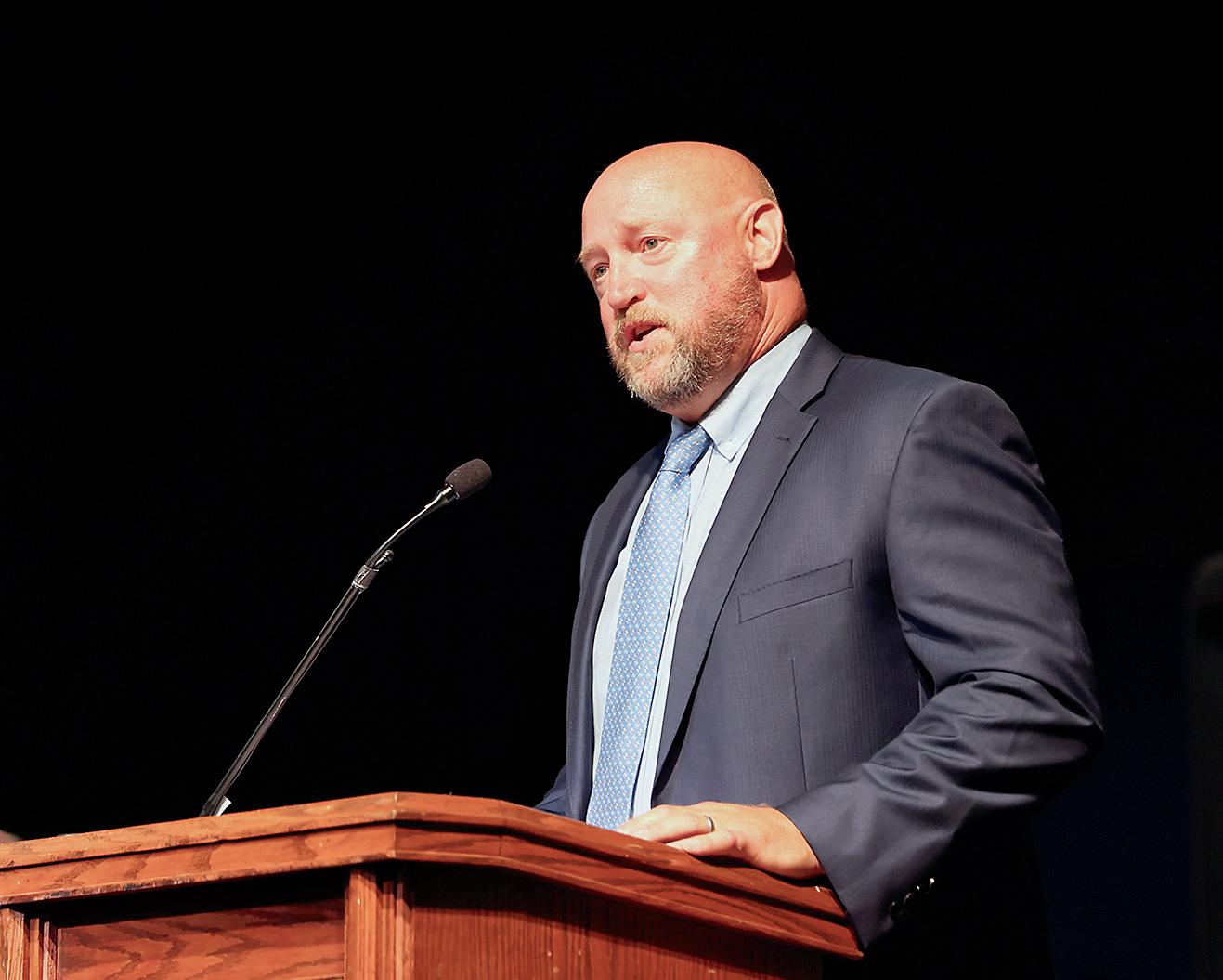
Science Department Chair Kurt Kublbeck P’16 has been at Cushing Academy for nearly three decades. At the start of the school year, he set aside the typical tools of his trade — test tubes and engineering accoutrements — to teach about an entirely different topic: gratitude.
Asked to kick off the year with an address at Convocation, Kublbeck began with thoughts on the importance of gratitude, describing it as a “simple, yet profound concept that has the potential to transform our lives.” He continued, “It is noticing the abundance in our lives and acknowledging the efforts and kindness of others. It’s about realizing the interconnectedness of the universe. The food we eat, the air we breathe, and the water we drink, are all gifts that sustain us.”
Kublbeck urged students to begin with mindfulness — to simply notice the beauty around them and the kindness of others. “It’s easy to overlook the blessings we have and focus on what we lack,” he said. “The human mind is conditioned to seek and yearn for the next academic, athletic, artistic achievement or material possession,
constantly pushing us to dissatisfaction. By embracing gratitude, we learn to shift our focus from what’s missing to what we already have, creating a sense of contentment and fulfillment.”
He pointed out that practicing gratitude can improve physical and mental health, helping people sleep better, get sick less often, and simply feel better about life. “When we cultivate gratitude we become compassionate individuals,” Kublbeck said. “It opens our hearts to empathy, helping us connect with others on a deeper level. It encourages us to be kind, generous, and supportive as we acknowledge the contributions of others in our lives.”
Making a powerful connection back to Cushing, he noted that gratitude can change the whole community: “The simplest acts of kindness can transfer positive energy from one person to another and foster a culture of gratitude that ripples throughout our community and beyond.”
So, he told the students, as they launched into a new year — be intentional about gratitude! Help those on campus and beyond School Street. Look for the good even in
difficult moments. “Engaging in acts of kindness and service on- and off-campus not only benefits others, but also reminds us of our own abundance and our ability to make a positive difference at our school and beyond. Volunteering to help, supporting a cause, or simply being there for someone in need, can fill our hearts and souls with profound gratitude and purpose.” It is, he argued, “a transformative way of life. It is not confined to special occasions or grand gestures. It enhances our experiences, strengthens our relationships and nourishes our souls… So let us commit to living a life full of gratitude and watch how it can illuminate our paths and experiences here at Cushing Academy.”
ME! See highlights from Opening Convocation 2023.
SEPTEMBER 13: Quimby Field and Heslin Gym were awash with color and dorm spirit this weekend as the entire student body gathered for the opening ceremonies of the 2023–24 Dorm Olympics. #CushingCommunity
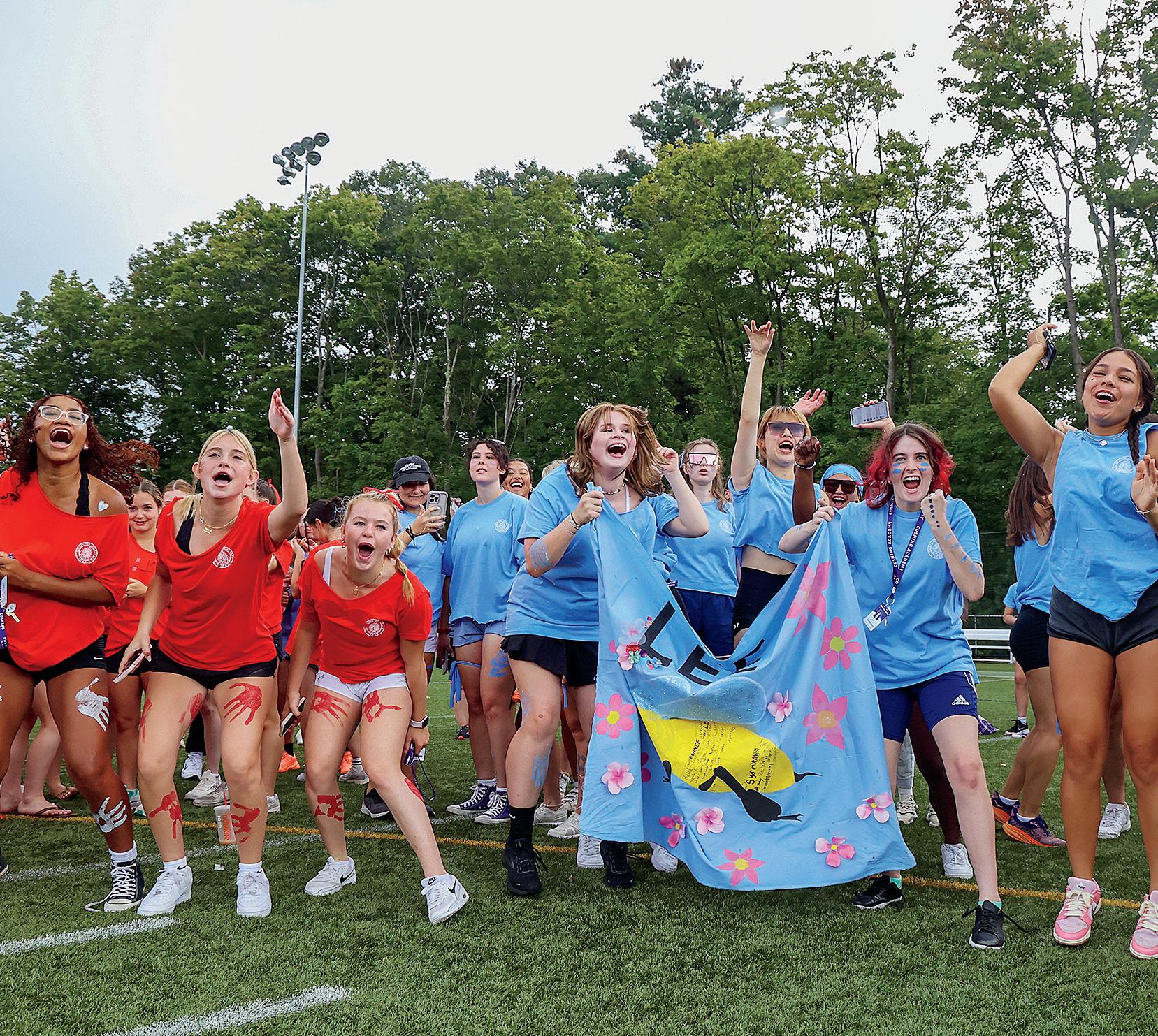
CushingAcademyFans groups/CushingAcademyParents groups/CAPenguinNation
@cushingacademy
Cushing Academy Alumni Network
@CushingAcademy
youtube.com/cushingacademy flickr.com/cushingacademy
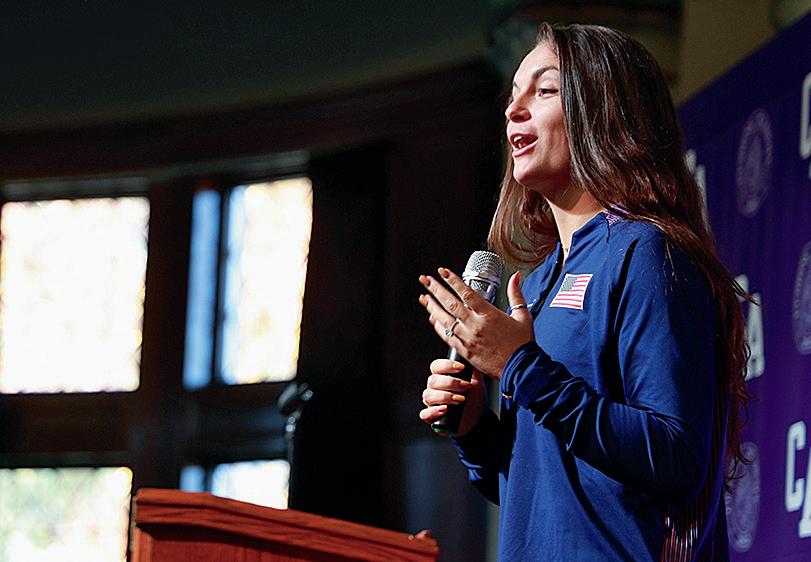
OCTOBER 31: Last Friday, the Cushing student body was privileged to hear @usparatf athlete @noellelambert’s inspiring story of determination and hope at All School Assembly.

SEPTEMBER 8: Student Body Presidents Lyujia “Peter” Pan ’24 and Joe Sarkozi ’24 kicked off the first All School Assembly of 2023–24 with a message from Counseling Services and a put-a-faculty-face-to-the-fun-fact challenge. Who knew Coach Lara was once chased by a baboon? #PoweredByPeople
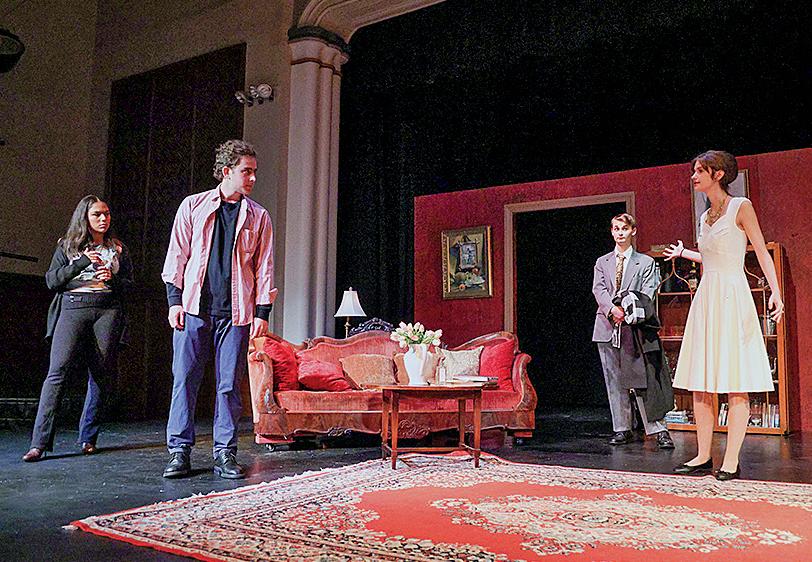
NOVEMBER 3: Last night the Senior class had a special showing of Yasmina Reza’s hilarious and chaotic comedy God of Carnage.
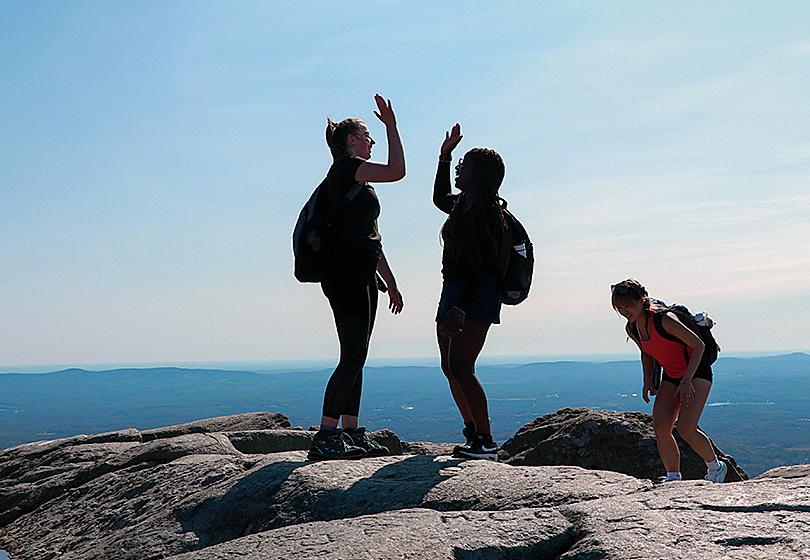
SEPTEMBER 21: It’s Mountain Day 2023! What’s your goal? #CAMountainDay #PoweredByPeople
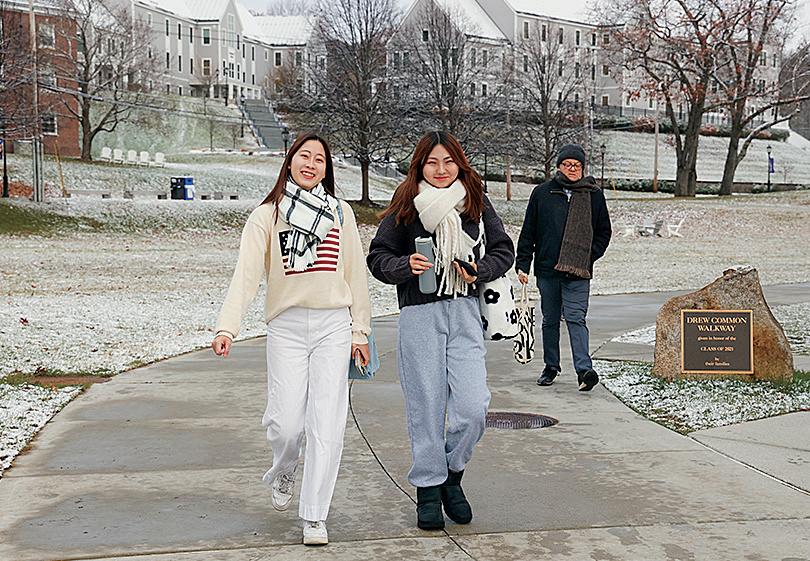
NOVEMBER 14: Campus woke up to its first dusting of snow of the season this morning! #PenguinWeather
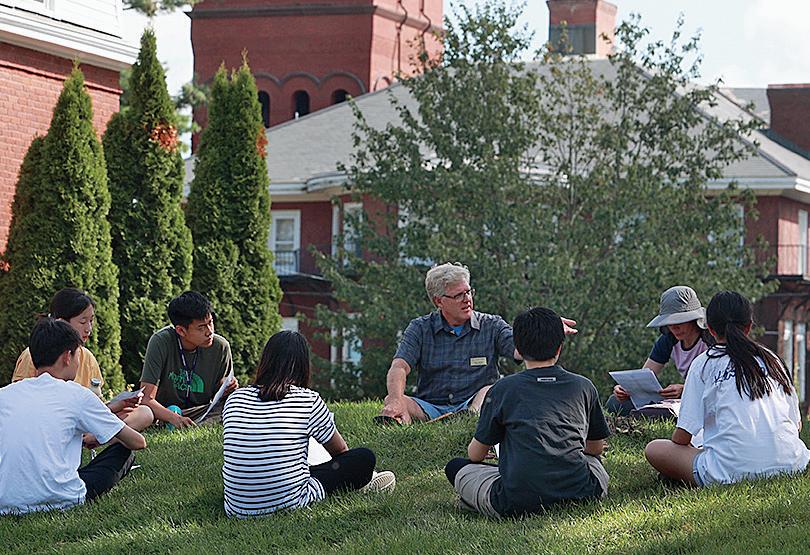
SEPTEMBER 3: Students and faculty discussed their chosen summer break novels for the annual Community Read, and celebrated the eve of the new school year at the All School Barbecue. #PoweredByCuriosity
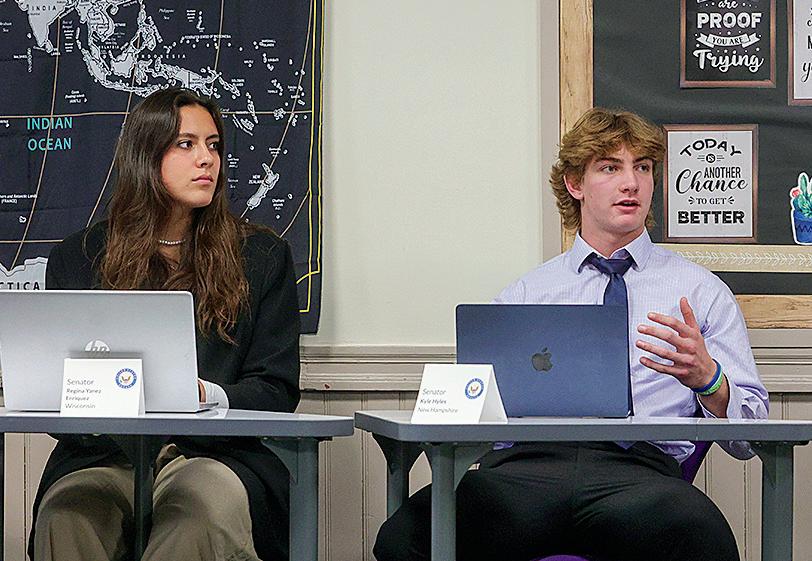
OCTOBER 6: From debating the merits of the UN to serving free treats in the community at Celebrate Ashburnham, Cushing students have been busy around campus this week!
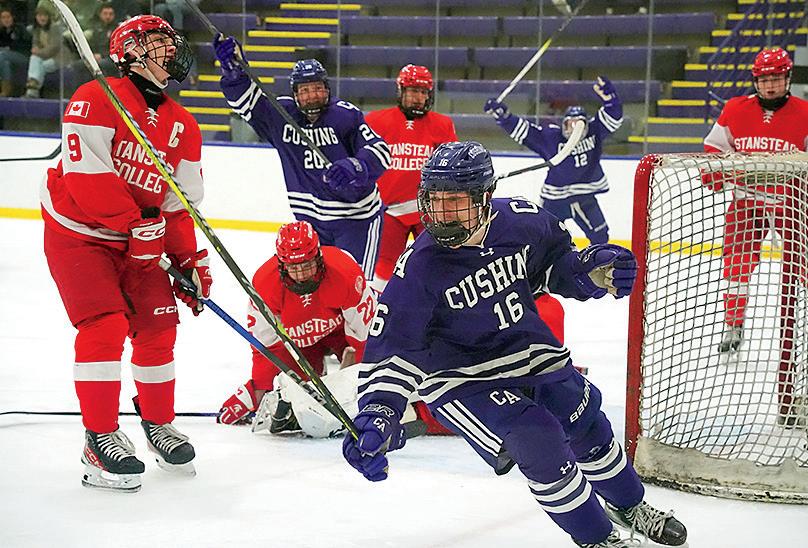
15:
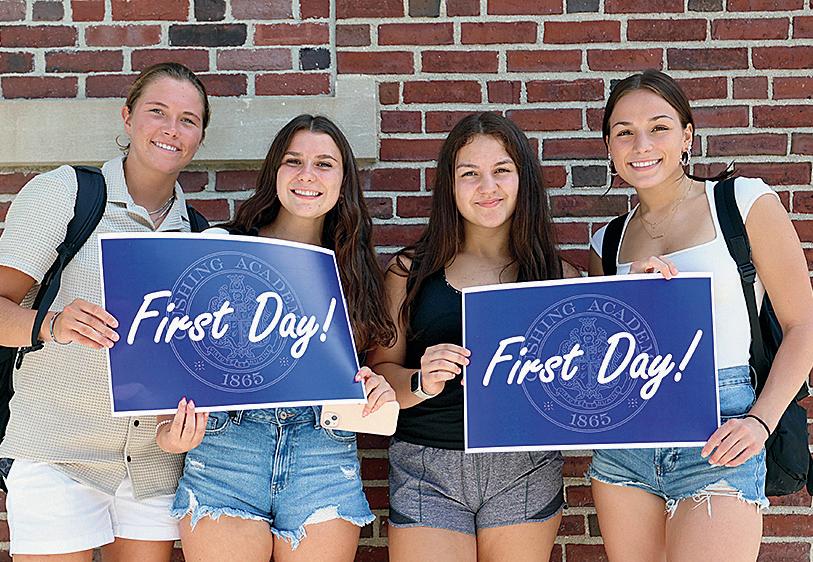
SEPTEMBER 4: Happy First Day of School!

SEPTEMBER 5: Observed on the first and last day of classes, the All School Handshake is a tradition that embodies the Cushing Community’s commitment to supporting and championing one another on the journey. #PoweredByPeople
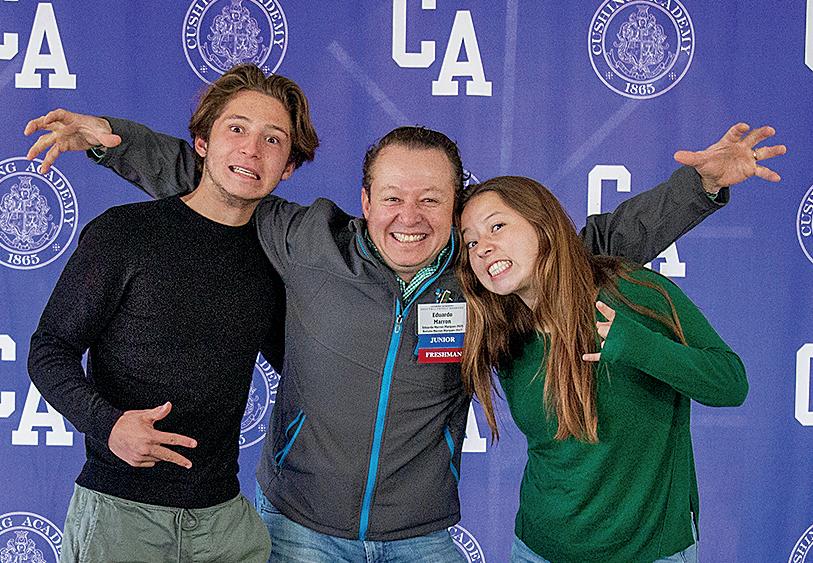
OCTOBER 25: Looking back on a fantastic Fall Family Weekend. It was wonderful to see so many parents, grandparents, siblings, and friends!
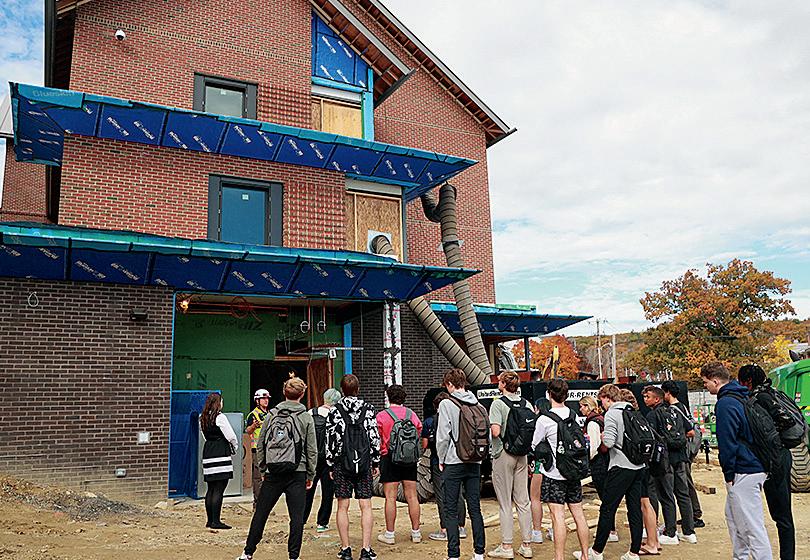
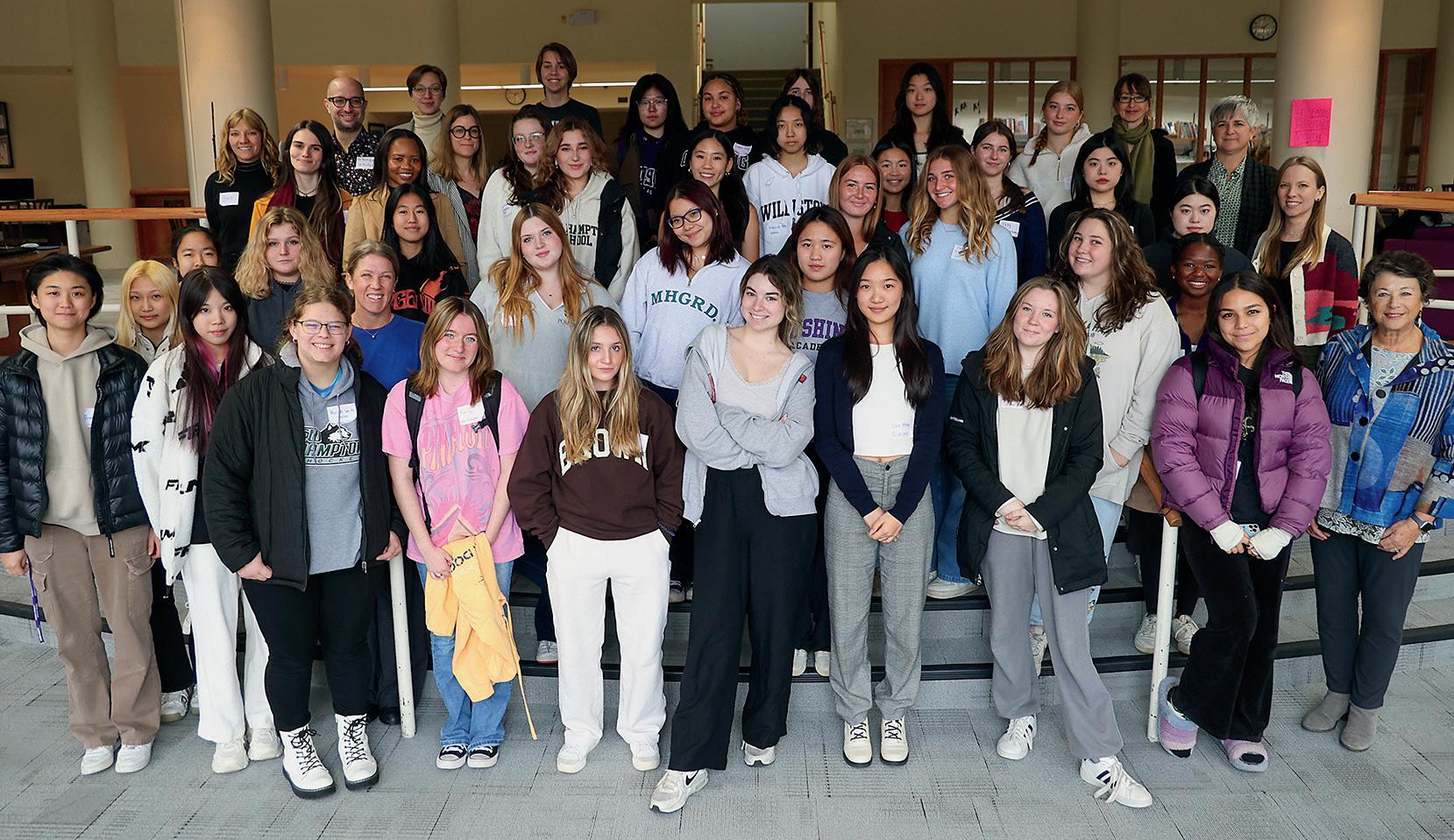 OCTOBER 30: Ropes course navigation, new building site tours, and pumpkin carving were just a few of the things going on around campus last week!
DECEMBER
Hoops, History Expo, Holiday Stroll, Hockey, and more around campus on the final school week of 2023! #HappyHolidays
OCTOBER 30: Ropes course navigation, new building site tours, and pumpkin carving were just a few of the things going on around campus last week!
DECEMBER
Hoops, History Expo, Holiday Stroll, Hockey, and more around campus on the final school week of 2023! #HappyHolidays
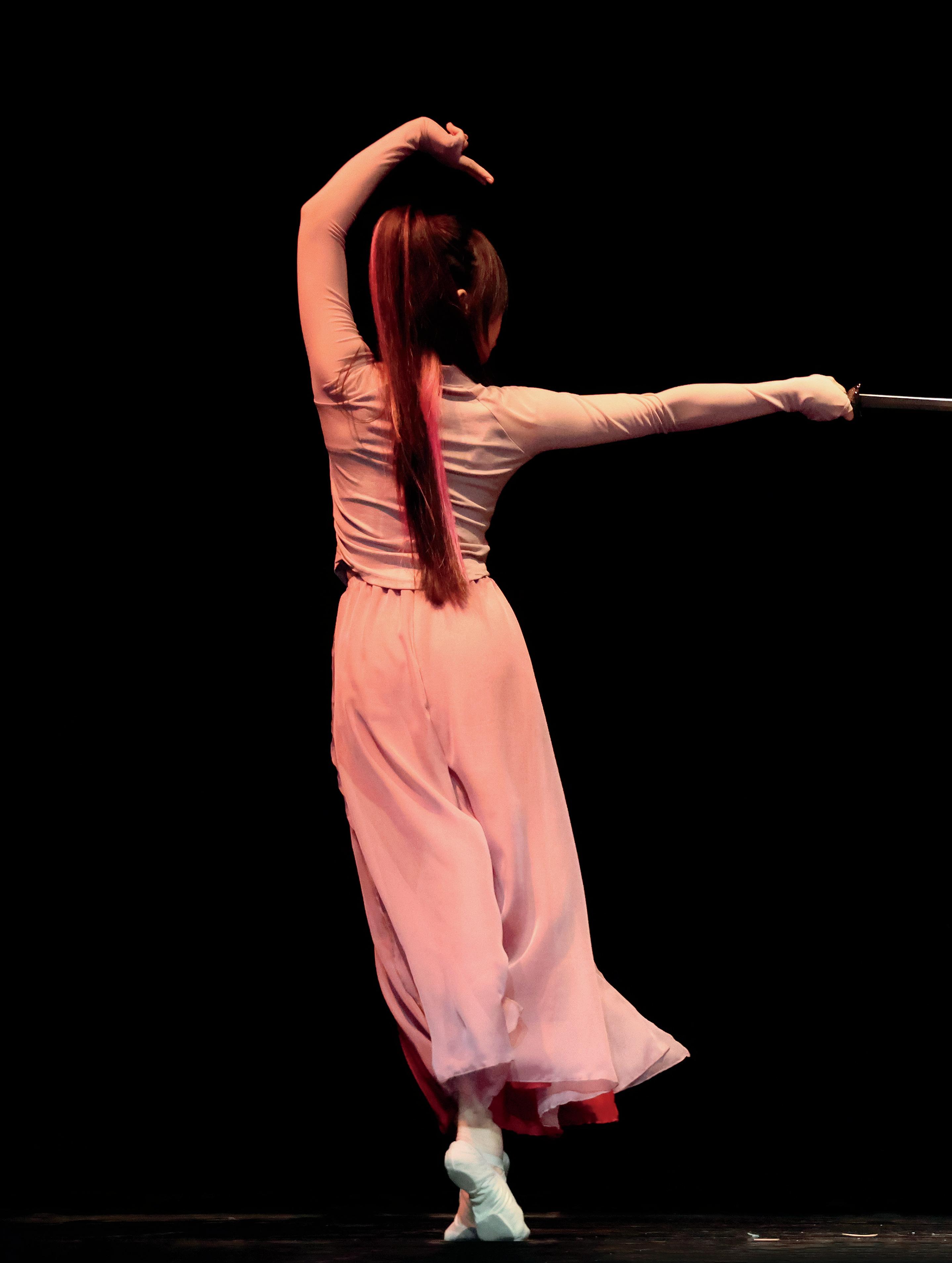


For their fall production, Cushing Academy Dance presents Unique!, an evening of student and professionally choreographed dances.
Here, Yuxin “Ella” Jiang ’24 performs On the Snow, a traditional Chinese sword dance.
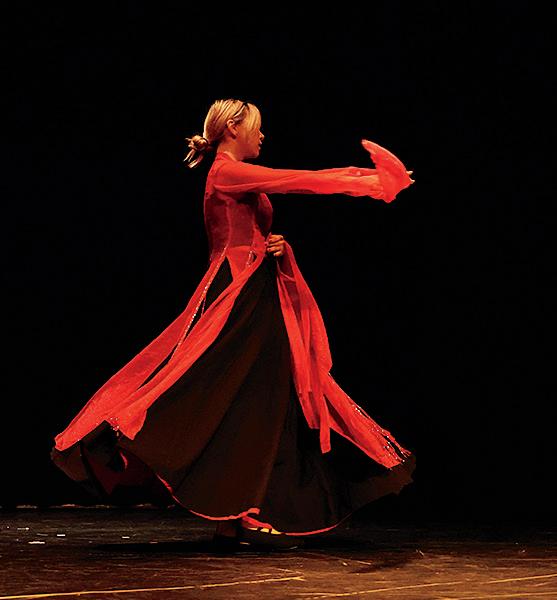
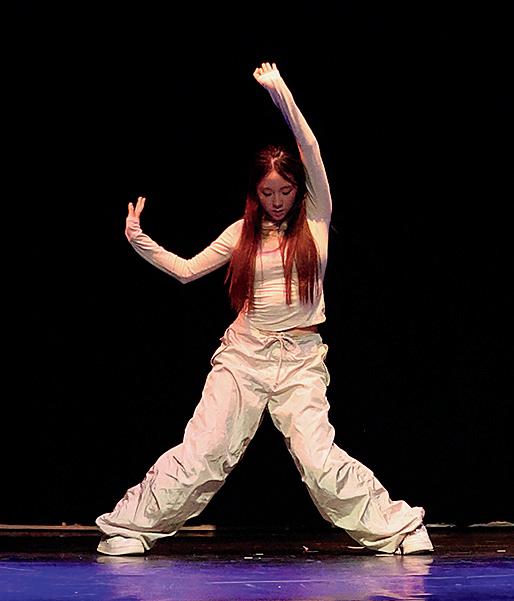
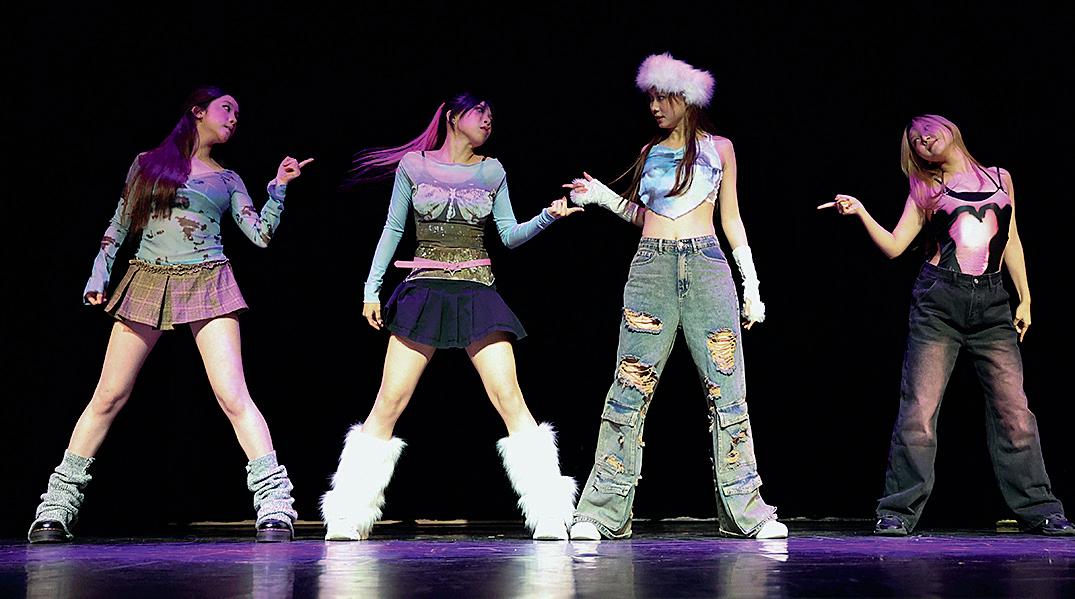
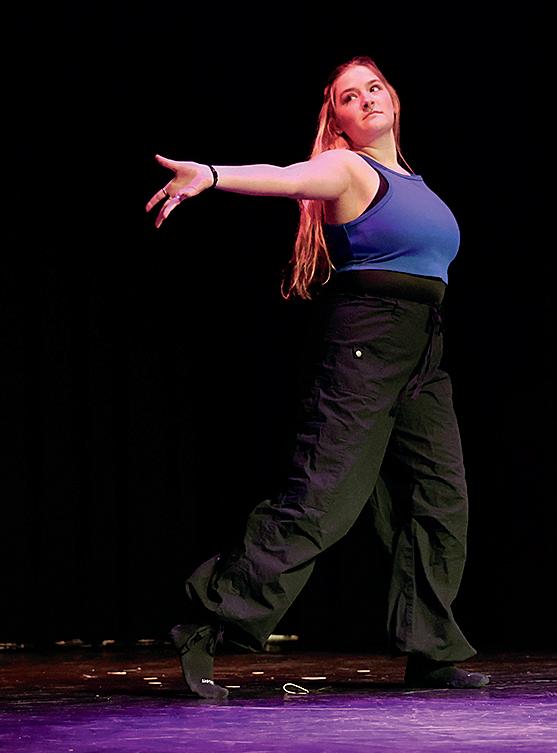
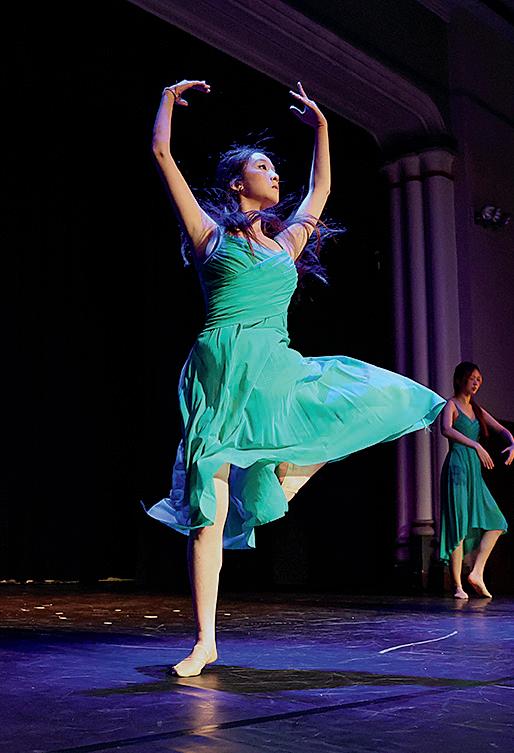
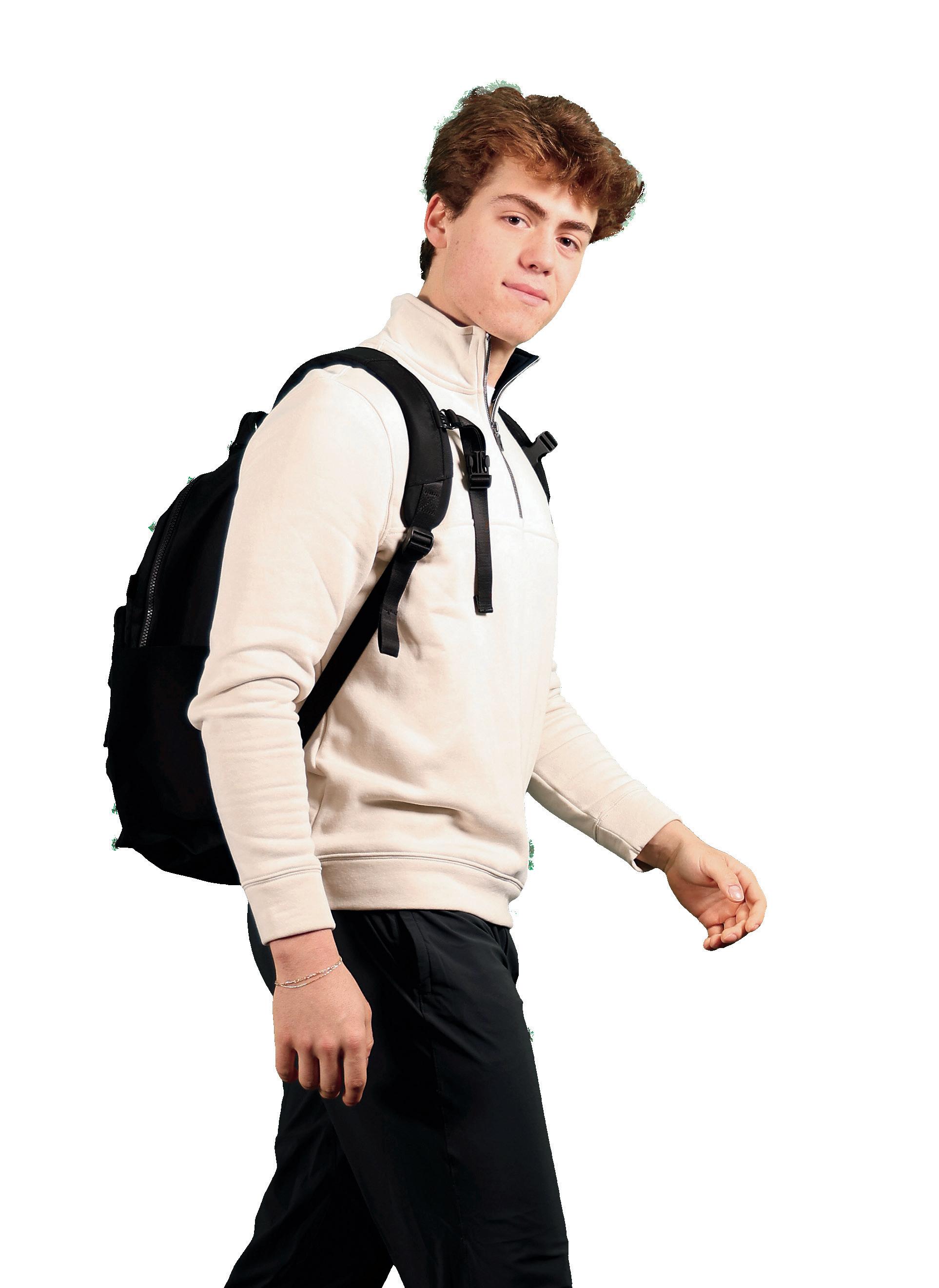
Portrait of a Graduate describes the various Journeys each student takes during their time at the Academy: Personal, Community, Intellectual, and Ethical.
On the following pages — in their own words — is a sampling of the scaffolding, curiosities, discoveries, and growth that current students are experiencing as they pursue their interests at Cushing.
AP Biology is my favorite class. It’s a challenging class and we do a bunch of different labs on things like cell growth, and the stages of mitosis. I really enjoy that hands-on learning. We did one on cell growth in cancer cells and how it can spread everywhere, looking at a bunch of different little karyotypes under a microscope. There’s a lot of application in the class, and it helps that it is real-life material. I think Cushing has really sparked my interest in pursuing a biology major in college and eventually working in the medical field.
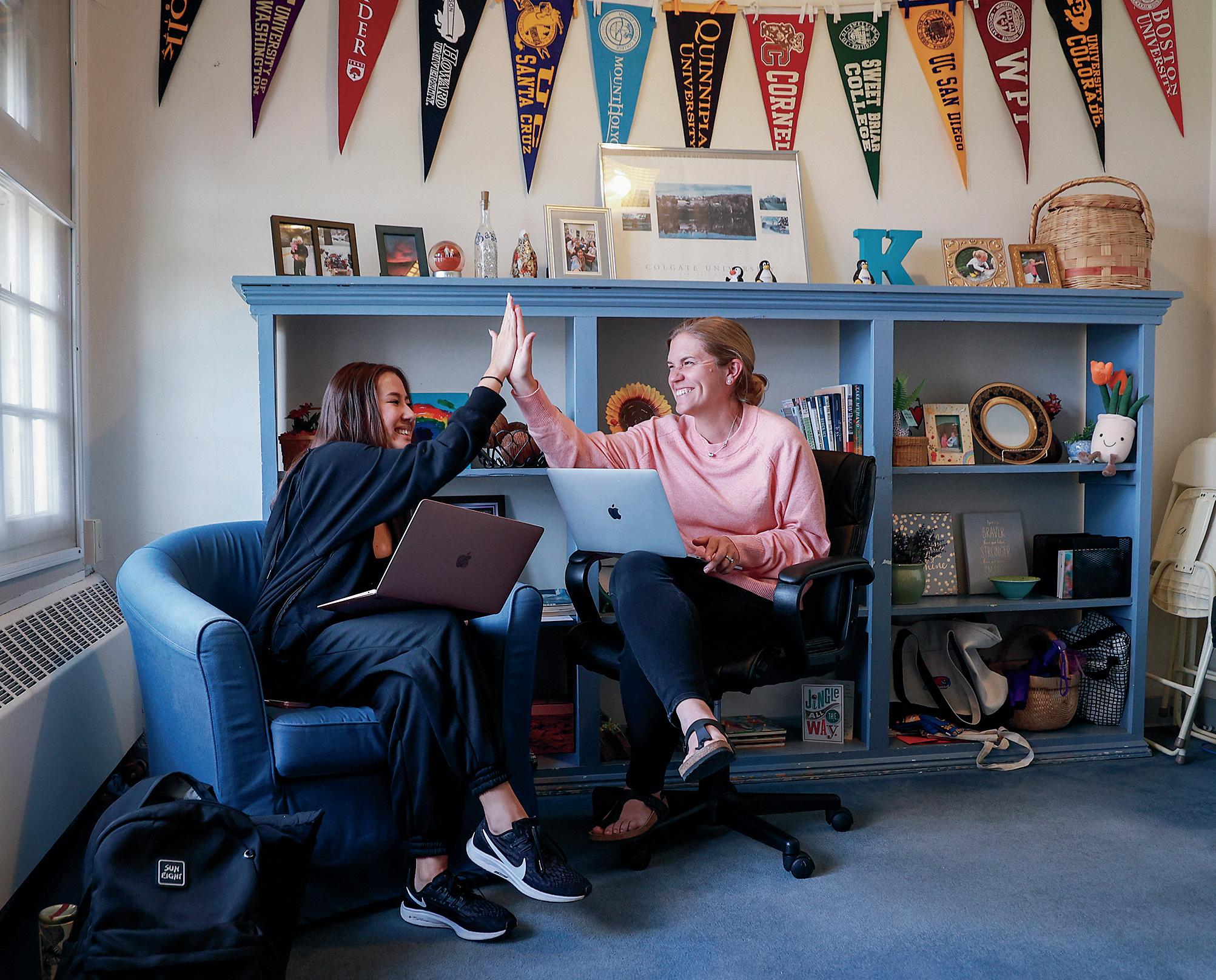
Rhode Island
My favorite class last year was AP Language and Composition. Mr. Bala was so helpful. He helped me with my college essays this year, even though he wasn’t my teacher anymore. He has a really different approach to teaching than I’ve ever seen before. It is a really challenging class — but it being difficult didn’t make it something you dreaded. For instance, we’d have reading quizzes and they asked the most specific questions you’ve ever seen. You really had to pay attention to your readings! But it was really cool, too, because you learned to pay attention to nuance.
In another example, we had to write essays about one sentence in a book, using quotations. One sentence! That was really difficult because you have to be like:
“This comma here shows that…” I mean, we’re talking about just one sentence! Sometimes we even ended up focusing on just one word! That was something I’d never done before. It felt like a pretty daunting task. But Mr. Bala would set up meeting times with each of us. He helped me really understand what I was doing. I wasn’t just going through the motions, I was analyzing literature!

“Teachers at Cushing... make the kind of environment that you want to thrive in and they help you as much as they can. You always feel everybody wants the best for you.”
—AMINA
Kazakhstan
Teachers at Cushing are different than I have ever experienced before. They all feel like family. You don’t really have that feeling of being uncomfortable or of them being too harsh. You feel like they always have your back and they’re rooting for you no matter what. They make the kind of environment that you want to thrive in and they help you as much as they can. You always feel everybody wants the best for you.
For me, in particular, it was our theatre teacher, Ms. Ohm. I love being around her so much that I switched to having her as my advisor this year. Coming into Cushing, I was new and really shy — but really passionate about theatre. She really helped me embrace my love for the arts. She encouraged me to come out of my shell, but never rushed me. She was just there for support, cheering me on the whole time. She felt like somebody that I could always talk to no matter what. She is always there to see me succeed.

“It’s the best experience I could ask for.”
—OLIVER
I came to Cushing from doing school online. The whole process of study hall and going back to school work was pretty tough for me, but I talked to my teachers about staying in touch and they guided me through the whole transition. It has kept me much more engaged in learning.
I have all my teachers’ contact info. So if I ever need something, I just reach out to them and they usually respond right away with an empty class period that I have or they have, so we can meet and connect. It’s been amazing. It’s helped me learn a topic or get help with whatever I need. It’s the best experience I could ask for.
I learn outside of class, too. My roommate is from Japan. It’s really cool to talk about our culture differences over lunch. And I stretched myself in this first year by taking classes like photography, which give me a different perspective on my environment.
In my sophomore year, I started Mandarin I. My teacher, Dr. Qiao, is super supportive and one of the best teachers at Cushing. She was always there for me every step of the way. I took Mandarin II over the summer of my sophomore year, so that I could complete four years during high school. Dr. Qiao regularly checked up on me with emails and would say “Oh, this is good,” or “This is wrong and here’s how we can work on this moving forward.”
When I came back as a junior, I was ready for Mandarin III. Even Dr. Qiao was surprised at how much I knew. I watched movies and I indulged in the culture beyond just language experience.
“Now I’m in Honors Mandarin IV and I just love it. I’ve found a lot of joy in learning a new language at Cushing.”

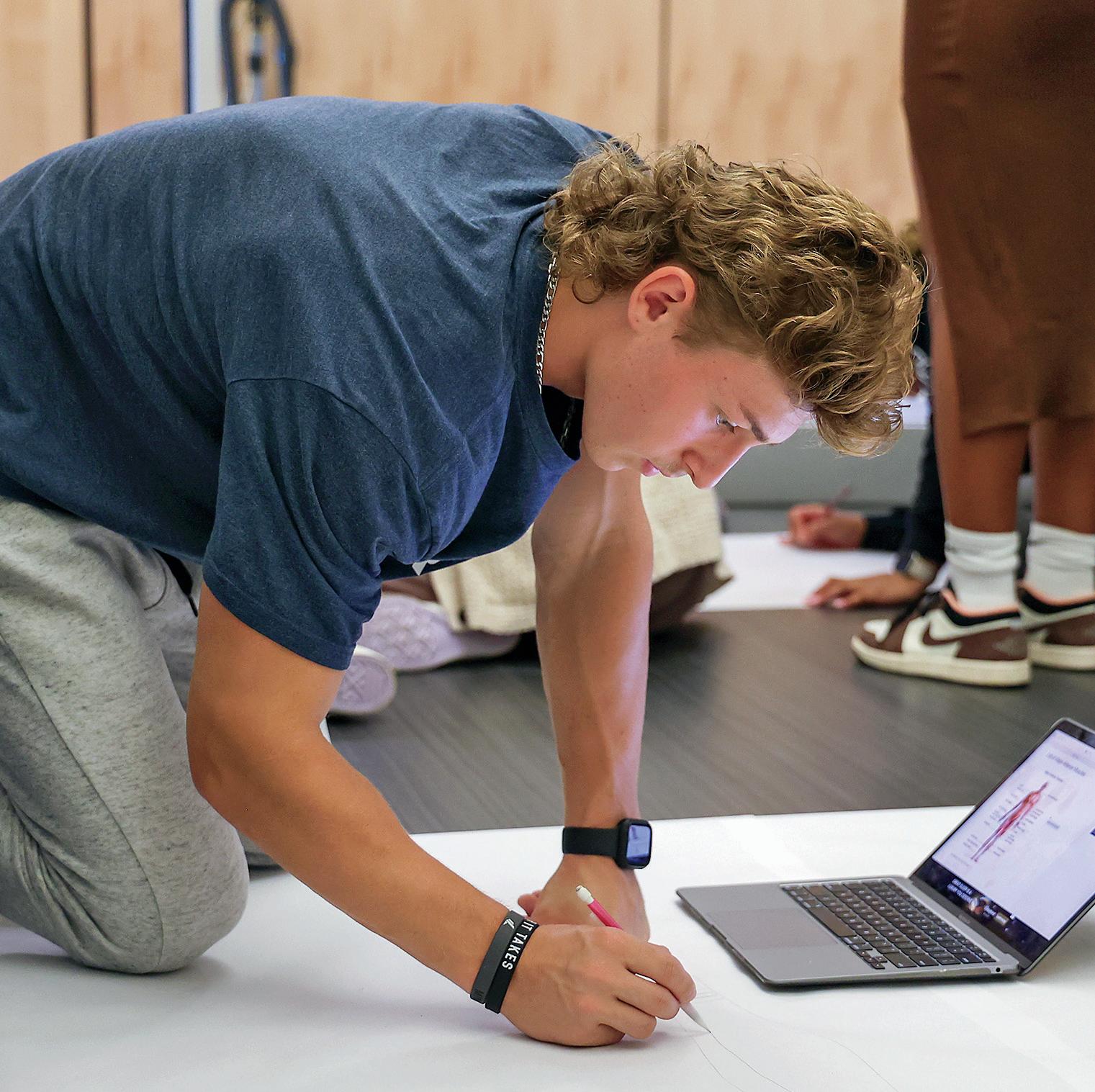
I appreciate how I have grown so much more confident in learning at Cushing. My all-time favorite class is Mr. Conroy’s English class. He teaches in a way that grabs my attention. I like that if you answer a question, and it’s not the correct answer, he won’t tell you that you’re wrong. He’ll direct you and guide you and eventually you figure it out on your own. It gives me confidence. I’m not scared to give my opinion or contribute to the class, because that’s what it’s all about.
Last year we were having a debate on public versus private prisons. I did my argument and after I was done he started clapping and said, “I’m really proud of you.” I’m not going to lie, it meant the world to me to hear that from Mr. Conroy.
California
I love learning about different cultures and how they speak. Learning about cultures in general is cool because in my family I have three different ethnicities — my mom is Singaporean, my dad is Swiss, and my grandpa is Scottish. And then I live in California! I’ve grown up with so many different traditions, so I like learning about other people’s cultures, too.
At Cushing, I’m really able to explore that. For instance, in world history, we’ve learned a lot about ancient India and ancient Egypt — countries that my old schools never really taught us about. We were always more focused on Europe — and I think it’s great how we’re also learning about African and Asian cultures.
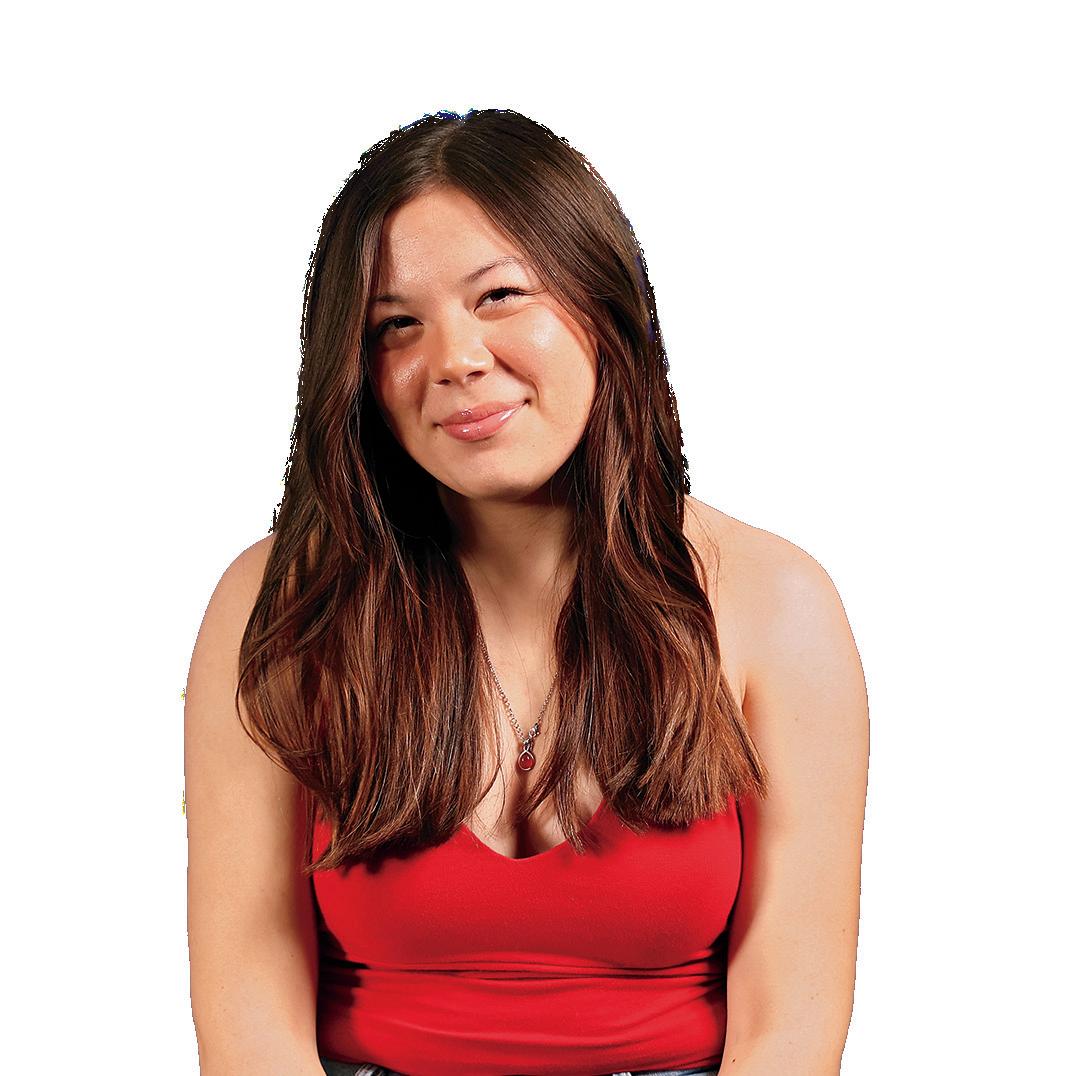
In my Spanish II class, I love how Ms. Villaquiran has us learn about different Spanish-speaking countries by doing research projects. There are so many different countries that speak Spanish in their own ways — like Spain, Argentina, and Mexico. And it’s really cool to learn about the different dialects in class.
Being at Cushing has really improved my time management skills. I learned to set an alarm clock. I started keeping a calendar on my phone. I learned to schedule my time for projects. All of which has definitely helped me become a stronger learner. It also is helpful to have dedicated time for school and sports and study hall. Cushing gives you the opportunity to budget your work and play time, which allows you to take ownership and balance your day. I challenged myself over and over again. Now, I’m here taking an AP course that I thought I would never take. I actually enjoy doing homework and I like to push myself. Now I sometimes even start my
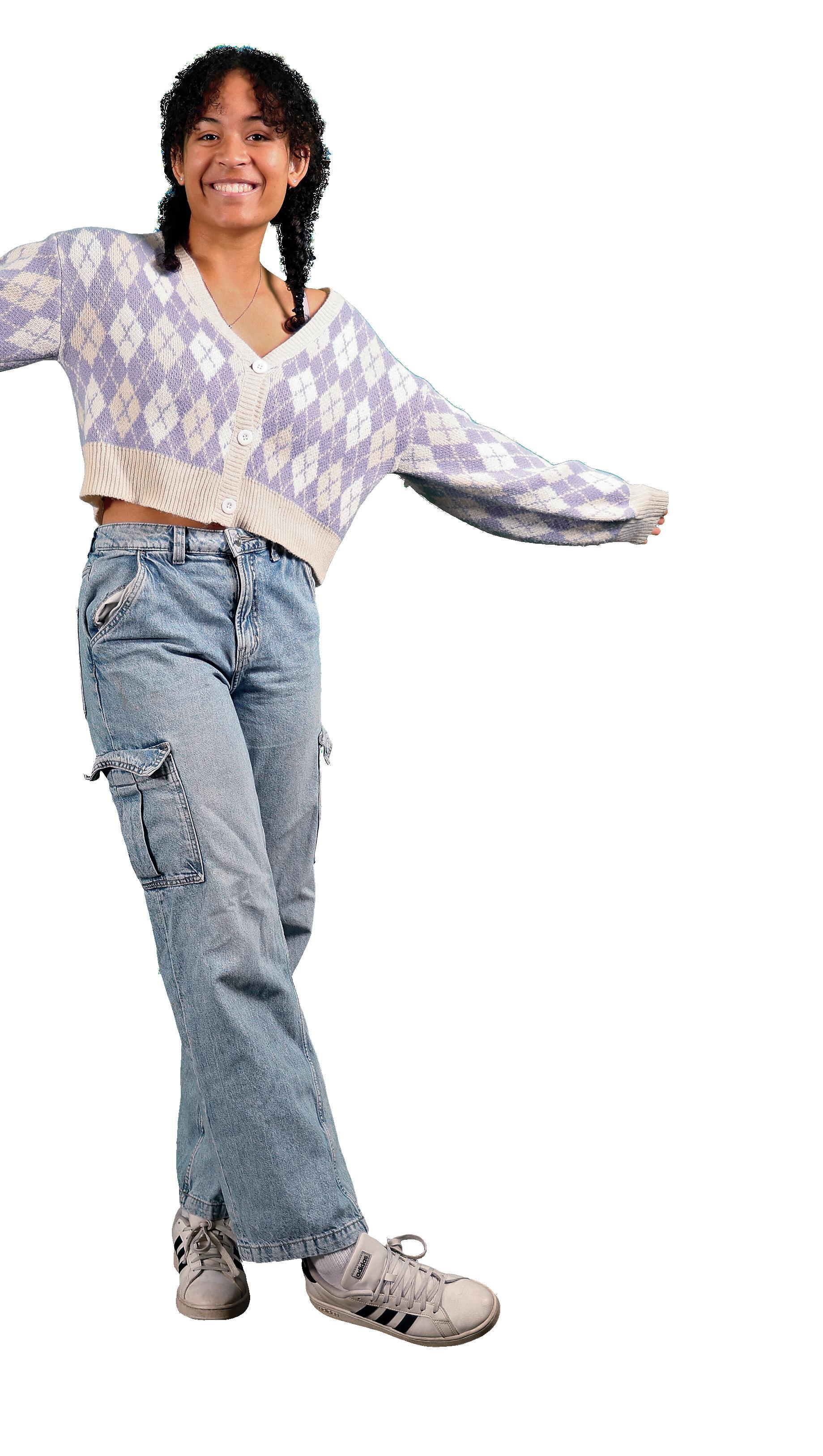
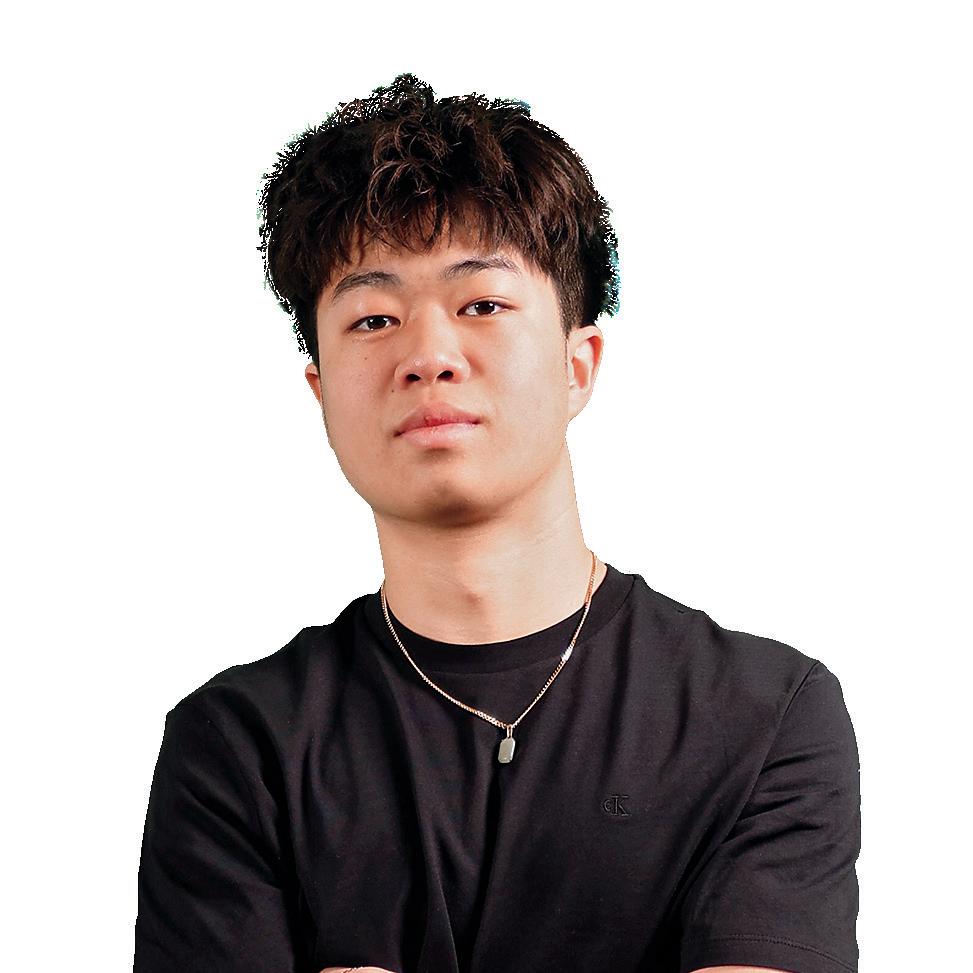
I’m really interested in environmental sustainability — in particular, I want to change the perception of environmental sustainability for the people of Vietnam. In addition to the work I’m doing at Cushing, I’ve been working with a professor at UPenn on a publication research project about incorporating sustainable practices among businesses in Vietnam. As part of that, I’ve actually created a startup which aims to incorporate a sustainable business model for Vietnamese cuisine. Basically, as proof of concept, I’ve opened a sustainable, fast-casual restaurant in Ho Chi Minh City. It’s been challenging. I’ve been doing a lot of the work remotely. I’ve had to do a lot of virtual meetings. But in its first couple of months, the business has been doing really well. On campus, I’ve leaned into that entrepreneurial spirit by founding a Cushing chapter of DECA, which is an international organization focused on entrepreneurship. Last semester we were the largest student group on campus. Besides focusing on business practices, we work on sustainable business models and incorporate our knowledge into real-life competitions. It’s fun and really rewarding to share my passions here with other students.
“It’s fun and really rewarding to share my passions here with other students.”
—JERRY

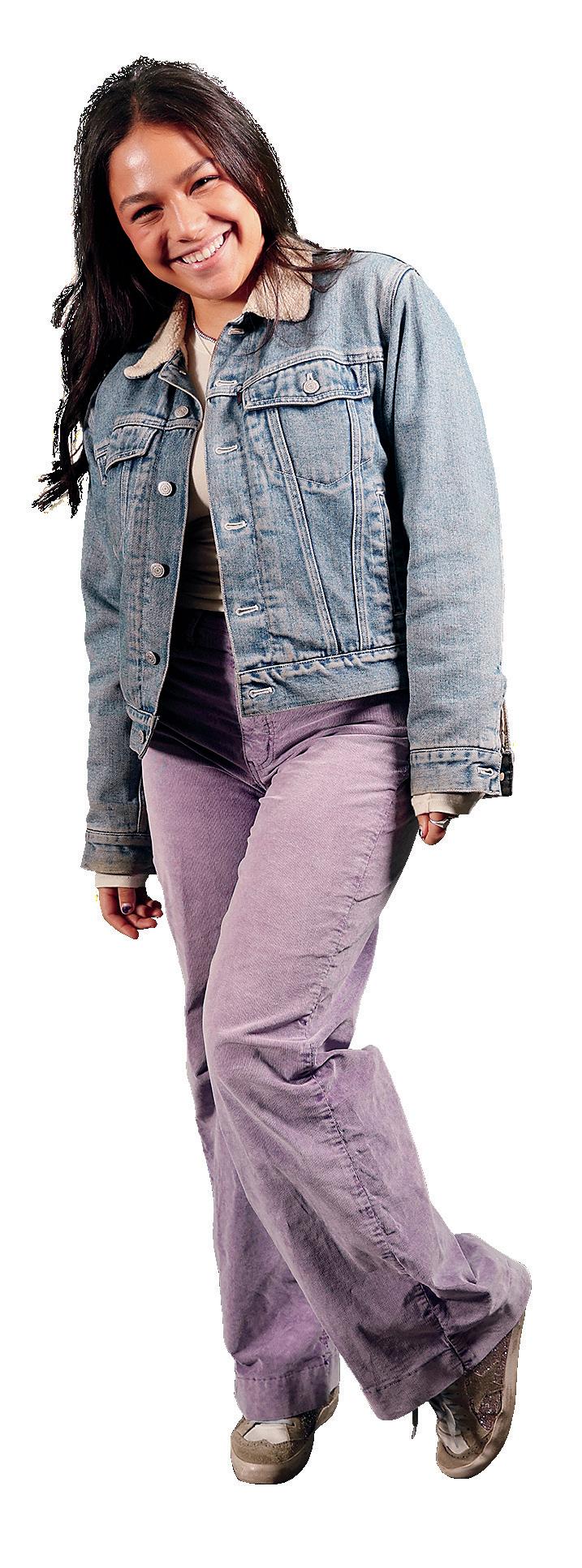
“Now
My favorite classes have been physics and philosophy. I feel that physics and philosophy are at the intersection of the metaphysical and natural worlds. They work to produce information that can teach us about things we don’t know. I’m thinking about a career in the space industry. I want to be an astronaut. Or maybe I’ll work in logistics. Regardless, I’ve become obsessed with space and big bodies of mass that are relatively unknown — and I know I’m going to major in those subjects in college because of my time at Cushing.
Physics is actually an interesting story for me, because I really hated the class when I started it. I have not done well in math historically — and in physics, there is a lot of math! At the start of the year, I wasn’t doing well and my teacher Mr. Kublbeck — who is one of the best people I’ve ever met — pulled me aside and worked with me outside of class and was so supportive. With his help, I just started to get it. It’s math, but it’s applied mathematics, so it just lands differently. In fact, I started doing physics so much that it became almost addictive… I have found so much beauty in the numbers. Now I’m obsessed with understanding the unknown.
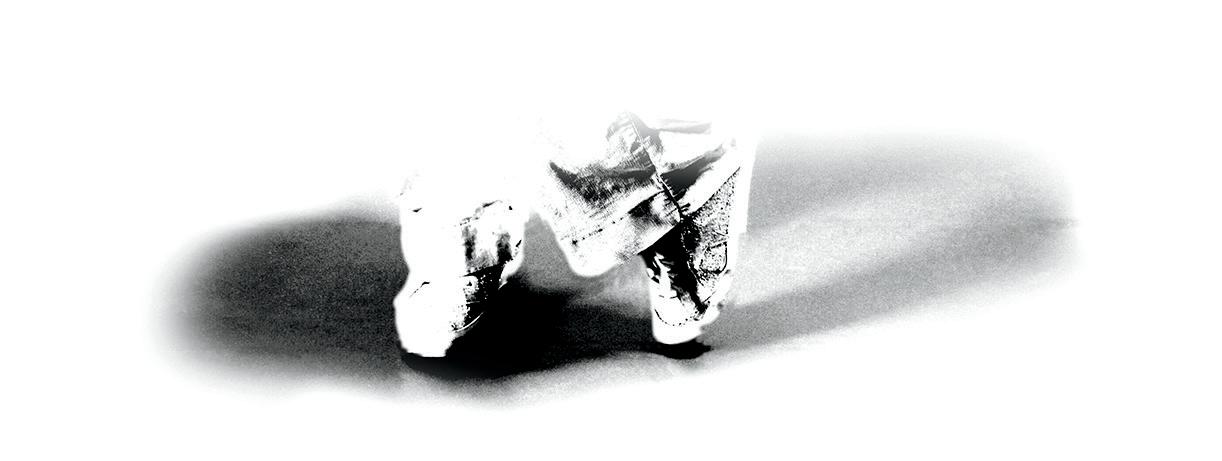
I’ve been learning to throw clay here at Cushing and I feel like it’s really representative of my journey.
I’ve had to learn patience, I’ve had to learn delicacy — you can’t put too much pressure on the clay or else it will fold and crumble. You need to put pressure on yourself to do well, but not too much pressure. I think that it’s been a really important lesson to learn. Cushing does a great job of applying the right kind of pressure to help you become your best self.
One place I have grown at Cushing is as a writer. I’ve always had a deep passion for writing, but coming to Cushing, teachers have challenged the bounds I’ve set for myself. I’ve been able to publish works in our literary magazine. I’ve written poetry that I can say I’m proud of. I’m really grateful to Cushing for providing me these opportunities.
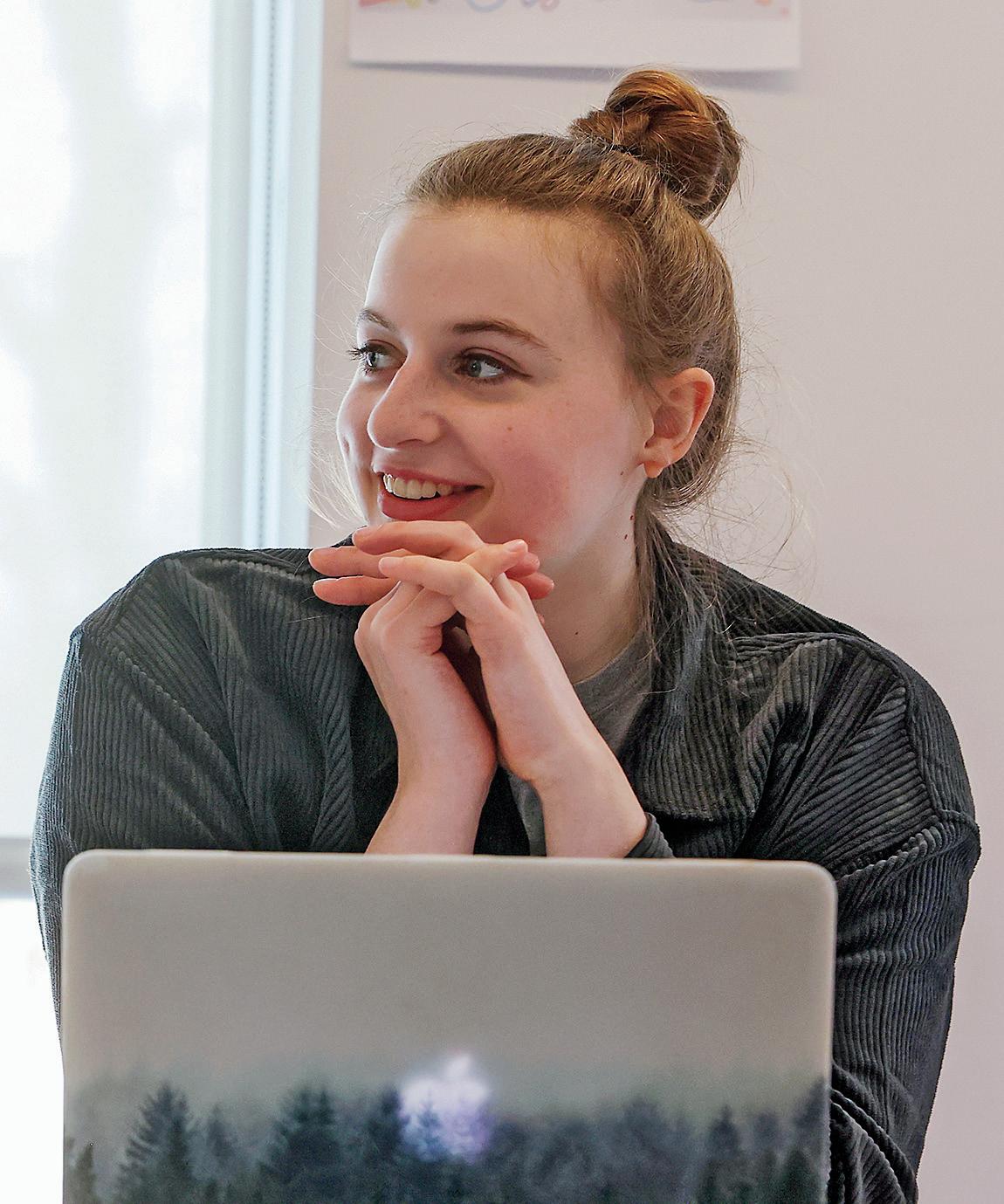
My first AP class — AP Language and Composition — I was immediately intimidated. The classroom is set up seminar style, where the teacher and students are all looking directly at each other. It was very discussion based. You had to bring your own truths to the table, everybody included. It was also sort of philosophical and mathematical at the same time. Like, when learning about systems for deductive reasoning and formal logic. In the end, it became very comforting — it was great to have that challenging environment that was also playful and active. The analytical element of the class really motivated my philosophical curiosities, so this year I enrolled in Mr. Pettit’s philosophy course as well as Mr. Hunt’s AP Literature and Composition class. I’m grateful to have many groups where we can explore so much depth at Cushing.
I feel like I’ve definitely grown a lot since I came to Cushing. I learned to step outside my comfort zone, to try something new, and to seize opportunities. For example, I was encouraged to become a manager for the prep boys’ basketball team — and I was nervous at first, but it’s been great. I feel like I’ve really been able to contribute to the team, and I have learned about how to be resilient. In sports you have high moments and low moments, but my experiences at Cushing taught me how to manage them all. I think at Cushing you learn how to cope with things. You learn how to manage your time. You learn how to be in a really close-knit community. It feels amazing to be a Cushing Penguin. You have support, and meet all types of people. Down the line in life, you’re always connected back to the school in one way or another. I feel included here — like I am part of something really special — and it makes me feel like I can accomplish anything I set my mind to.
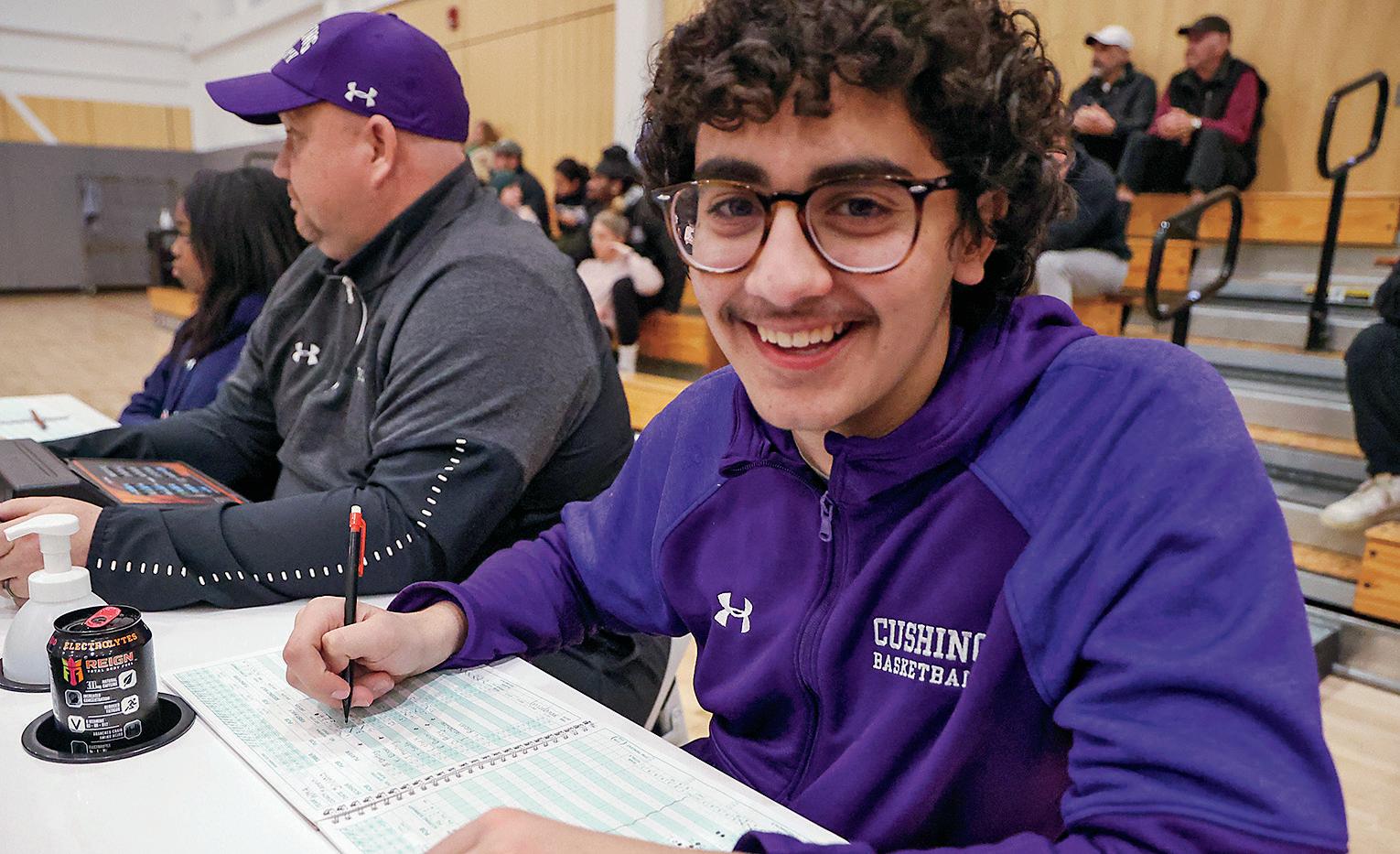

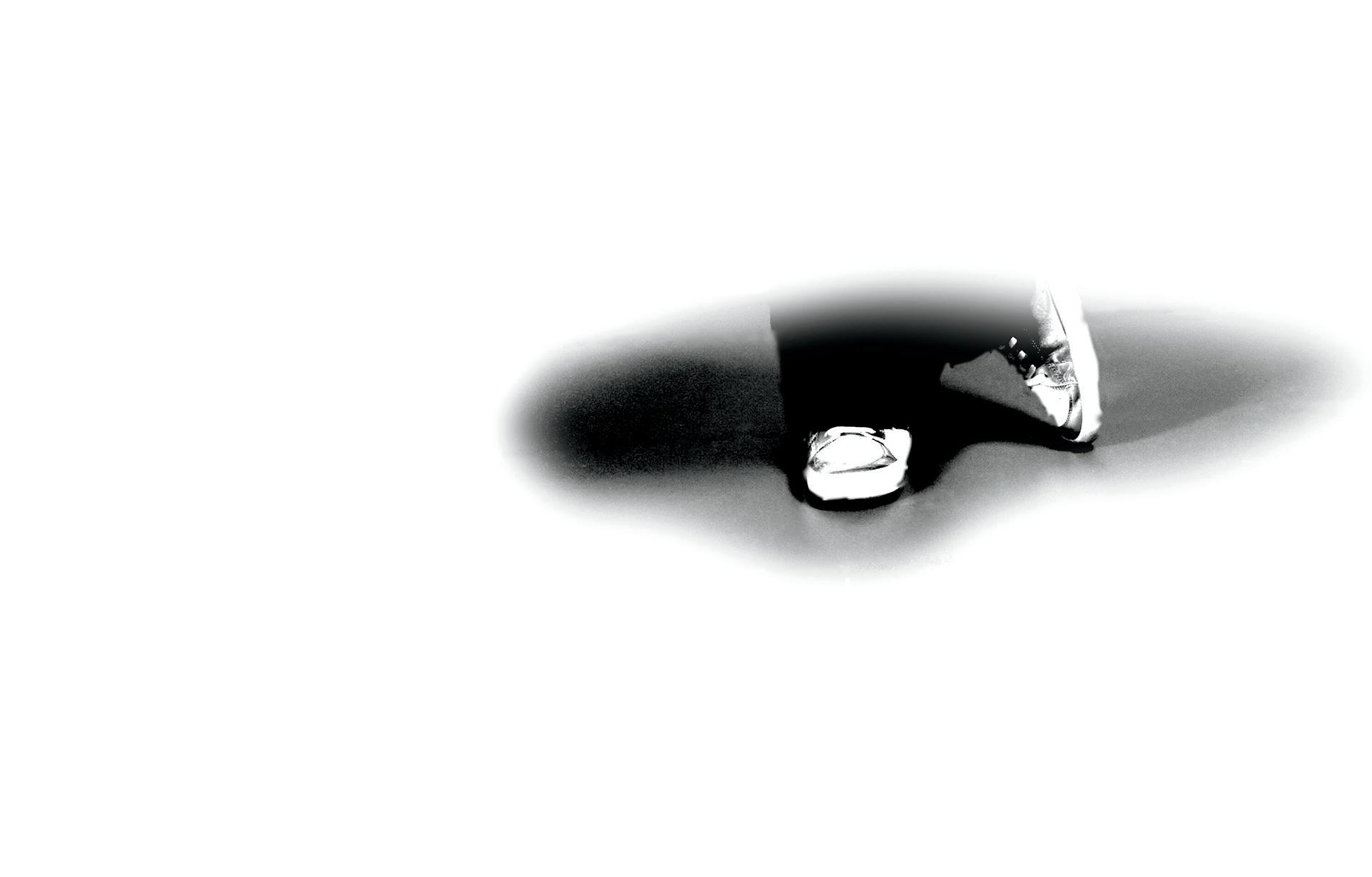
the line in life, you’re always connected back to the school in one way or another.”
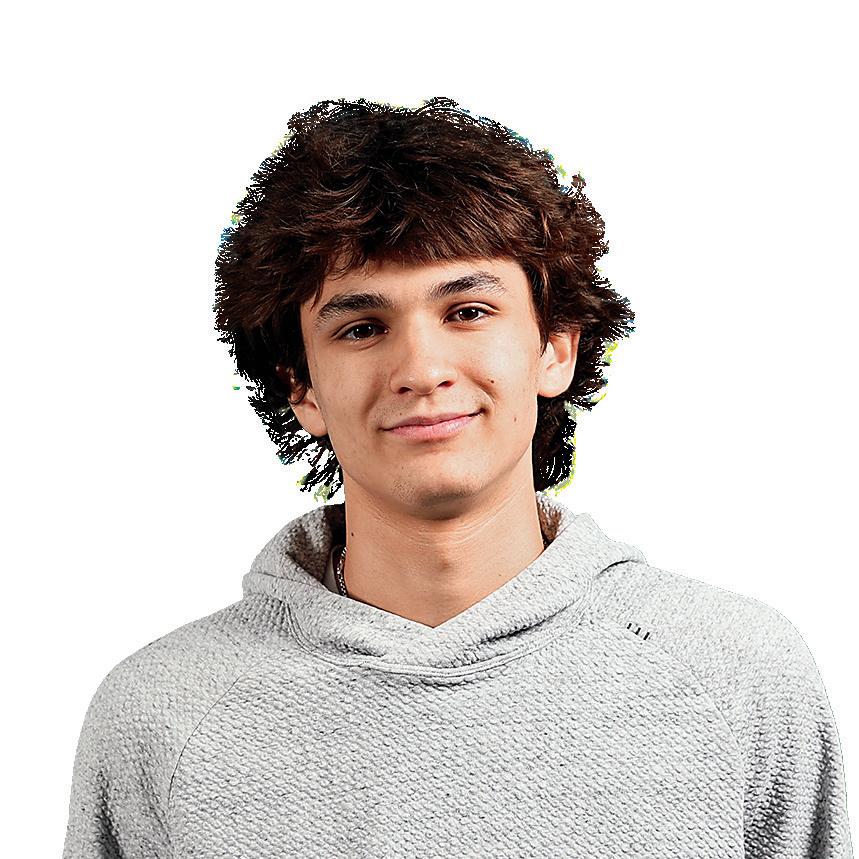
I’ve never really been that into science, but my Honors Biology teacher Ms. Murray — I mean, she’s super methodical and she makes it so fun. Now it’s one of my favorite classes. The other day we extracted DNA from strawberries — it was incredible, you didn’t even need to use a microscope to see the DNA strands… when we separated them out you could see them with your bare eyes! Fun things like that — the hands-on stuff — it really gets me involved.
My favorite thing about Cushing is the community here. At yesterday’s hockey game, there were, like, 1,000 kids there — it was a really great environment. I like being in a community where people want to come out and support one another. And it’s not just athletics. In my dorm, my best friend and I will often study together — but then before a test we’ll get together with a larger group and everyone’s working together. Or the other day, when one my hallmates shared one of his favorite Korean action films — I mean, it was awesome. You make these great connections and learn so much.
“Cushing has really empowered me to be myself and to share my feelings and my work with audiences.”
My dance career started with ballet, when a neighbor invited me to her big concert. I thought, “Oh, the dresses are so pretty. I want to be part of this.” I started dancing at six. Then when I went into middle school, I was exposed to the beauty of other kinds of dances like Bollywood, Chinese traditional dances, pop, jazz, and contemporary. Part of the reason I came to Cushing is because there’s a wonderful dance program here. I love our teachers. Being involved in different dances — from hip hop to ballet to KPop — has allowed me to see the world from a perspective that I would never otherwise see. The performing arts at Cushing have been the biggest part of my intellectual journey. Being on stage — at coffeehouses, musicals, plays, and dance concerts — has shaped how confident I am as a person. I think Cushing has really empowered me to be myself and to share my feelings and my work with audiences.
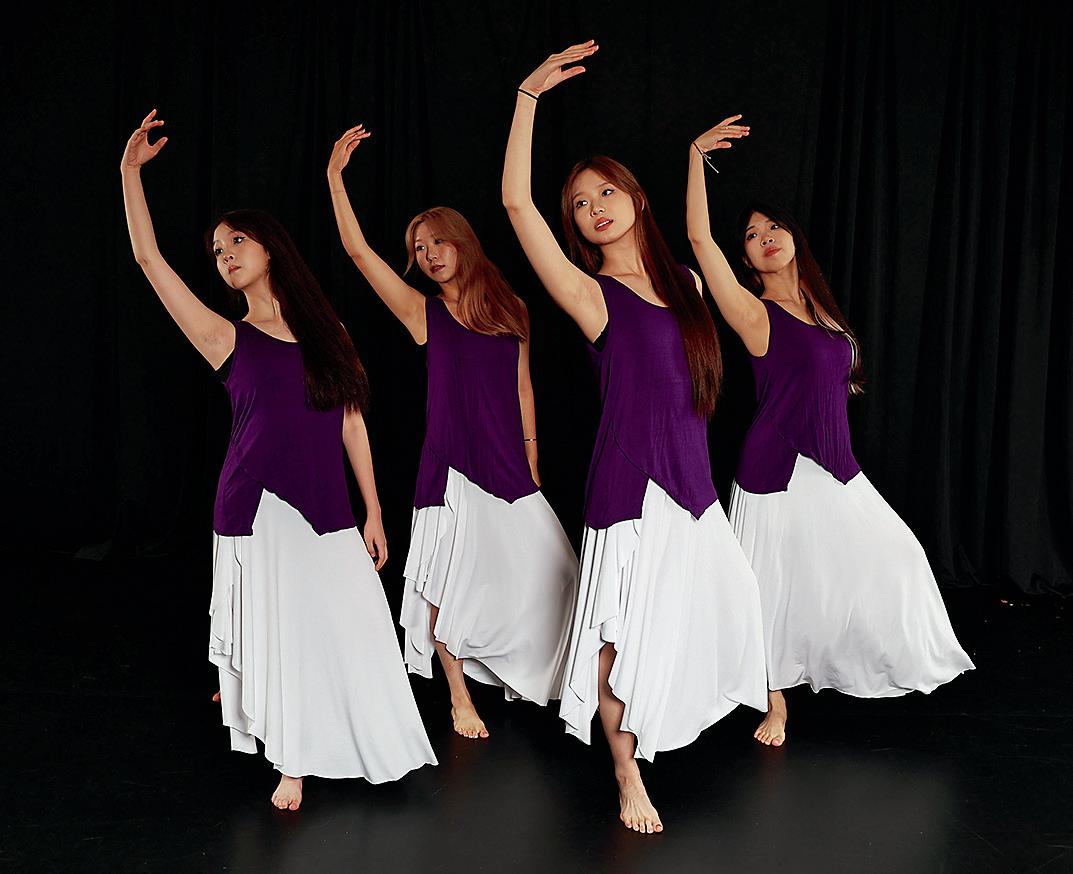
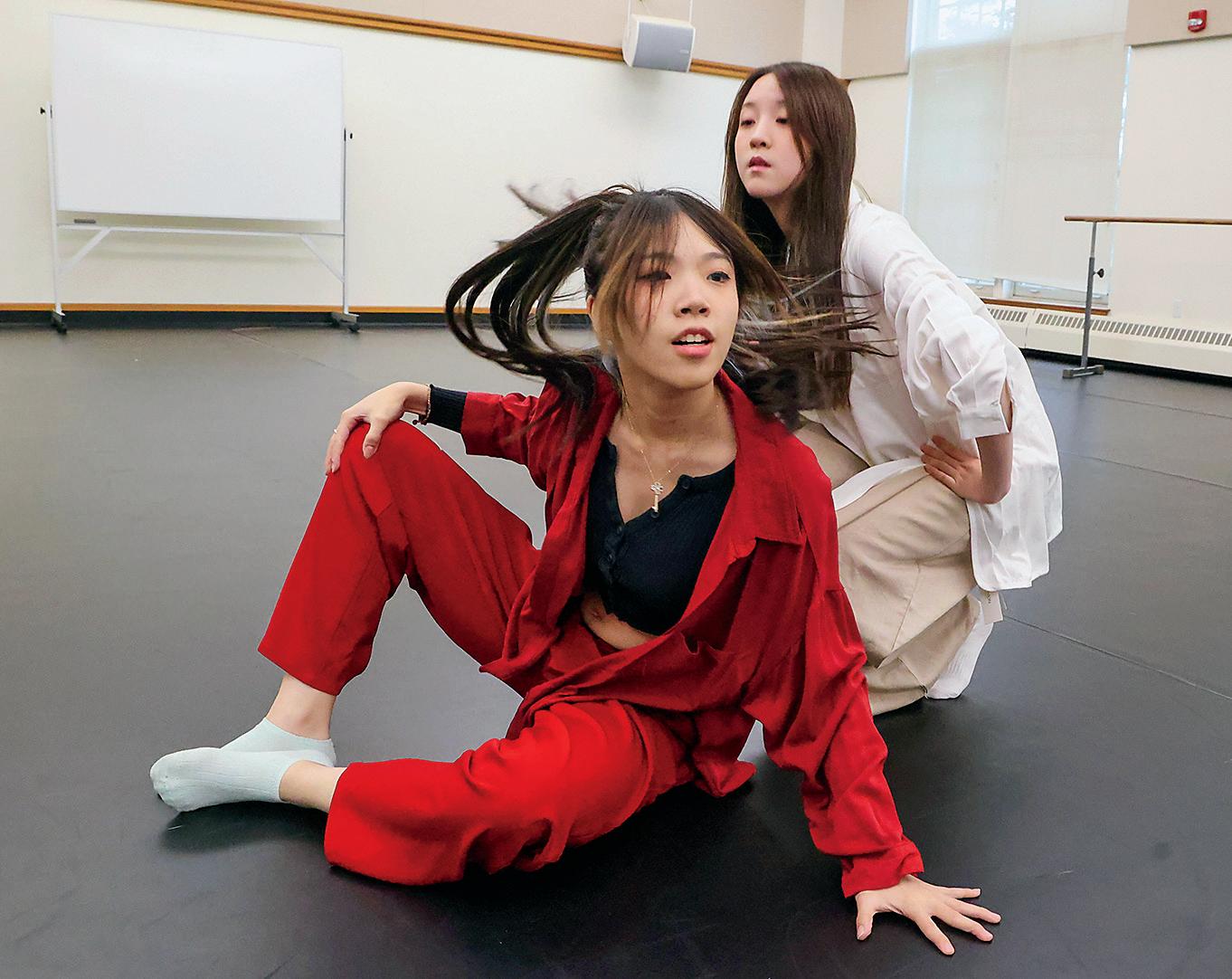
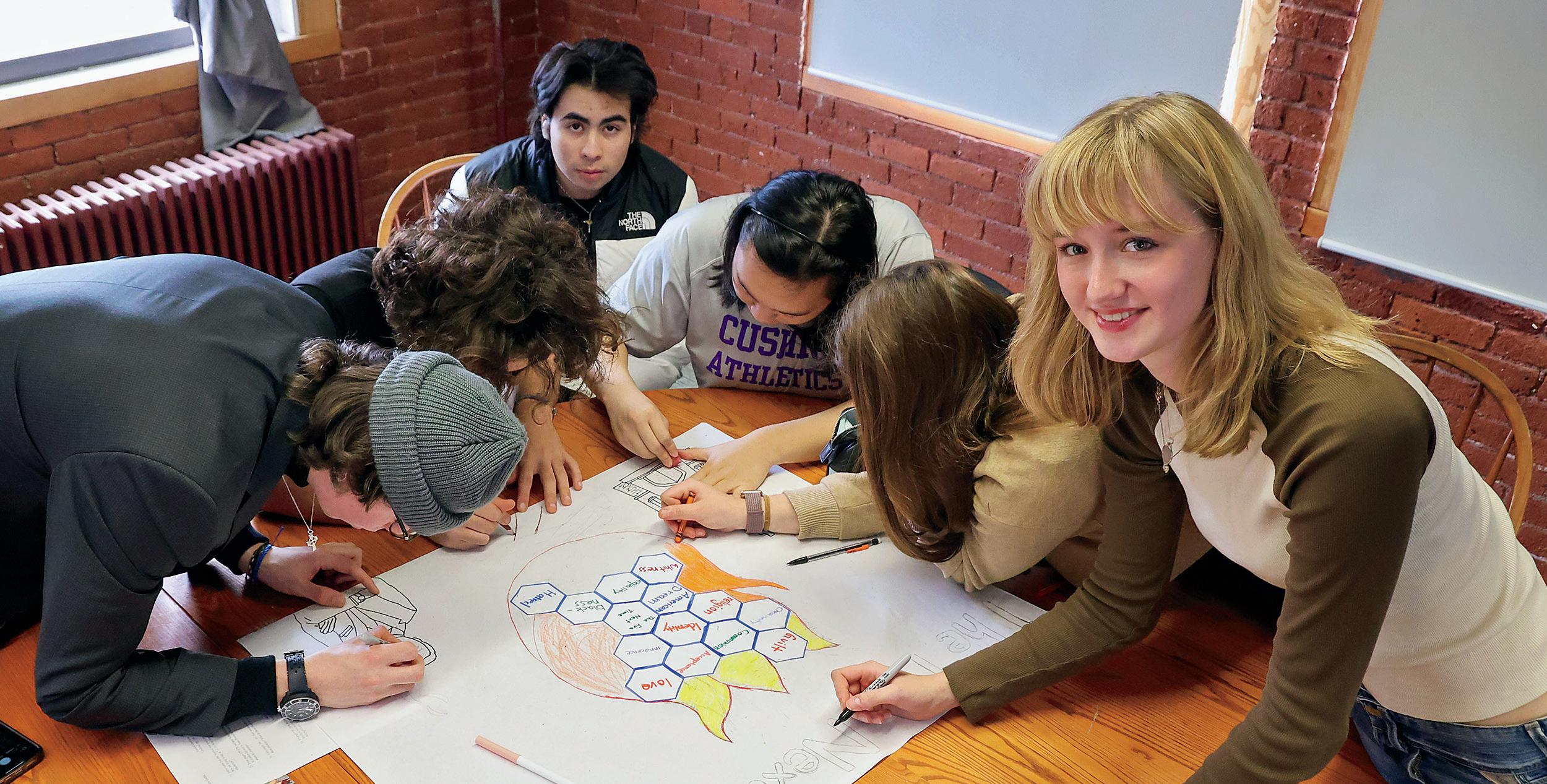
RAHEL KUTZNER ’24
Germany
One thing I love about Cushing is that I can try new things. I came from a high school in Europe where I had learned a lot about the European and German governments. AP U.S. Government was a completely new topic for me, but through the support Cushing offers, I was able to reach my fullest potential. The way teachers approach learning resonates so well with me that I was able to earn high honors for the first time ever last year, which is a real accomplishment. Through the supportive environment, I and the people that are dear to me are able to fully celebrate my achievements.
“Interactive is the best word to describe Cushing classes. We do project work and we have class discussions. It keeps me motivated.”
—RAHEL
For me at Cushing, it’s all about the chemistry in the classroom and about the teachers and the way they interact with the students and how we, the students, respond. The teachers have the most genuine care for all of their students. The atmosphere is unique. Interactive is the best word to describe Cushing classes. We do project work and we have class discussions. All those things keep me and my classmates motivated to try our best every day.
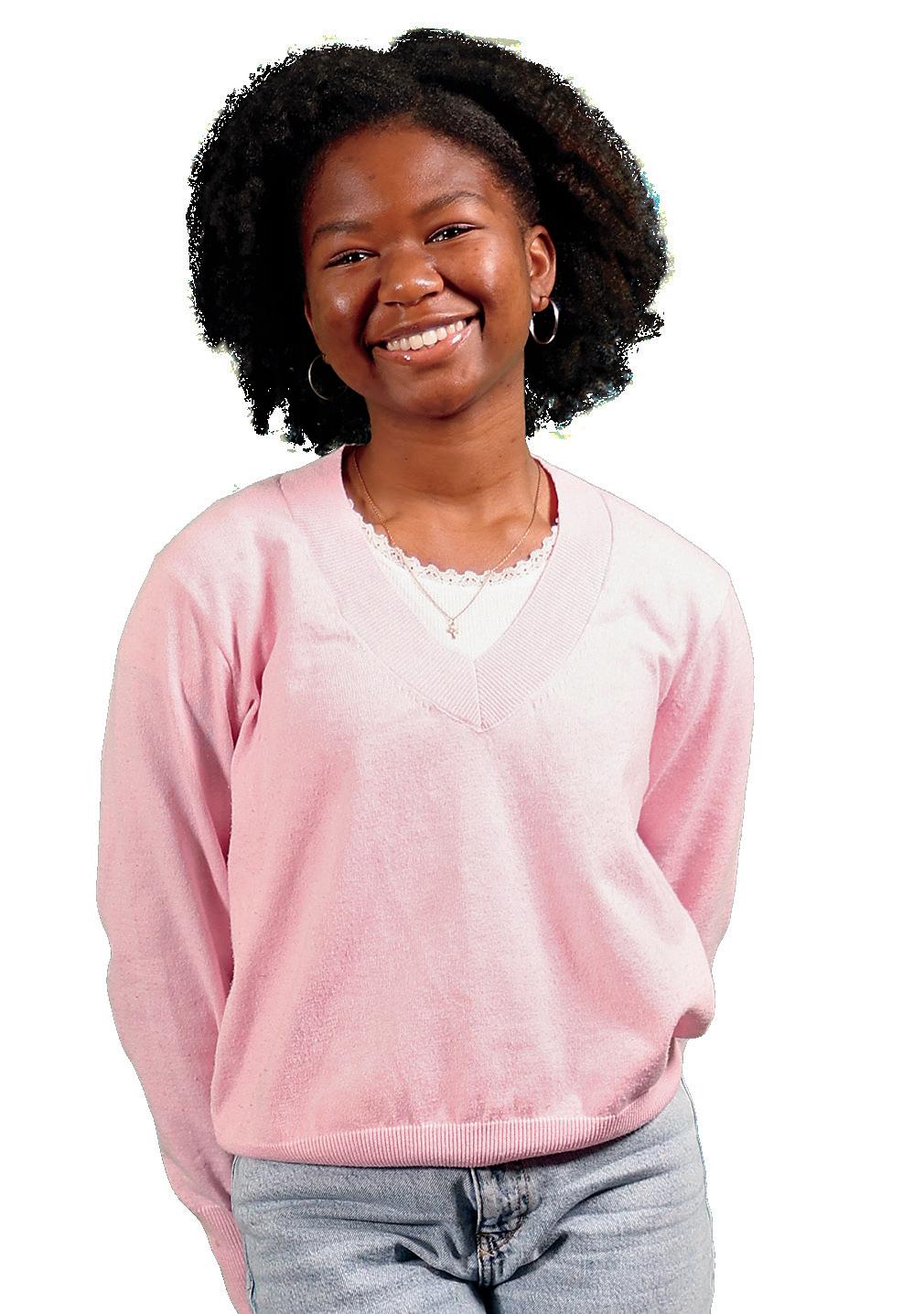
Massachusetts
I’m very science-oriented. I like that at Cushing you can choose which science classes that you want to do, based on your focus. I love biology. I want to study that in college. So I’m taking as many biology classes as I can. I’ve taken Chemistry, Honors Biology, and I’m currently in AP Biology. It’s challenging, but it makes me think, so I like that class a lot.
The labs are really fun because it’s the hands-on part of science. Rather than just doing formulas and learning content, you actually put that to work. Last year in honors biology, we did a lot of dissections — mussels, starfish, frogs. All those were fun. I learned that a starfish has two stomachs. One of them was the pyloric stomach, and one you can only see once you open it up.
Ecology was a really inspiring class for me. I’m a tactile, hands-on learner. I like to move around when I’m doing stuff, and Ms. Salvucci teaches the course exactly the way that I learn my best, which was really nice. We did a lot of group work as well, and to be able to move around, work with others, and share our opinions — it really gets the conversation and ideas flowing, which really helps me learn.
On top of that, ecology was just, like, really fun! It was chill, but there was a lot to learn. Near the end of the year, we did a unit on birds. We had to identify them by how they chirp. It was a really fun unit. We went outside a lot listening for different calls — you had to really slow down and observe the birds in their natural habitat to get a good ID.
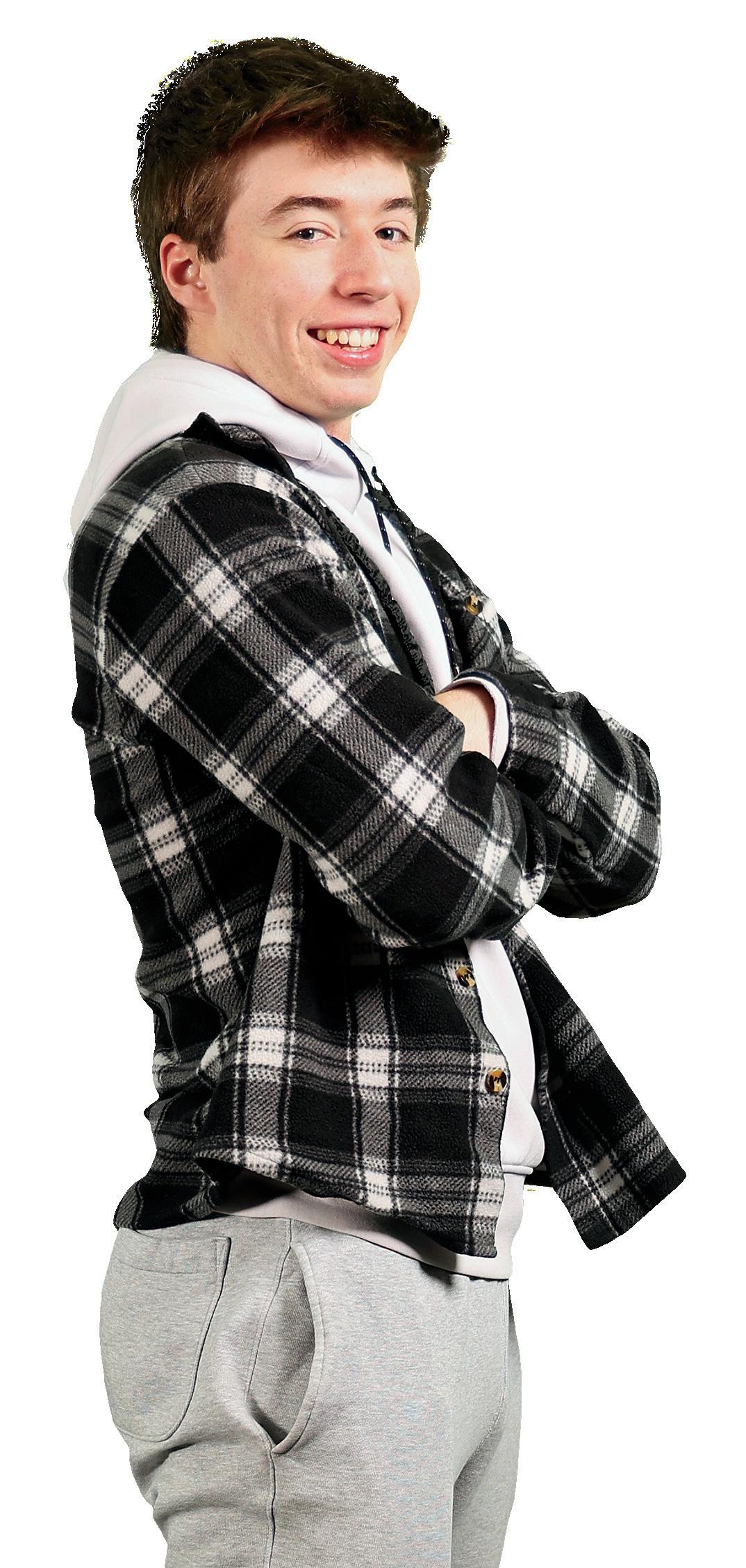

Cushing has nurtured a growth mindset, which has taught me to be open to thinking about things in different ways. For instance, in Honors Literature and Composition our assignment was to write a “flipped fairytale.” We read a bunch of different versions of fairy tales and I noticed that a lot of them had the same themes, with men as the heroes and women just kind of being there. I thought to myself, “Why can’t it be the other way around, with the women as the heroes?”
In class, we had a very good discussion on gender theory — about identity and gender representation — which really helped me put my thoughts together. And from there, I wrote a creative story that Dr. J [Dr. Juarez] really loved, that combined all of the things I was thinking about. It got me thinking beyond this one assignment — you know, that anyone can make change. It can be just one person. If you see something out there that doesn’t seem right, it just takes thinking, “I can change things” and then making it happen.
“It can be just one person. If you see something out there that doesn’t seem right, it just takes thinking, ‘I can change things’ and then making it happen.”

A one-time Soviet prisoner turned long-time university professor and human rights advocate. A near-Nobel Prize winner. An immigrant herself who now helps those who are new to her city. One of the world’s leading experts on North Korea. A young Silicon Valley business-techie. And all Cushing Penguins.
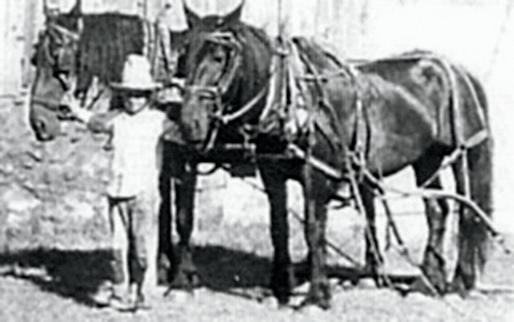
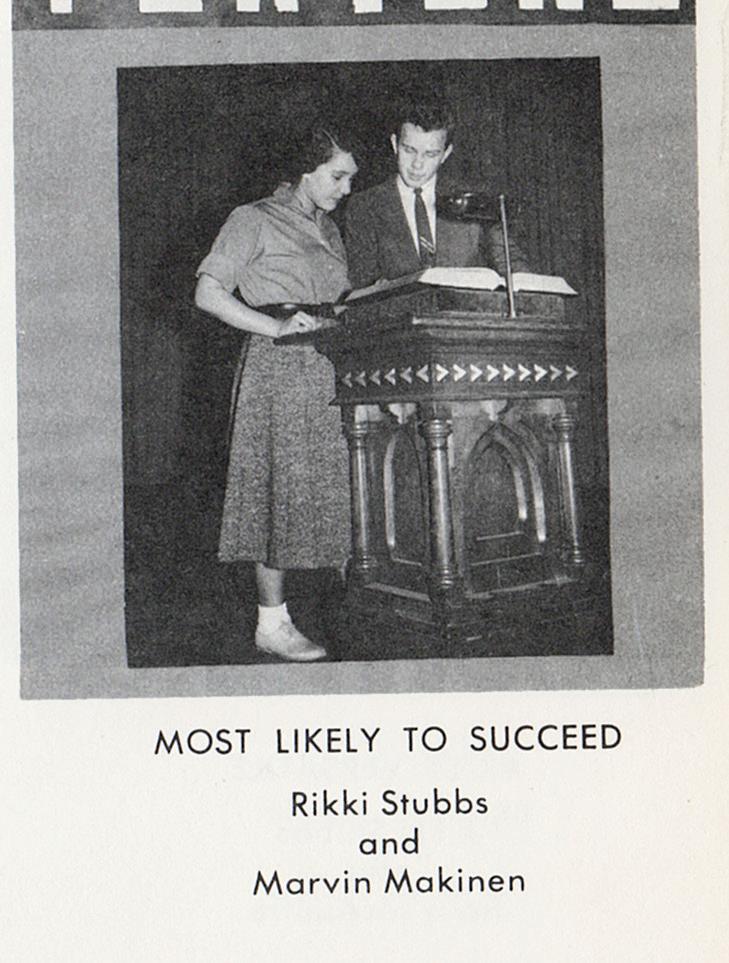
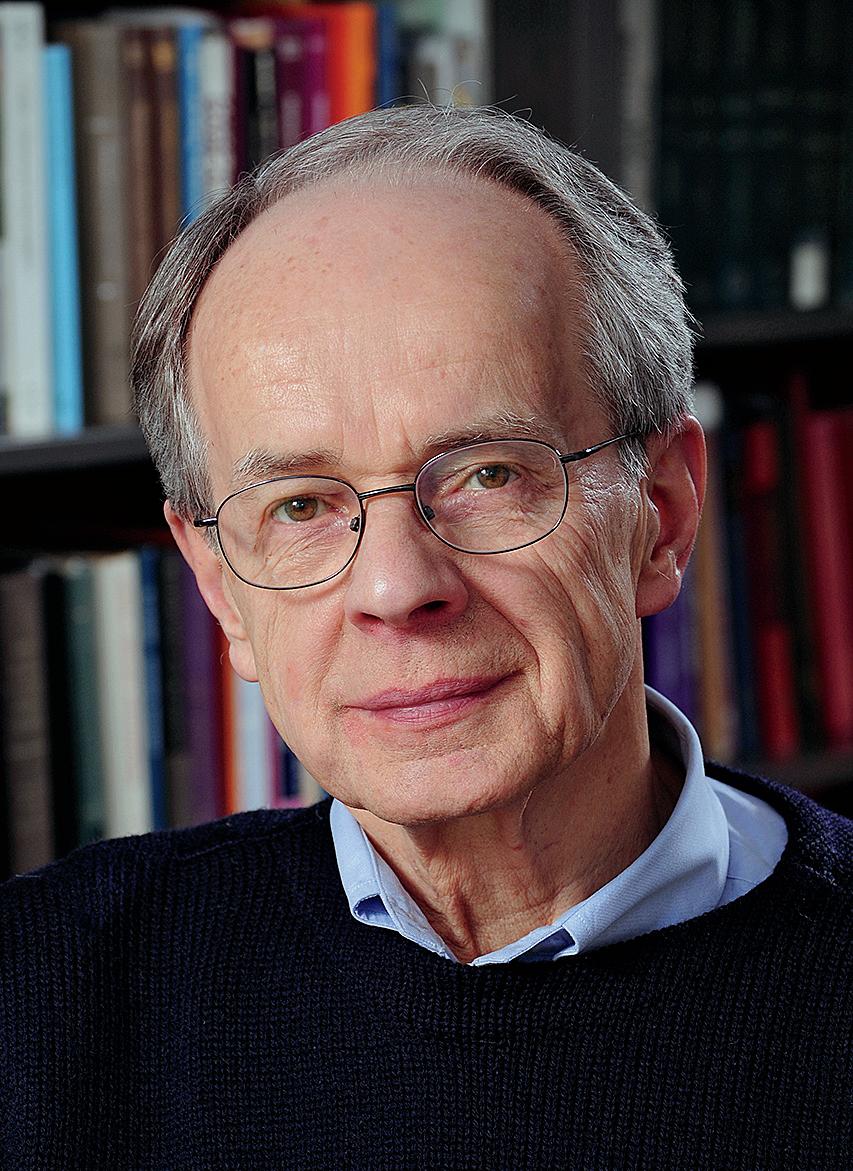
On the Central Intelligence Agency website, there is a section called “Spy Kids.” Chock-full of stories, it is intended to teach children how people work to keep the country safe. It even includes a “games” section where children can try out a ‘secret’ mission.
But in 1961 when Marvin Makinen ’57 was called by his country to serve, it was no game.
Today, Makinen is a professor of biochemistry and molecular biology at The University of Chicago, in his 50th year as a faculty member. But his journey includes a painful detour beginning at the age of 22; he spent 28 months in prisons and labor camps in the Soviet Union, having been arrested and sentenced by a closed military tribunal for espionage. His life has taken a remarkable path, from a young, midwestern farm kid in his formative years to a Cushing Penguin, then a first-generation college student, university professor, and human rights activist.
Makinen spent his early years in a small town on Michigan’s Upper Peninsula. His mother died when he was one, and he was largely raised by his paternal grandparents. Living on a farm it was impossible not to become interested in science.
“Nothing was ever couched in those terms, but rotating crops, fertilizing fields, and breeding cows to produce more milk, were necessary components of farm life,” Makinen says. As he grew older, he found books that explained their scientific basis. It was all a grand exposure to biology.
At 10, Makinen moved to Massachusetts to join his father, who had remarried; in 1951 the family moved to Ashburnham. He learned in junior high school that the town would pay his tuition at Cushing Academy if he passed the entrance exam. “It was a real gift,” he recalls. “I didn’t know so much at the
LEFT TO RIGHT: Marvin Makinen, age 9, standing in front of his grandfather’s team of horses ready to take them to a field during haying season. • Makinen with classmate Rikki (Stubbs) Hill ’57, in the Cushing yearbook chosen as “Most Likely to Succeed.” • Makinen in his office at The University of Chicago. OPENING ILLUSTRATION©SHUTTERSTOCK.COM/ARTISTDESIGN.13
time I started, but it broadened my horizons in ways I would not have expected,” Makinen says. “I was quite naïve at the time.”
Several teachers were especially influential. Makinen already read widely, but he credits a Cushing science teacher challenging him to question what he read: “I passively believed that everything I read was correct or verifiable.” His eleventh grade English teacher, Estelle Hunt, was outstanding at teaching both literature and composition: “She instilled a deep sense of awe in me at the elegance of the written word and depth of concepts and ideas that could be found in literature.” His physics teacher, L. Clyde Cooke, had “a very profound effect. The way he taught was to be very humble and unassuming,” Makinen remembers. “He had the knack of drawing answers from students rather than giving them the answers. Hard as I may try, I still cannot fully emulate his didactic style, although I have always held him in my mind as the ultimate pedagogue.”
Because Makinen was bilingual — he spoke Finnish with his grandparents — he had some awareness of what it meant to be part of a diverse community, but Cushing, with students from different states and countries around the world, expanded that. “I began to see kids from other parts of the United States and the world with their own national and ethnic pride. It just changed my understanding of the rest of the world,” Makinen recalls.
Another Cushing figure who shaped Makinen’s life was Headmaster Ralph West. Unlike his Cushing classmates, college was not the expectation in his family. His family gave no financial support or encouragement to attend college. But West guided Makinen through the process, and he won acceptances to every university he applied to, including Harvard, Wesleyan, and the University of Pennsylvania. Penn came through with a full scholarship, and Makinen headed off, sight unseen, to Philadelphia with an eye toward medicine.
As he approached his final year of college, Makinen became aware of an opportunity to study at the Free University of Berlin through an exchange program initiated by Willi Brandt, then mayor of West Berlin. “I always thought that to study abroad was the ultimate academic experience, so I applied,” Makinen remembers. He had developed a strong interest in physical organic chemistry, and Germany was known for its strong tradition in chemistry.
It was 1960 — just before the Berlin Wall. Makinen took advantage of the freedom to go back and forth from West to East Berlin to explore the city. “It was an eye-opening and consciousness-raising experience to observe the stark contrast between East and West,” Makinen recalls. “What surprised me was to read footnotes written in chemistry textbooks published

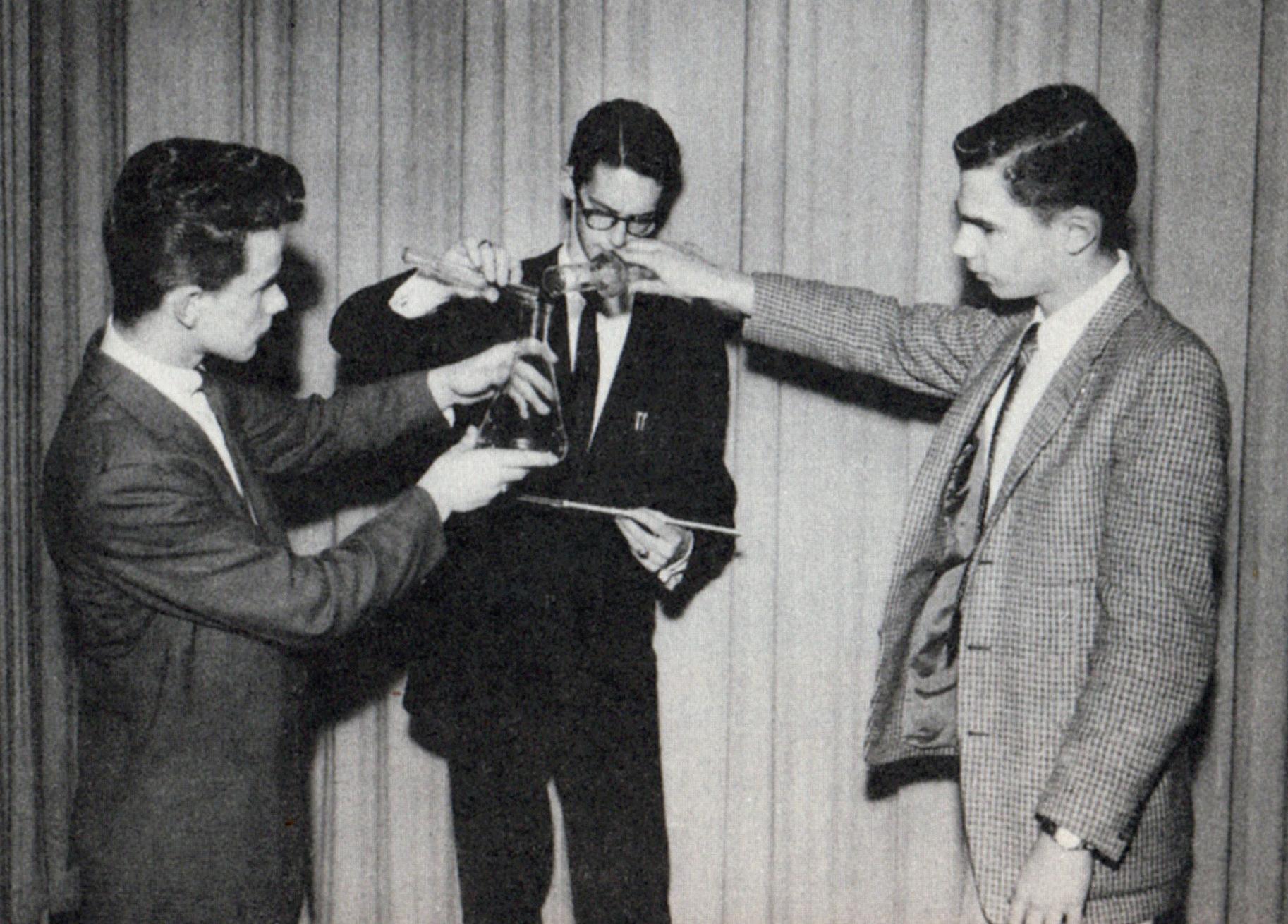
LEFT: Cushing’s 1957 Science Club Officers: Makinen (President), Peter Kahn ’57 (Vice President), Ted Faust ’57 (Secretary-Treasurer) ABOVE: Makinen as a fourth-year medical student at the University of Pennsylvania.

“I began to see kids from other parts of the United States and the world with their own national and ethnic pride. It just changed my understanding of the rest of the world.”
—Marvin Makinen ’57
in the East claiming that certain ‘Western’ scientific concepts, e.g., the entropic death of the universe, were wrong.”
During a break between semesters, Makinen lived with a distant cousin in Helsinki. While he initially had wanted to join a group of students skiing in Lapland, no spots were available. His cousin pointed out an advertisement for a two-week guided tour of Moscow and Leningrad, resulting instead in Makinen’s first, uneventful, trip to the Soviet Union.
After returning to the Free University of Berlin, Makinen buckled down to continue his studies. But U.S. military officials became aware of his trip to the Soviet Union, and one day he received a telephone call, suggesting they meet at a nearby coffee shop.
Two men came to meet Makinen. After preliminary talk, the men asked Makinen whether he, posing as a studenttourist, would be willing to follow a route by automobile in the Soviet Union, which was recently opened to tourists, making observations and taking photographs of railroad and military vehicle traffic, transmission towers, and similar objects.
Makinen agreed without hesitation. He admits that he was naïve, but he felt the request mattered: “In Berlin, I experienced on a daily basis the differences between East and West.” With very limited training, Makinen left in July 1961, driving first through East Germany, Czechoslovakia, and Hungary, and finally into the Ukraine.
In the outskirts of Kiev, a wary Soviet citizen approached him as he took a photograph of a military installation. Makinen was taken into custody and transferred into the KGB interrogation prison. Daily interrogations followed while he was held in solitary confinement for over a month. The films from his camera did not contain typical scenes of ordinary tourist interest, but “fortunately I had no real information from Berlin to reveal,” Makinen recalls. He did not know the true names of the men he worked with in Berlin. For their physical appearance, he stated that he met one of the two men only once and had little memory of his appearance; for the other he described a brother-in-law.
On September 5, 1961, Makinen was charged with espionage and sentenced to eight years loss of freedom, two years to be carried out under “strict regime” in prison and six years in labor camp. In November 1961 he was transferred to Prison No. 2 of the Ministry of Internal Affairs in the city of Vladimir east of Moscow, a notorious prison for political prisoners. Initially Makinen was confined to a cell roughly 8 by 12 feet. His only human contact was with prison personnel. Each day he got a one-hour walk in a guarded court of about 16 x 16 feet with high walls to prevent communication with adjacent courts. His three daily meals generally consisted of watery mashed potatoes, occasionally with a small piece of pork, cabbage salad, or thin fish soup, often with fish eyes floating on top, and half a pound of dark Russian bread. Makinen estimates that he lost approximately 50 pounds during his incarceration. A week after his release, he weighed only 100 pounds.
In January 1962, he was transferred to a cell with a prisoner who knew no English. With only the equivalent of an undergraduate course in Russian under his belt, the move forced Makinen toward proficiency. The prison had a library unusually well-stocked in Russian literature. Over the next year, with the help of a dictionary, Makinen taught himself Russian — beginning with short stories and graduating to full length novels. Eventually he became proficient in both spoken and written Russian.
Makinen’s second cellmate, a Latvian by the name of Kruminsh, had been the only cellmate of Francis Gary Powers, the U-2 pilot shot down flying a mission over the Soviet Union. Makinen told Kruminsh that his former cellmate once mentioned a Swedish prisoner. Kruminsh responded that he had met a Swede but claimed that he did not know details about the person, and said he thought that the person had been involved in intelligence work. However, Kruminsh continued, “He stated that he would be widely recognized for his work when he returned home,” Makinen recalls. Makinen thought this was contradictory: People in intelligence do not get publicly recognized for their work.
Then, in July 1963 after Makinen was transferred to a labor camp, a long-term prisoner, who had himself been in Vladimir, asked about Makinen’s cellmates. When Makinen mentioned Kruminsh, the prisoner burst out, “That SOB! He got to sit with all the foreigners! He sat with you; he sat with Powers; and he sat with the Swedish prisoner Vandenberg!” Makinen did not recognize the significance of that statement, but he tucked it away in his memory. It was a snippet of information that years later would unexpectedly transform Makinen into a human rights crusader.
In October 1963, Makinen and a Catholic priest, Rev. Walter Ciszek, S.J., were released in a prisoner exchange. After catching up with his family and relatives, Makinen returned to Penn in 1964. He continued on to medical school at Penn, during which time he married his wife, Michele, then to New York’s Columbia-Presbyterian Hospital for internship, and finally to the National Institutes of Health as a research associate, where he plunged into research, focusing on protein structure and function.
In 1971, Makinen, accompanied by Michele and their six-week-old son Eric, headed to Oxford University as a postdoctoral fellow in the Laboratory of Molecular Biophysics. “The atmosphere of vibrant science and the cross-section of faculty, students, post-docs, and visiting scientists pushing the envelope of X-ray protein structure analysis provided a rich environment for learning and gaining experience at the forefront of biophysical science,” Makinen recalls.
Makinen’s ambition was to join the faculty of a researchoriented university, and in 1974 he accepted a position at The University of Chicago, known for its strong emphasis on learning and research. Over the following decades, while Makinen pursued research focused on various aspects of protein structure, his main efforts were directed towards the structural basis of enzyme catalytic action, developing methods to stabilize true intermediates of enzyme reactions in solution for structural characterization. His more recent work is directed towards enhancement of the sensitivity of cancer detection by positron emission tomography imaging. Today, Makinen continues his research and teaches an advanced undergraduate course, sharing with students his insights on protein structure and how the structures of enzymes regulate metabolic reactions.
It was a snippet of information that years later would unexpectedly transform Makinen into a human rights crusader.
For nearly two decades after Makinen’s release, it seemed that the time in Vladimir was completely behind him. Then, in 1980, he read an article in the Sunday New York Times, “The Lost Hero of the Holocaust,” about Raoul Wallenberg. A Swedish diplomat in Budapest during the closing months of World War II, Wallenberg is credited with saving tens of thousands of Hungarian Jews from the Nazis. Arrested by Soviet forces in January 1945, he was transferred to Moscow and never heard from again. The Soviet and Russian governments claimed he died of a heart attack in the Lubyanka interrogation prison on July 17, 1947. However, a large number of reports by repatriated prisoners-of-war and other former prisoners have provided statements discrediting that claim.
Suddenly the significance of the name Vandenberg came together for Makinen. He then realized that the Swedish prisoner called Vandenberg must have been Raoul Wallenberg. Although Makinen reported having learned of a Swedish prisoner Vandenberg in 1963 when he was debriefed in Washington, DC, and later in two interviews by the Swedish Embassy, he had never been informed of the true name of the Swedish prisoner. The next day Makinen phoned Wallenberg’s half-brother, Guy von Dardel, a high-energy physicist on sabbatical at Stanford University. Ever since, Makinen has been intimately involved in efforts to clarify the fate of Raoul Wallenberg.
“My experience is key because I had information from three different prisoners, one a former cellmate,” Makinen says. “Most other reports of Wallenberg’s survival are based on unconfirmed hearsay.” In 1990 Makinen was appointed to an international committee without Soviet government association that was given direct access to prisoner files in the Vladimir Prison, where Makinen had been earlier incarcerated. Later Makinen was appointed as a permanent consultant by the Swedish Foreign Office to

the Swedish-Russian Working Group on the Fate of Raoul Wallenberg. All other committee members were associated with either the Swedish or Russian governments.
Throughout the 1990s, Makinen traveled to Moscow three or four times each year, to research Russian prison archives and interview government and prison personnel. In 1993 he discovered an elderly worker in Vladimir who identified Wallenberg from unpublished photographs and connected the time of his incarceration with the death of a well-known Ukrainian nationalist — May 16, 1960. With a colleague, Ari Kaplan, an expert in analytics and database computing, Makinen was permitted by the Russian government to analyze the occupancy of all cells between 1947 and 1972. The cell identified by the elderly worker had no listed occupant for 274 consecutive days including the date of May 16, 1960. “I believe the absence of occupancy documentation in the prison archives for this period of time indicates that records of the prisoner, identified as Wallenberg by the prison staff member, had been removed by Soviet authorities,” Makinen says. After the work of the Swedish-Russian Working Group was terminated with the Russians unwilling to pursue the results of Makinen’s research further, he and Kaplan with another colleague, Susan Mesinai, formed a non-profit group, the Independent Investigation into Raoul Wallenberg’s Fate (www.raoulsfate.org) to continue efforts to uncover the history of Wallenberg’s incarceration. Over this time Makinen also became one of the founding members of the Human Rights Board at The University of Chicago, that now provides an academic undergraduate program for majoring in Human Rights.
Makinen vows to continue to work to clarify the fate of Raoul Wallenberg. “For Wallenberg to have been arrested in Budapest, kept totally incommunicado without any official statement for his arrest and imprisonment, and not be able to communicate with his family for the rest of his life is surely one of the most egregious human rights crimes of the 20th century!” Makinen says. “My continued efforts are to try to uncover his fate.”
For Makinen, who was lucky enough to make it back, it is surely a poignant task. “I have been very fortunate,” Makinen says.
ABOVE: Makinen with assistants helping to search through prisoner registration cards. An estimated 80,000 cards were contained alphabetically in long drawers in the Prison Archives. Each researcher has a long drawer from which prisoner registration cards were hand-selected for further reproduction and analysis. Leftto-right: Guy von Dardel, maternal halfbrother of Raoul Wallenberg; Makinen; Gennadii Kuzovkin; Alexander Papovyan; Nikolai Kostenko; Vitalii Eduardovich, a Russian history teacher in the city of Vladimir; Svetlana Epshtein, a translator, with Susan Mesinai, an independent researcher; Front row on far right: Al’bina Tvuoretskaya, the director of the Prison Archives. Kuzovkin, Papovyan, and Kostenko were members of Memorial Society, which was formed in 1985 as the first human rights organization in the Soviet Union.
Learn more about positron emission tomography, to which Makinen’s research contributes.
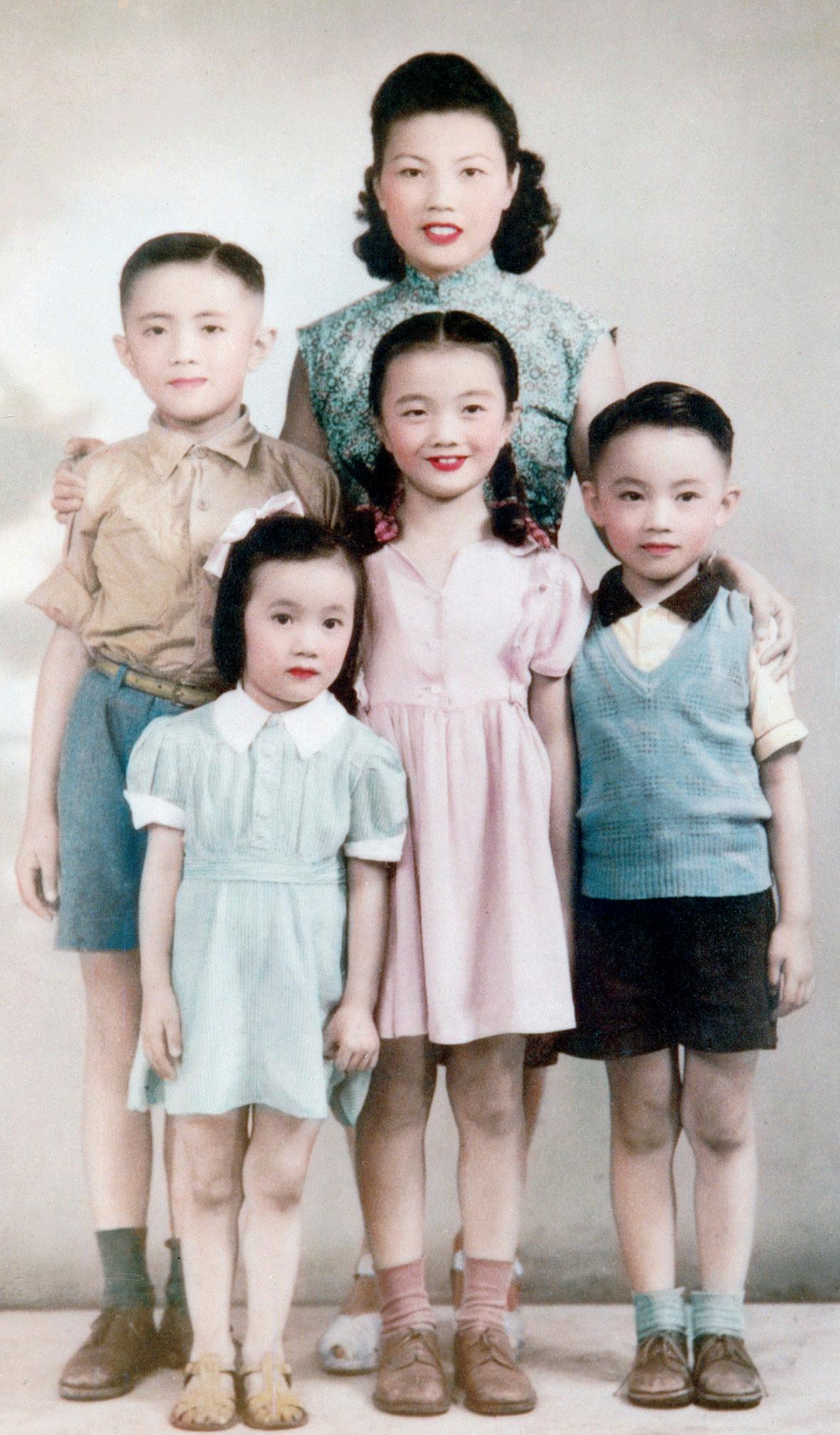
Helena Chen Law ’59 and Herbert Hwa-sen Chen ’60 share the familiar, yet remarkable story of so many immigrants to the United States. They arrived fleeing a difficult situation in their homeland and thrived in this country thanks to hard work, intellectual gifts, the kindness of strangers — and, in their cases, a Cushing education.
Both siblings went on to have their own kind of impact in the world. Law has served immigrant communities in her adopted hometown of St. Louis, welcoming newcomers and offering them support as they get on their feet. Chen made ground-breaking contributions to physics that might have earned him a Nobel Prize if he had not passed away at the age of 45 of leukemia.
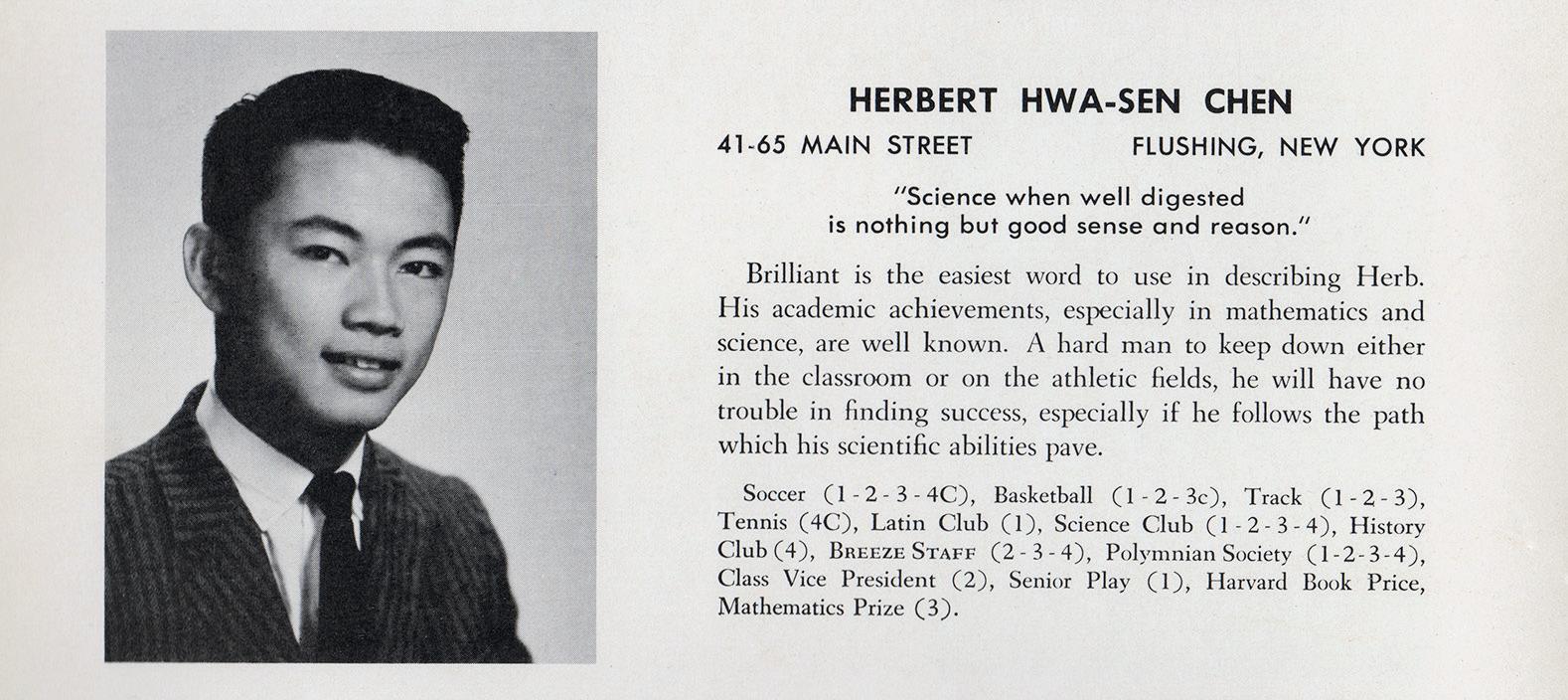
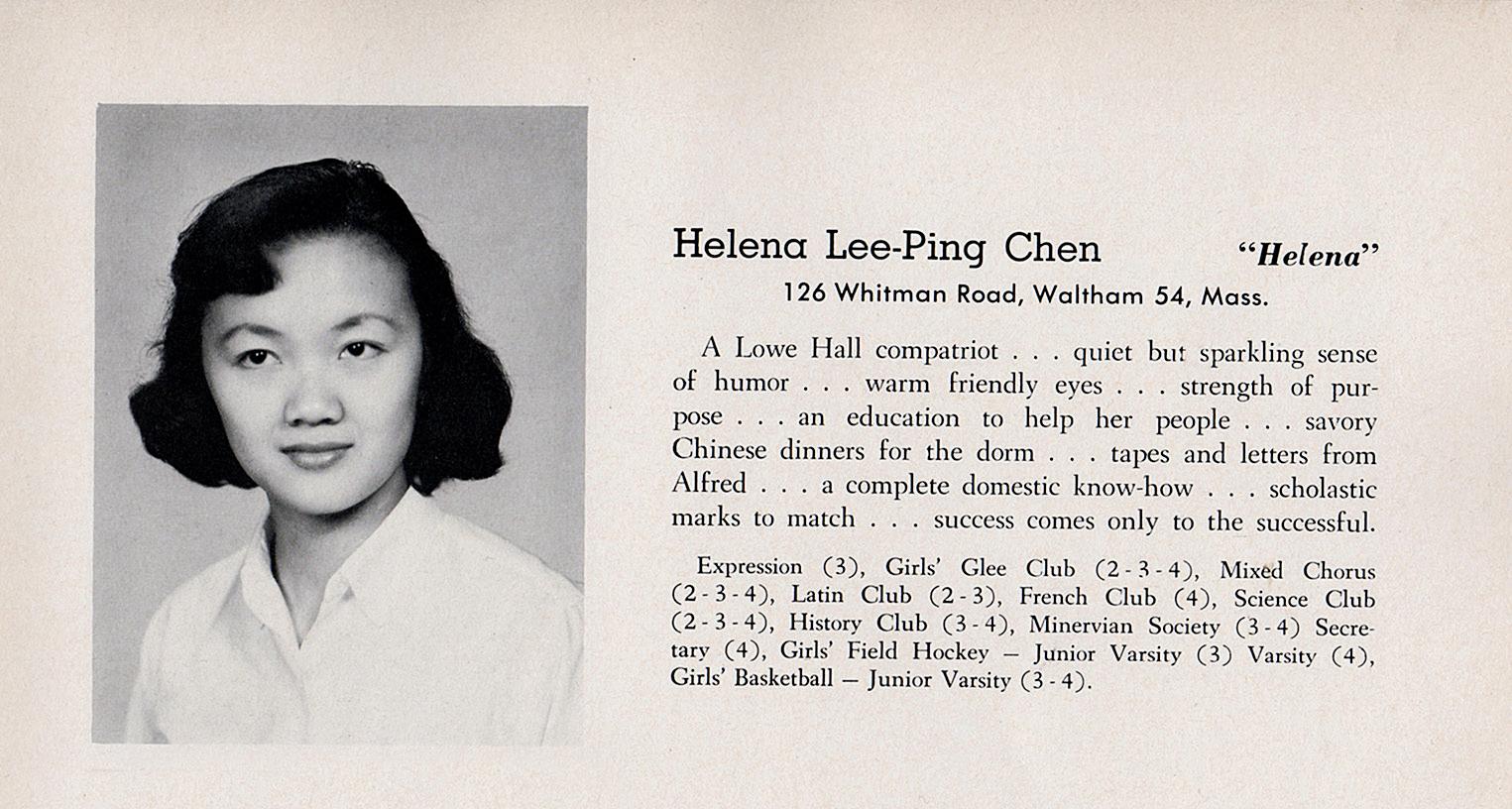
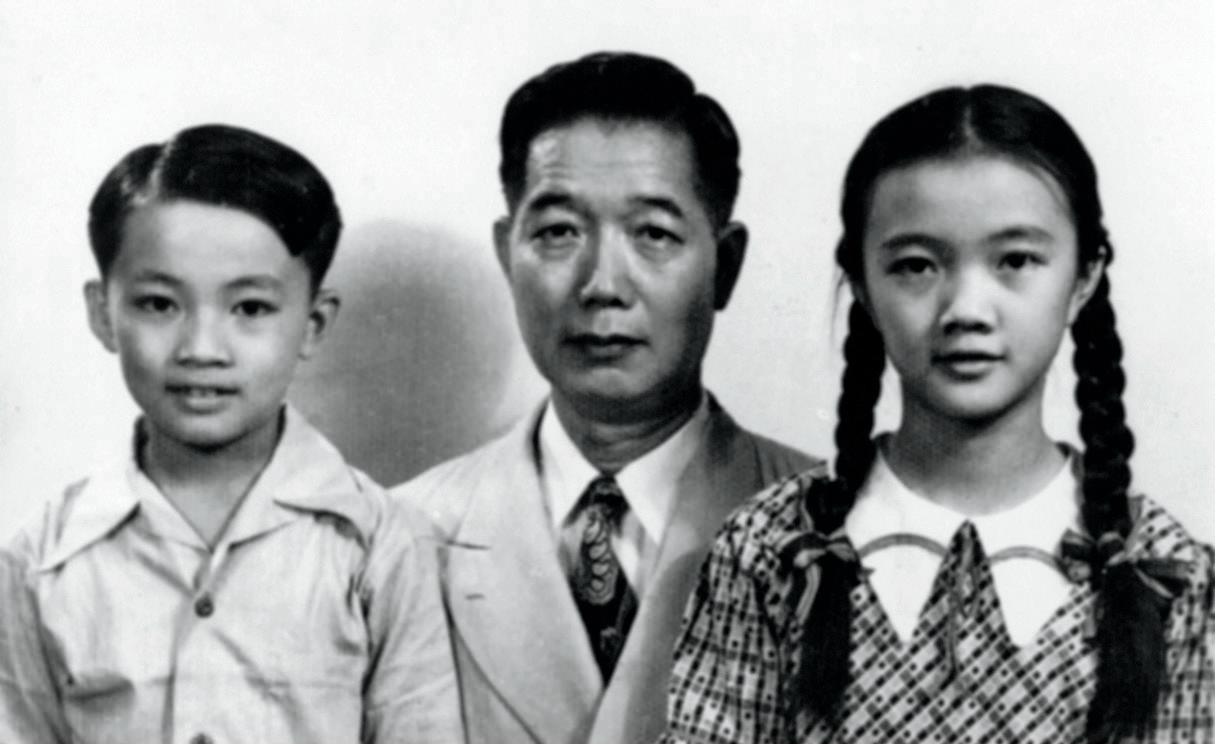
The Chen siblings were born in wartime China in the early 1940s. They were difficult years, filled with constant moves to avoid the invading forces and nighttime air raid sirens as the Chinese first fought against the Japanese and then faced the 1949 Communist revolution. After the Japanese surrendered in 1945, the Chinese Communist Party under the leadership of Mao Zedong took control in 1949, forcing Helena and Herbert to immigrate to Sarawak, a British colony on the island of Borneo, with their great-uncle. In 1955 the family was, Law says, among the first from Southeast Asia to arrive in the United States thanks to the Eisenhower Refugee Relief Act of 1953.
At their new home on Long Island, the children’s great-aunt and uncle were surprised by the dearth of homework young people were assigned in the local schools. Helena and Herbert finished quickly and turned on the TV — then a new technology in most American homes. Concerned that they weren’t learning enough, their guardians looked at boarding schools. They specifically wanted a coed option where the siblings could stay together, a rarity in those days. That brought them to Cushing, which provided generous financial aid for these students who left almost everything behind in China.
Law remembers feeling lonely at first, still new to learning English and eager to keep her grades strong. But she was quickly accepted and eventually became a campus guide, showing prospective families around and playing sports, including field hockey. She has fond memories of climbing Mount Monadnock on Mountain Day in the fall. “I loved that annual all-school outing,” she says.
Herbert Chen’s focus was always academics. Law remembers that if his teachers at Cushing were out — to attend a conference, for example — they would tell the substitute that Herbert would be able to lead the class in
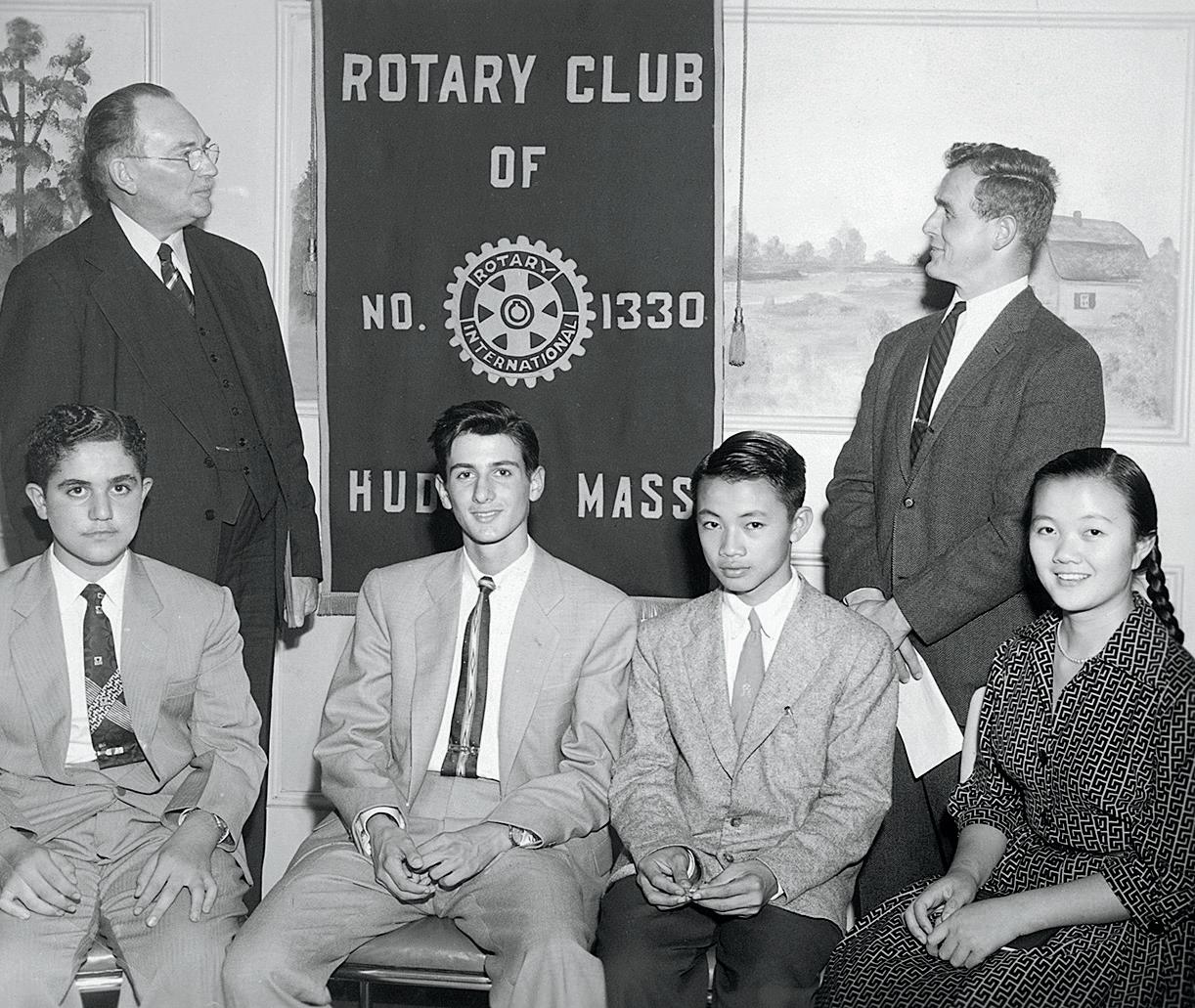
TO RIGHT: A colorized photo of Helena and Herbert Chen with their mother and siblings • Cushing yearbook entries. • An immigration photo of the siblings with the great-uncle who formally adopted them. • A photo from a Cushing newsletter of the siblings at a local Rotary Club meeting.
their absence. While they lived in Borneo, before immigrating to the United States, Herbert read an encyclopedia which he remembered precise details from years later. “He just had a photographic memory,” she says. As a junior at Cushing, he won Rensselaer Polytechnic Institute’s Rensselaer Medal in recognition of “outstanding proficiency in high school science and mathematics.” He went on to study physics at the California Institute of Technology where he won a prestigious Alfred P. Sloan fellowship.
Chen then continued on to Princeton University to finish his Ph.D. After graduating he landed at the University of California at Irvine — then a young school — where he would shift from a theoretical physicist to someone whose experiments would go on to make a significant impact in the field.
Meanwhile, Law won a two-year scholarship to attend Pine Manor College in Massachusetts. Shen then completed her education at Michigan State University, majoring in French, Physical Science, and Education. She met her husband, Harold Law at an international Christian conference in Urbana, Illinois in 1961. The couple married in 1963 and moved to St. Louis, Missouri, where she began her teaching career in a still-segregated public school.
As Law raised a growing family, she felt pulled to help those who, like her, were arriving in a new country. Through her church, the St. Louis Chinese Gospel Church, she has volunteered, assisting with communication needs, spiritual counseling, housing needs, banking services, transportation needs, job-searching, medical services, translation services, and friendships, especially for the Vietnamese, the city’s largest immigrant group. “We sympathize. We reach out to people who are new arrivals. It is not easy,” she says. “They come usually with small bags or a tiny suitcase of belongings. They may have a few dollars or nothing at all — and they have to learn a skill and find a job to earn some money. For many middle-aged immigrants, learning a completely new language is just too difficult as they work at earning enough

for the family to live on. Many of them just forsake learning the difficult American language themselves right away. They depend on their children or new friends who know more English than they do and who are willing to translate for them in different situations until they slowly learn to communicate on their own.”
“I think when you have been an immigrant, you know about the most difficult hurdle of language learning and how to build a social connection with people,” she continues. “A lot of Americans understand all the difficulties immigrants have adjusting because they themselves come from immigrant backgrounds, only one or two generations ago themselves. They are very eager to help. The city of St. Louis has been very welcoming to immigrants for many years.”
From his home in California, Chen would tell Law, “I study about energy in this universe.” His work was specifically related to the detection and oscillation of solar neutrinos.
“Of all the schools and institutions I’ve attended — there were 10 in all — Cushing is my top selection. Of course I got a very good education, but you also learn other things, like good sportsmanship, how to get along with other people, be honest, and always be responsible. There are many important things you need to learn when you are young and in high school.”
—Helena Chen Law ’59
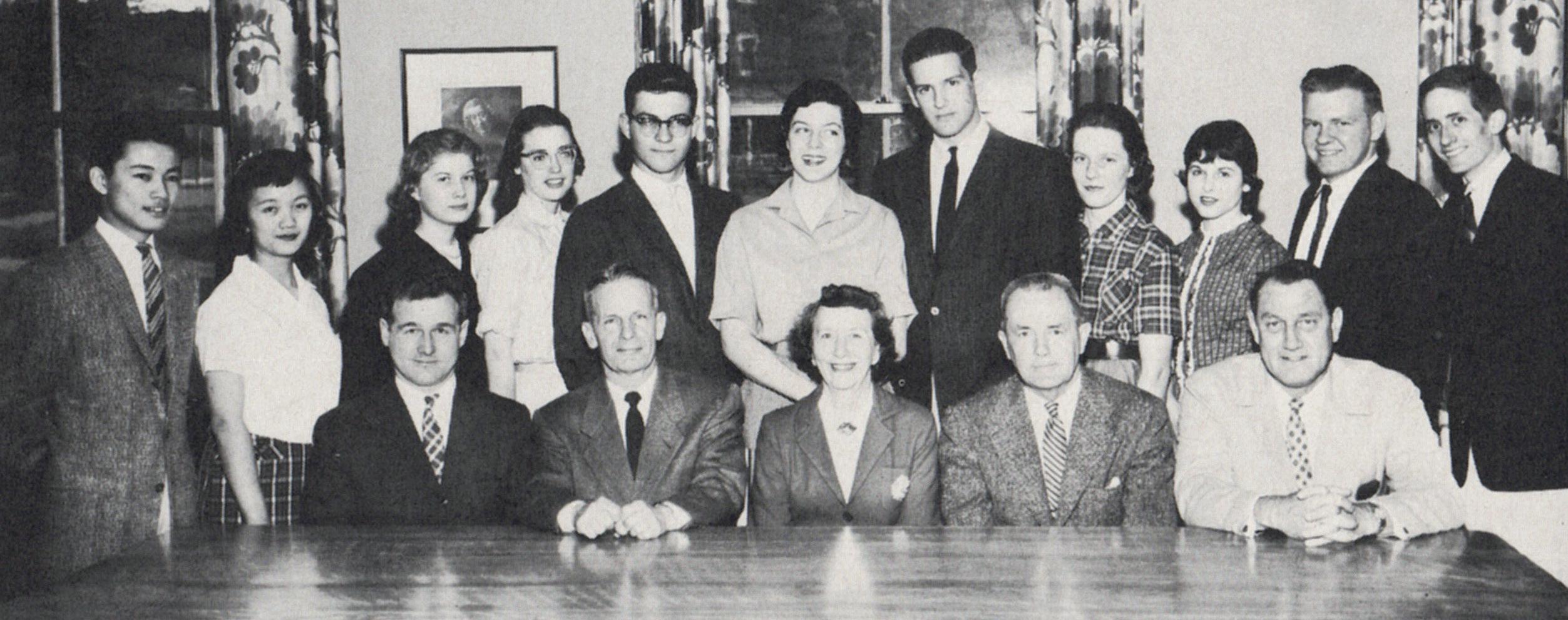
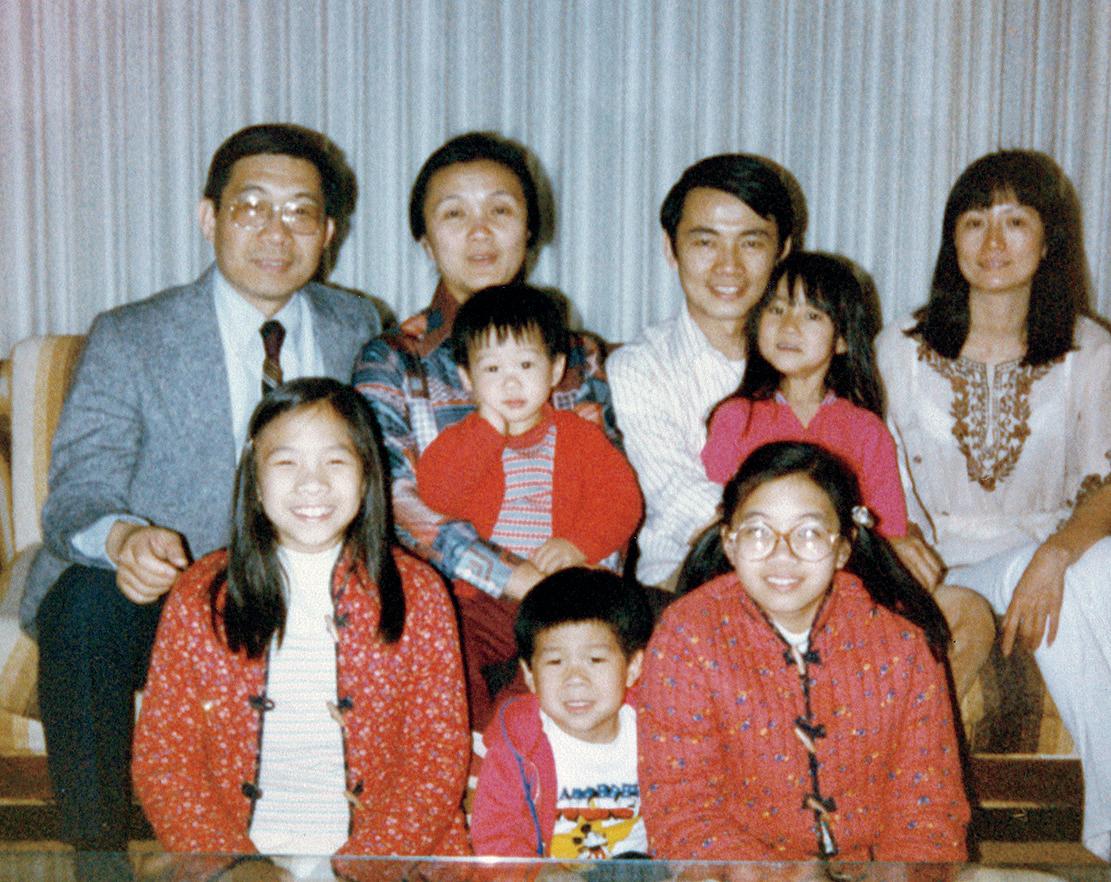
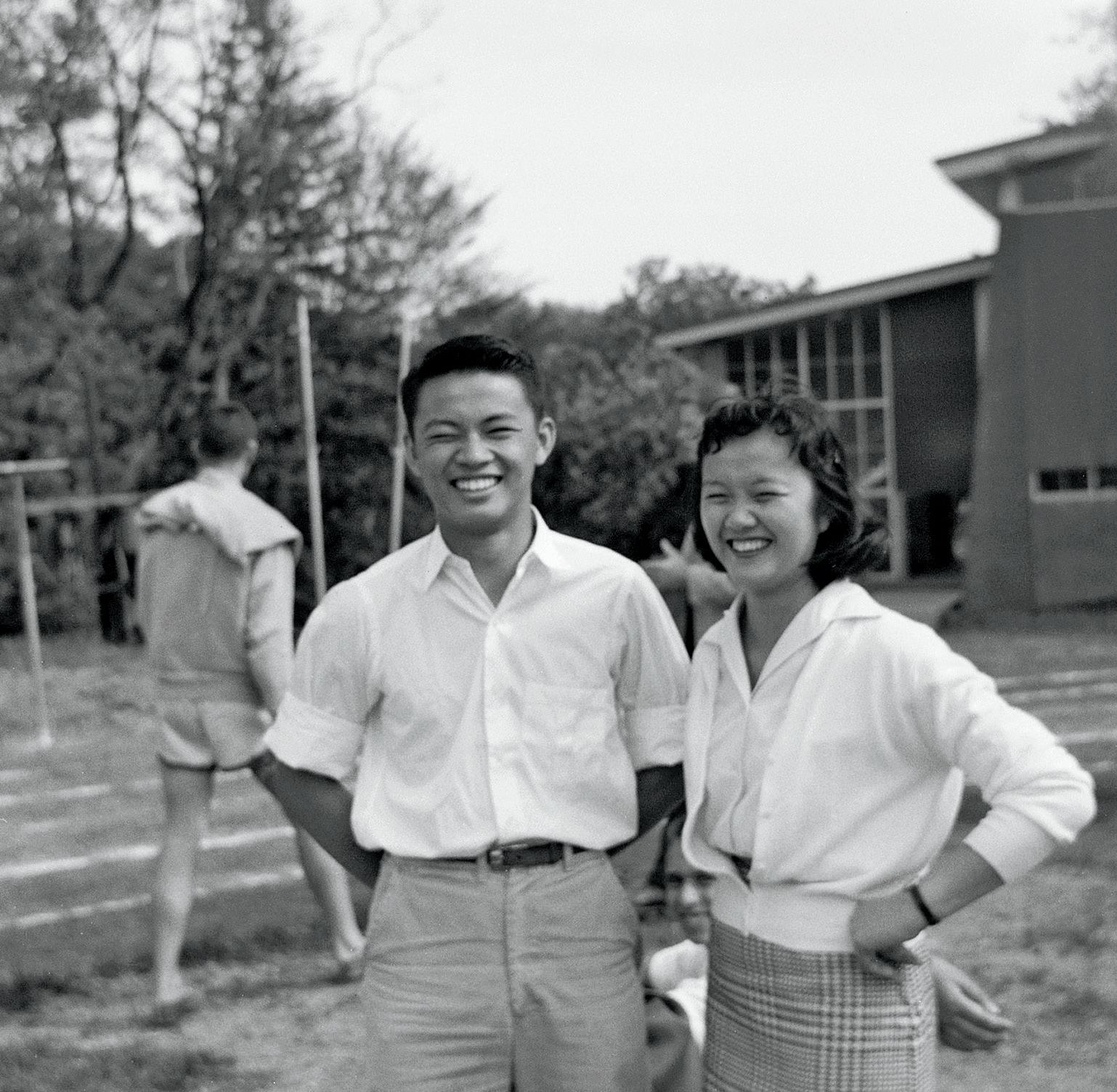
Chen suggested that they might use heavy water as a detector for solar neutrinos.
“The thing that my dad got very well known for, that in retrospect people think about him for, is the founding of what’s called the Sudbury Neutrino Observatory,” says Chen’s daughter, Christine Chen. Through this collaboration, Chen’s experiments using the heavy water “added to our fundamental understanding of basic physics,” says Christine.
Christine says her father’s colleagues believe that he would have won the Nobel Prize if he had lived to see that project come to fruition because he made key contributions. In particular, Chen wrote a seminal, single author paper pointing out that a heavy water Cerenkov detector could be built to resolve the solar neutrino problem. In addition, he founded the Canadian-American collaboration that carried out the project. He recognized early on that the project required Canadian collaboration because the Canadians had the heavy water needed to carry out the project. “There’s a funny story about my dad calling Atomic Energy of Canada to ask to ‘borrow’ the heavy water and being very surprised that they didn’t say no right away and were actually interested in working together! In today’s dollars, that heavy water is worth — $300 million!” Christine says.
Herbert Chen died in November 1987, but his work moved the field forward in a significant way. In 2015, physicist Arthur B. McDonald, whom Chen chose as his successor to lead the project and passed his knowledge on to the summer before his
death, shared the Nobel Prize in Physics “for the discovery of neutrino oscillations, which shows that neutrinos have mass.”
Beyond his legacy to his field, his colleagues remembered someone who cared for others. In his obituary from UC Irvine, they wrote, “His concern for his students was legendary (as were the standards he set for them!). In spite of a hectic schedule he would find the time to explain a problem, listen to a question or create a new opportunity, the hardships of his early life perhaps making clear the value of such opportunities offered to others.” Law honored her brother after his death by endowing an annual prize in his name for a student who shows academic excellence and makes an outstanding contribution to Cushing Academy. The UC Irvine Physics Department also has an outstanding junior award that they give out each year called the Herbert H. Chen Award.
“Of all the schools and institutions I’ve attended — there were 10 in all — Cushing is my top selection.” says Law.
“Of course I got a very good education, but you also learn other things, like good sportsmanship, how to get along with other people, be honest, and always be responsible. There are many important things you need to learn when you are young and in high school.”
Even one piece she remembers not liking when she was a student — the strictness of house mothers — she appreciates now. “It was great,” Law says, “because if they’re not strict, you do not turn out so good.” It seems safe to say that the house parents did their work well with the Chens.
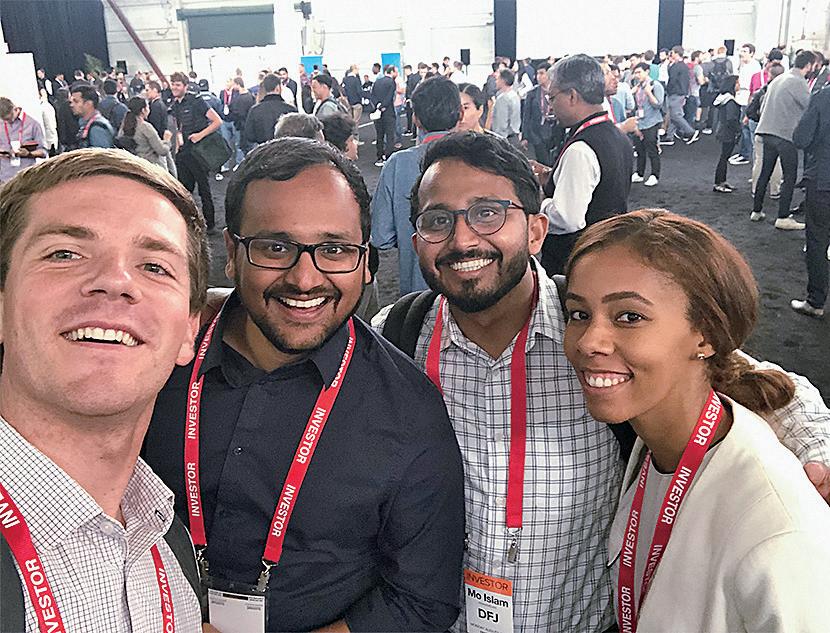
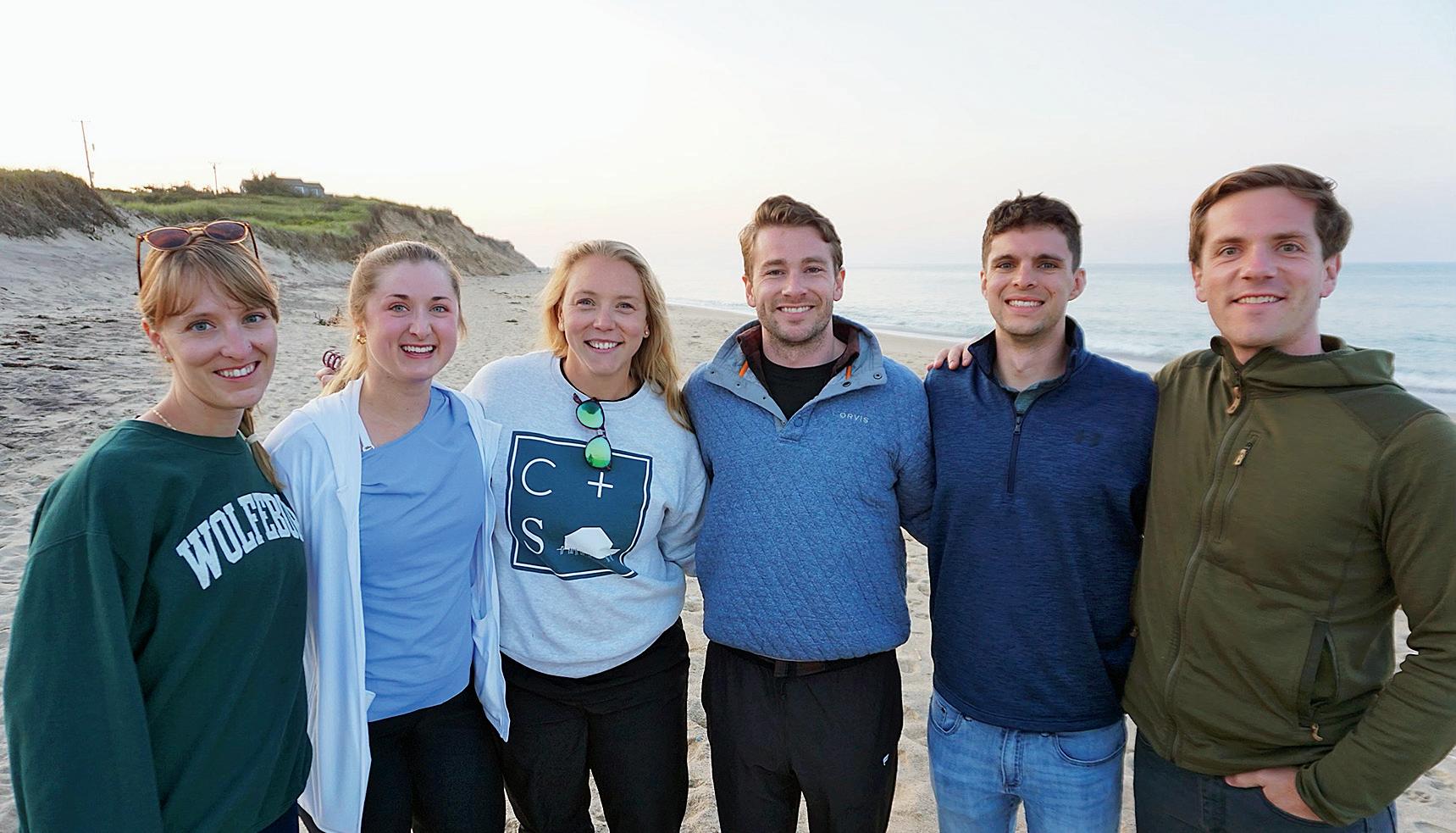
Barely a dozen years since graduating from Cushing, Patrick Despres-Gallagher ’10 has already had his fingers in a Silicon Valley tech success story. That firm, Loom, experienced 35x revenue growth and 13x user growth while he was a product manager and was recently sold to Atlassian for $975 million. He views his intellectual journey story as one of having been planted at Cushing among challenging teachers and an amazing community, giving him the opportunity to dig deep and truly thrive.
Gallagher’s first exposure to Cushing came at 8 or 9 years old. The young guitarist and his father would play music for services at St. Denis, right next to campus, and then pop over to watch future NHL athlete Chris Bourque ’04 play hockey at Cushing.
Learning came naturally to Gallagher, and he knew the local public schools might not provide the challenge that would serve him best. Without telling his parents, whom he knew worried about the cost, he applied to Cushing Academy. When the acceptance arrived, he came clean. With the help of generous scholarships and financial aid, he was able to attend. “It was an amazing opportunity,” he says.
At Cushing, he was nurtured and pushed. “It’s such a special place,” Gallagher says. “I think the biggest thing — it’s very hard to describe, but I think especially at Cushing, it’s the integrated nature of the community. Your advisors are your teachers and your coaches and your dorm parents. It’s a very interesting dynamic. It’s a place where people come of age, right?”
“It was a place where I felt very cared for by everyone. As a result of that care and that community, it felt safe to explore and learn,” he continues. “When I look back at Cushing, I think of these wonderful teachers with Ph.Ds., who decided to teach at this high school in a sleepy town in rural Massachusetts. I had never been exposed to people like that. It created a sense of inspiration and safety which allowed me to be more myself, and it showed me that those paths were available to me. I wanted to be more curious. I wanted to be more intellectually stimulated.”
He dove into everything. AP math, literature, physics, music theory. He relished the chance for expansive learning. Taking Peter Clarke’s religion class prompted him to later take Buddhism and comparative religion classes in college.
“It opened my eyes,” Gallagher says. “I think that’s part of being the first coed boarding school in New England and getting exposed to a highly international student body. It’s hard to not run into different ideas, different beliefs, different people.”
Outside of class, Gallagher got further into music, playing in the jazz ensemble and the pit orchestra for musicals, taking digital audio engineering classes, and serving as president of the Cushing Academy Music Association, which ran on-campus coffee houses and a battle of the bands tied into dorm competitions. He went on to receive the Harvard Book Prize his junior year and the Webster Moulton 1944 Award his senior year.
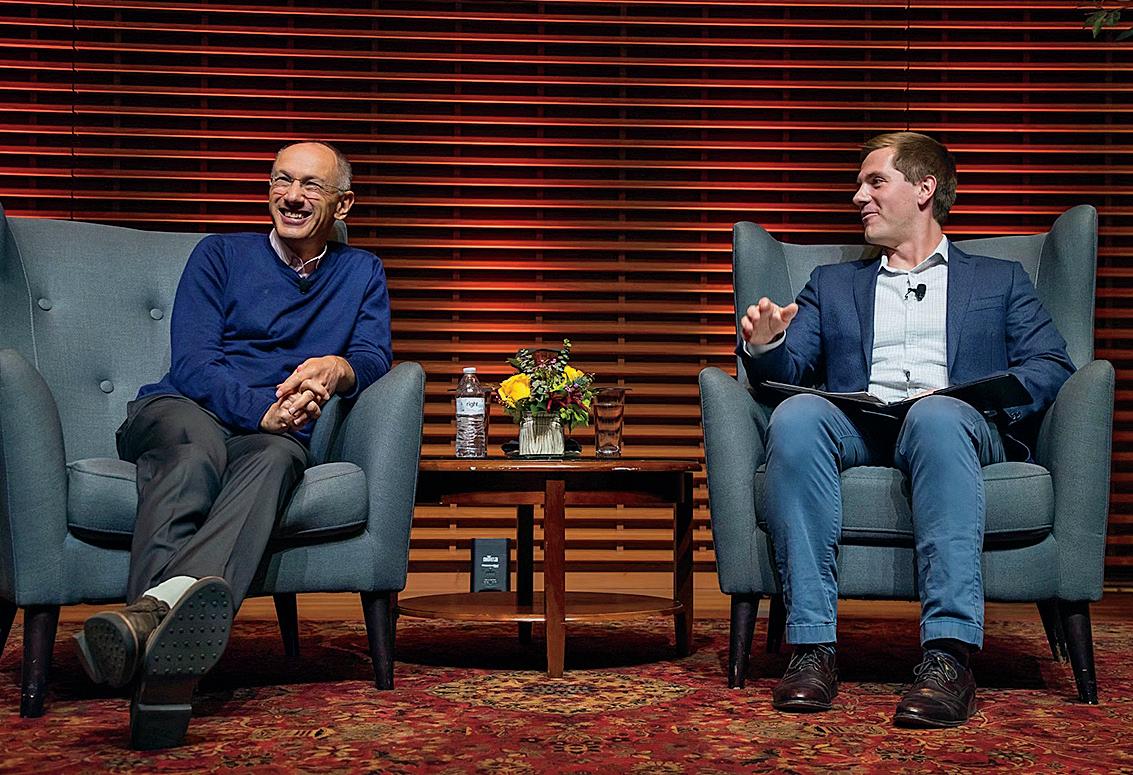
Encouraged by his English teacher Raja Bala to spread his wings beyond New England, Gallagher landed at Johns Hopkins University for college, where he focused on international studies, picturing a future in the foreign service. But he gradually shifted his focus to technology start-ups and entrepreneurship. After graduation he landed at Deloitte Digital, doing both management consulting and what was cutting-edge tech transformation work, involving a complete overhaul of an organization’s technology systems — hardware, software, people, and processes. He joined the fledgling practice when it was 20 people, and he helped grow it into one of the largest in Deloitte, winning hundreds of millions of dollars in new business.
From there, he jumped to the place that made the most sense for an aspiring tech entrepreneur: Stanford’s Graduate School of Business. “I just figured getting out to Silicon Valley in 2017 makes sense,” Gallagher recalls. “I’m going to learn a lot. I’m going to meet a ton of interesting people. I’m going to get a great education, to continue my intellectual journey that I started at Cushing.”
At Stanford, Gallagher knew he could focus primarily on learning inside the classroom or outside. He picked the latter, cold emailing his way into a technology investing job at the family office of the former Cofounder & CEO of a successful software company that sold for $3.6 billion. In this role, he learned about investing in and building software companies. “I got an MBA while getting an MBA, is the way I would describe it,” he says.
In 2020, he became an early product manager at the video communication software company Loom, making a big impact on product development and leading key partnerships. The company grew from about 60 employees when Gallagher joined to around 275 in just under two years. “It was the crazy Silicon Valley experience everyone dreams about, and I was lucky to be along for the ride.”
Inspired by his time at Loom, Gallagher decided to co-found his own software company in October 2021 called Stage, eventually raising $5.1 million in funding for the venture. “Stage was focused on enabling subscription
LEFT TO RIGHT: With colleagues at Y Combinator Summer 2019 Demo Day (Early-Stage Investing for the family office). From left: Gallagher, Madhu Yalamarthi (founder of Modak, former GGV Capital), Mohammad Islam (Threshold Ventures), Mercedes Bent (Lightspeed Venture Partners) • Annual trip with fellow Cushing alumni to Cape Cod, 2023. From left: MaryCate Farwell ’10, Erika (Goodale) Howlett ’10, Kara (Garland) Hodgson ’10, Matt Tierney ’10, Zach Woolever ’10, and Gallagher • Interviewing Michael Moritz, Managing Partner of Sequoia Capital, for View from the Top Speaker Series at Stanford Graduate School of Business, 2019.
billing automation and experimentation. We handled the complex infrastructure needed to bill customers appropriately. It’s a hard problem,” Gallagher says.
In 2023, Gallagher moved on from Stage and started an advising business, PDG Ventures, where he helped startup founders with product and pricing challenges. He found himself stepping back to reflect on what the next move should be, asking the deep questions Raja Bala encouraged him to ask back at Cushing. “I was lucky to have all of these just incredible experiences, and I really felt like in each of them, I had gone very deep and done well enough,” Gallagher says. “But what are you contributing? What are you giving back to the world given all of these amazing experiences?”
“What I want is similar to what I’ve always wanted,” he continues, “which is meaningful relationships and the chance to work with inspiring people on inspiring problems. Ideally, I own some of the upside if I can help solve those problems, but the journey is what matters to me. I’m really taking my time to find the mission that I can invest the next 10+ years into.”
By late winter, Gallagher turned his eyes in a new direction — building a new company in multimedia and music — his early love. Aware of the industry challenges, he still sees an opportunity to empower artists and creators with better tools, support, and financing.
In the in-between time, Gallagher found himself turning back to his Cushing roots. He drove through Bay Area rushhour traffic to watch an old classmate Mike Garrity ’10 lead a high school football squad he coaches to an underdog win in a league championship game. He took an annual trip to Cape Cod with a group of his closest friends from Cushing, continuing to cultivate that community, the relationships with those people.
“When I reflect on Cushing, I think about just what an amazing place it is to learn, and what a wonderful community of people to be around,” he says. “It all comes back to that same innate energy and flow and curiosity Cushing cultivated in me, and I am grateful for it.”
Human Rights Watch calls North Korea “one of the most repressive countries in the world.” The authoritarian regime bans independent media, free speech, and even free travel. The population is impoverished and malnourished. The government demands unpaid labor from many citizens and sends those who disagree to prison camps. Border guards are told to shoot anyone who tries to leave without permission. And because North Korea is so secretive and closed off, no pictures of what is happening exist, and there is nothing to fill newsfeeds to make people call for change.
But a handful of scholars are working for awareness and intervention. At the center of the fight to make sure the world is paying attention is Cushing graduate Dr. Jung-Hoon Lee ’80, who points to his time at Cushing as pivotal in teaching him to appreciate and thrive in a diverse setting.
Lee arrived at Cushing as a sophomore in 1977, along with his sister, Chung-Eun Lee ’78. The siblings already had a very international life. Their father was a South Korean statesman and foreign minister, holding ambassadorial posts along the way in several countries, which led to their first living overseas in Bern, Switzerland in 1973. Afterwards, Lee and his sister also spent time in Tokyo and Chicago, before enrolling at Cushing Academy.
The attraction to Cushing was that Dr. Woonsang Choi, one of Lee’s father’s fellow South Korean diplomats, and his wife Mrs. Inyung Choi, who was the nurse in the Cushing infirmary, had sent five of their six children through the Academy. That gave the Lees confidence about the school.
A strong student and athlete, Lee thrived at Cushing. “Sometimes I wish I could go back,” he says. “It was great.” He played soccer in the fall, captaining the varsity team in his senior
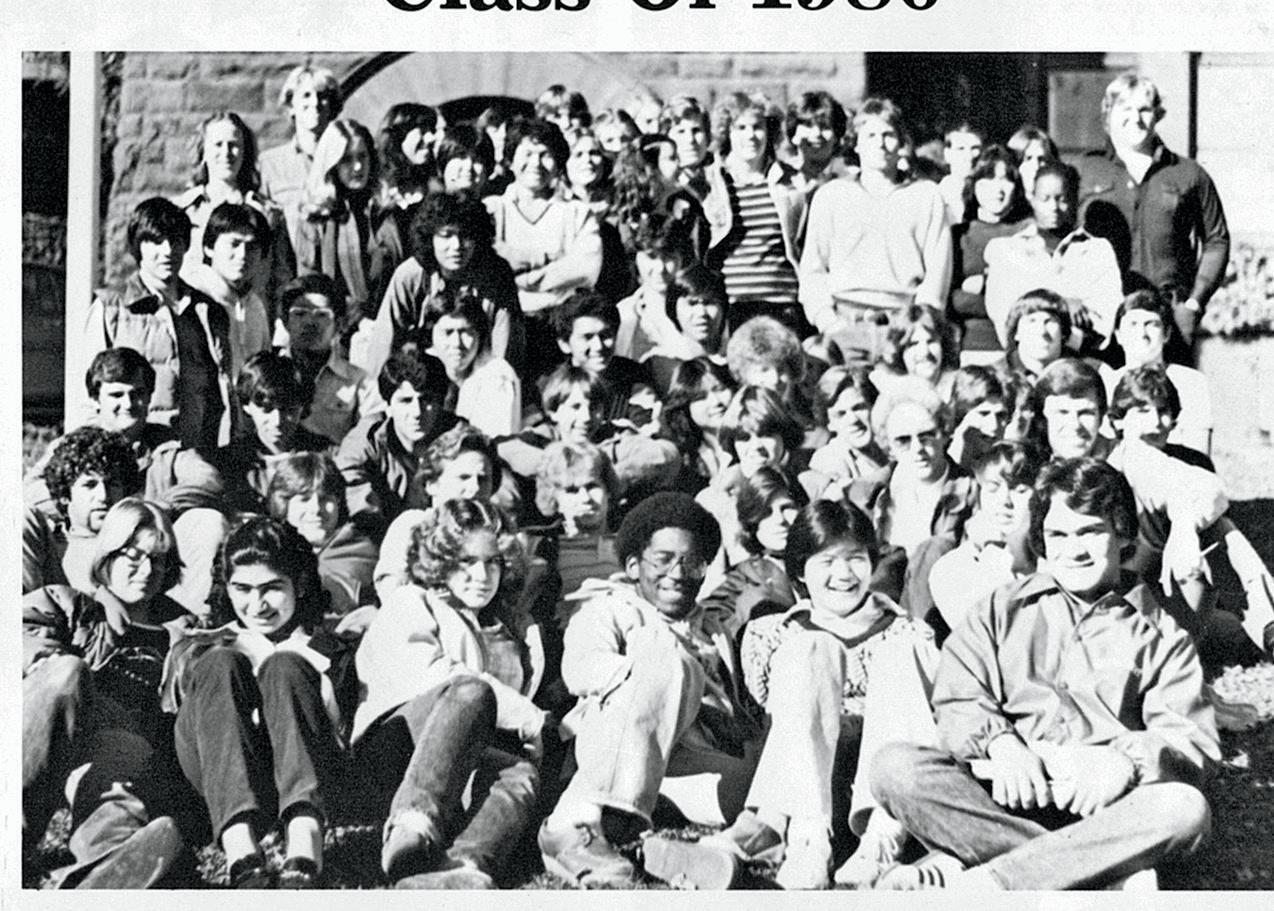
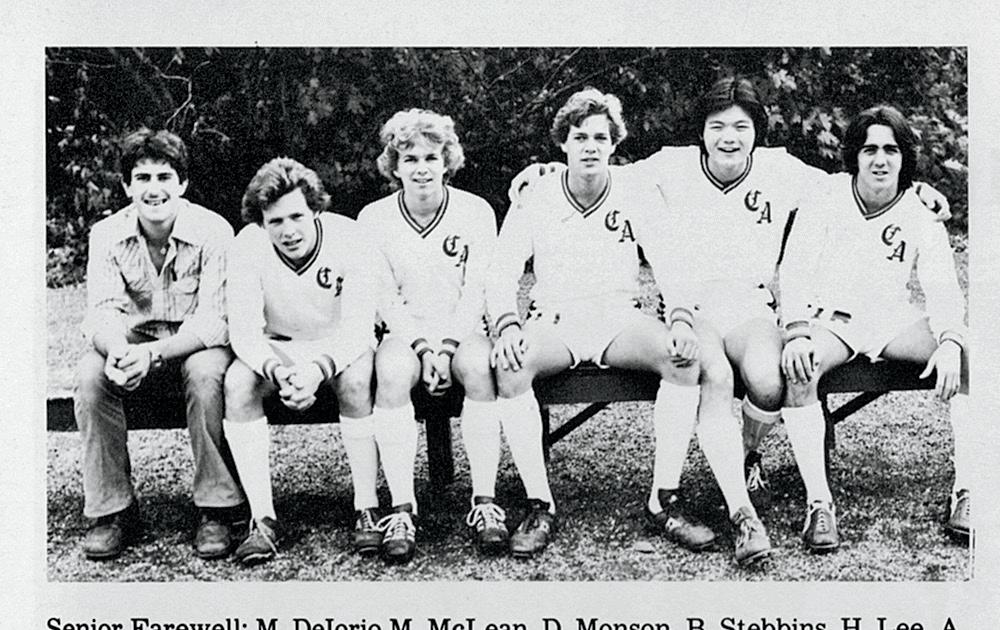
year, was on the varsity ski team for three years in the winter, and played varsity lacrosse in the spring as a starting goalie.
He remembers classmates from Iran, Japan, South Korea, Taiwan, and many countries in Europe and South and Central America. “The international aspect and sports were a big part of Cushing back then, and that worked out very well for me,” Lee says. “That was the best part of Cushing.”
More than 40 years later, Lee can still rattle off the names of teachers who influenced him: Dr. J (Dr. Art Johanningsmeier) in biology, Dr. Norm Carey in English literature, and Mr. Al MacDonell in music. Headmaster Dr. Joseph Curry “was such an imposing figure, a real presence on campus,” Lee recalls. “He really took care of all of us, in particular the international students.”
LEFT TO RIGHT: Lee (front row, second from right) poses with the Class of 1980, as seen in the 1980 yearbook. • Lee (second from right) with fellow seniors on the 1979–80 Varsity Soccer Team. • Lee with former President George W. Bush during his visit as his country’s ambassador for human rights to the Bush Institute in Dallas, Texas in 2014.
After Cushing, Lee attended Tufts University, earning a bachelor’s and then a master’s in international relations at the renowned Fletcher School of Law & Diplomacy. He considered earning a law degree, but decided that his future was in academia. Lee earned his doctorate from the University of Oxford in 1993, and after teaching briefly at the University of California at Berkeley, he returned to South Korea. Lee has spent the rest of his career teaching international relations at Yonsei University in Seoul, one of the country’s most prestigious universities.
Over the last decade, Lee has increasingly focused his attention on North Korean human rights. In 2013 he was named the government’s Ambassador for Human Rights and in 2016 became its inaugural Ambassador-at-Large for North Korean Human Rights. For the past decade, Lee has been globally recognized as one of the staunchest advocates of North Korean human rights.
The biggest thing Lee works to do is simply make people aware of the conditions. “It is the most cocooned society in the world,” he says. “Recently about 600 North Koreans were forcibly sent back to North Korea from China, and they will certainly be persecuted because to leave North Korea is an act against the state, which is punishable by being sent to political prison camps and, in the worst case, execution,” he continues. “There are no pictures or documentaries of what’s going on in that country. That’s a big part of the problem.”
One way that Lee has worked to raise the profile of this challenge is by founding the Sages Group for North Korean Human Rights, bringing together the eight most prominent people working on the topic. One member of the group is Robert King, former U.S. special envoy for North Korean human rights issues at the U.S. Department of State. Their tenure as human rights ambassadors coincided for four years, during which time the two were instrumental in coordinating the United States’ and South Korea’s human rights policy towards North Korea.
One other accomplishment Lee points to was bringing the Office of the United Nations High Commissioner for Human
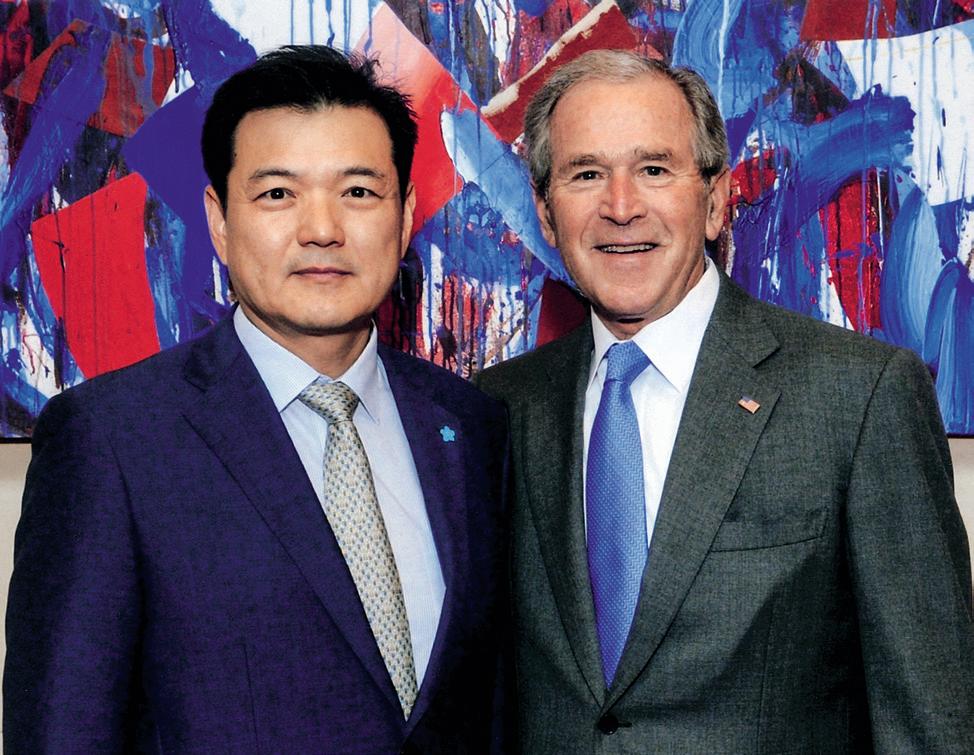
Rights to Seoul rather than to Bangkok, which was originally proposed. Because that work is focused on North Korea, Lee says, hosting it closer made the most sense.
In 2018–2019, during a sabbatical year, Lee brought his efforts back to the United States. He served as senior fellow at the Carr Center for Human Rights Policy, which is part of Harvard University’s John F. Kennedy School of Government. Lee hosted a study group on North Korean human rights and gave lectures and invited guest lecturers on diverse North Korean human rights topics, including the kidnapping of Japanese citizens by North Korea.
When he thinks about his passion for this work and about his time at Cushing, Lee sees a clear connection. “I think my exposure to diversity was great,” he says. “Racism, prejudice, these sorts of things exist because of lack of exposure. You’re afraid of what you don’t know. And you respond immediately with prejudice. That’s something that I really took from my experience, which is the diversity and my ability to adapt, to absorb that diversity, to be a part of it without any barriers.”
Lee also points to the caring environment, which inspired in him a desire to care for others. “We were very close with the teachers,” he says. “We were like a big family.”
He urges his fellow Penguins to pay attention to the crisis in North Korea and to read the United Nations Commission of Inquiry Report that details the findings. “I hope that everyone will try to learn more about it because it is certainly one of the worst human rights violations perpetrated on the face of the earth. We just don’t know enough about it.”
Listen to Lee discussing the tenth anniversary of the United Nations Commission of Inquiry on human rights violations in North Korea.
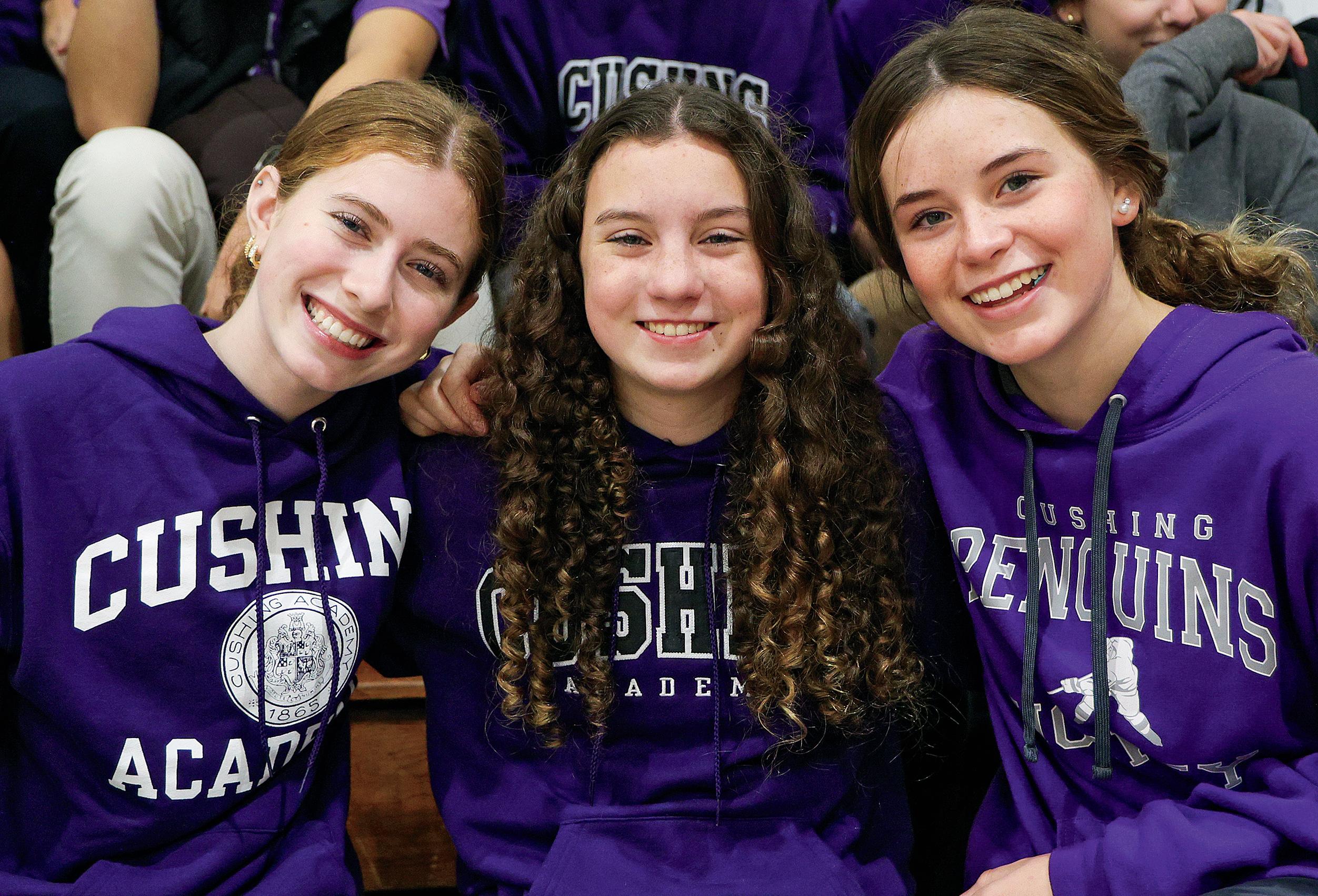
Thomas Parkman Cushing created his legacy when he founded Cushing Academy over 150 years ago. Through his last will and testament, he expressed his desire to establish a school for “rising and future generations.” Because of that gesture, his story lives on in the generations of students that followed, their lives transformed by their education at Cushing.
When you include Cushing Academy in your long-term plans, you add to that story and create your own legacy.
Be a part of our story.
For inquiries and details please contact Greg Pollard, Director of Advancement grpollard@cushing.org or (978) 827-7400 Add your legacy to the
Penguins
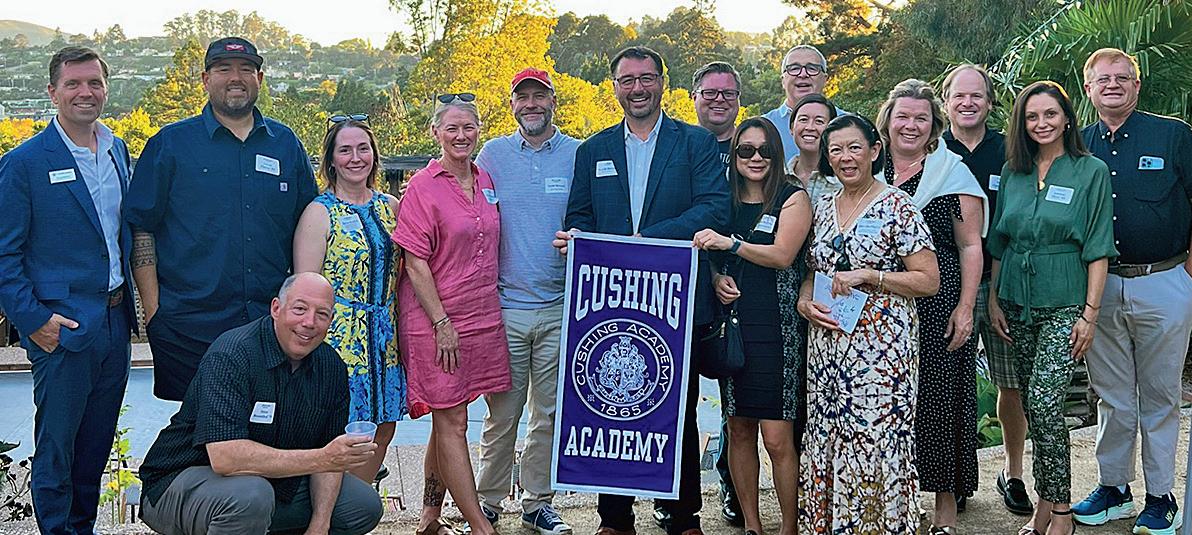

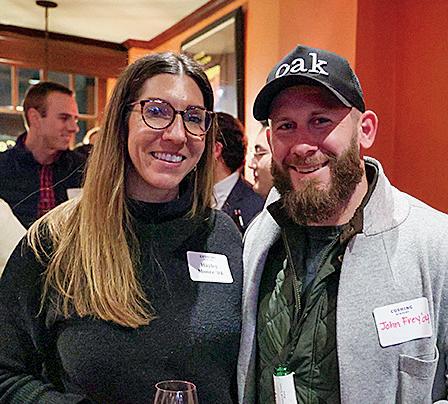
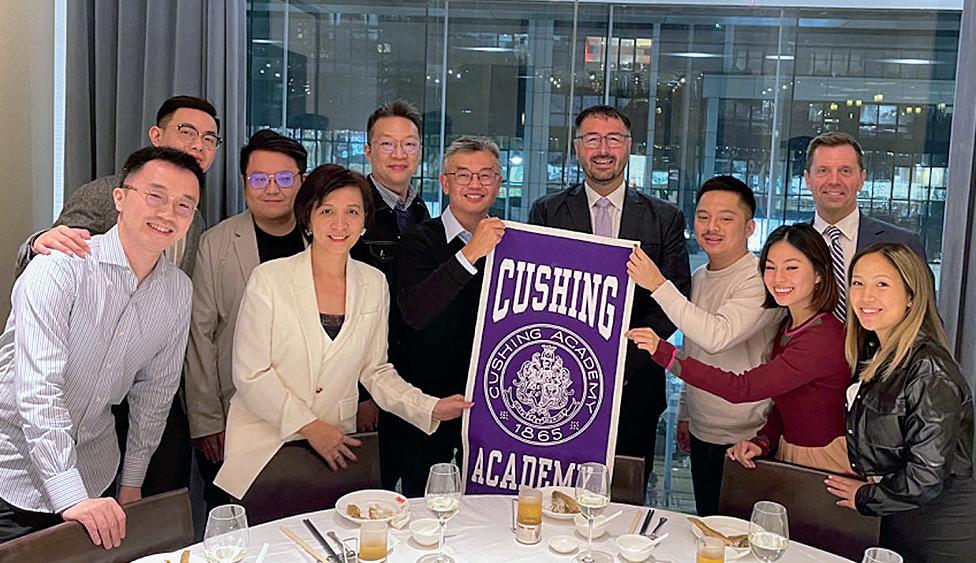
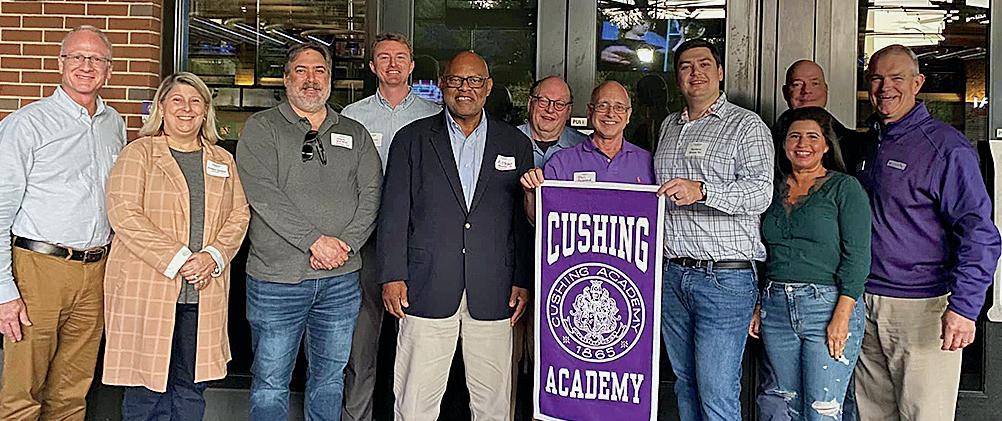


Torrey ’85
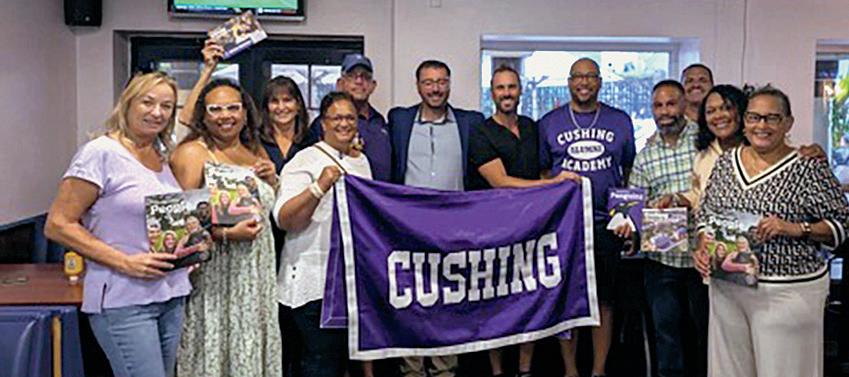
1. San Francisco Reception
October 5, 2023
Hosted by Rhonda Pierce P’99, ’02, Ashlee Pierce Cabeal ’02, Adam Pierce ’99
2. Chicago Reception
October 12, 2023
Hosted by Mariana and Paul Ingersoll P’20
3. Boston Reception
December 5, 2023
4. Atlanta Reception
October 17, 2023
5. Hong Kong Reception and Dinner November 17, 2023
Hosted by Ken Chang ’92, P’22
6. Seoul Reception November 10, 2023
Hosted by the Korean Parents Association: Jungsun Yun P’26, Yunhee Cho P’25, Seung-Min Lee P’24
7. New York City Reception October 24, 2023
8. Bermuda Reception September 30, 2023
Hosted by Esther ’85 and Reed Young P’22, ’24
9. North Shore Reception August 14, 2023
Host Committee: Kim White Sousa ’75, Sandy Vachon Sullivan ’83, Bruce Feldman ’83, Jay Philbin ’96, Keith Emery ’97, Sarah Walsh ’86, P’24, Ellen Harrington ’70, Jamie Marshall P’24

In 1788, one of the first sightings was made in America of a storied family’s coat of arms from England. According to The Genealogy of the Cushing Family by James S. Cushing, the Cushing family’s crest is etched on the tombstone of Lieutenant Governor Thomas Cushing who was buried in the Granary Burying Ground in Boston in 1788.
Today, that same coat of arms is at the heart of the Cushing seal. All official Cushing Academy documents feature the emblem, complete with ornate scrolls and heraldry. Usually shown in purple with white lettering, the emblem connects us back to our early American roots and to England before that.
A coat of arms (sometimes also called a crest or seal) is the design that might be featured on the shield of a medieval knight. A monarch would give a person or family the right to use the coat of arms. The seal features the Cushing family crest, the school name, and the year of its founding.
Thomas Parkman Cushing, a Boston merchant born in Ashburnham, left money in his will earmarked for the establishment of Cushing Academy in 1865. The Cushing family genealogy, first published in 1877, traces the history of descendents of Matthew Cushing, who came to America in 1638. “The Cushings of Norfolk, England, were entitled to bear arms for many successive generations,” the book says. The original was likely “gules an eagle displayed argent.” Gules in heraldry is the color red and argent is the color silver. An eagle, historically would have been considered “king of the birds,” a symbol of power.
The author suggests that the eagle that now is in the crest’s lower right side came first and then, around 1500, the coat of arms was divided into quarters because of a marriage. That is when other features, such as the hands and dice were added into the image. Hands can be interpreted as emblematic of faith, credibility, sincerity, and justice. Dice is historically a symbol of consistency.
Finishing out the seal is the Latin motto “Virtute et Numine.” In English this means “valor and divine aid.” A fun fact is that Westminster School in Connecticut uses the same Latin motto. Their school was also founded by a Cushing descendant.
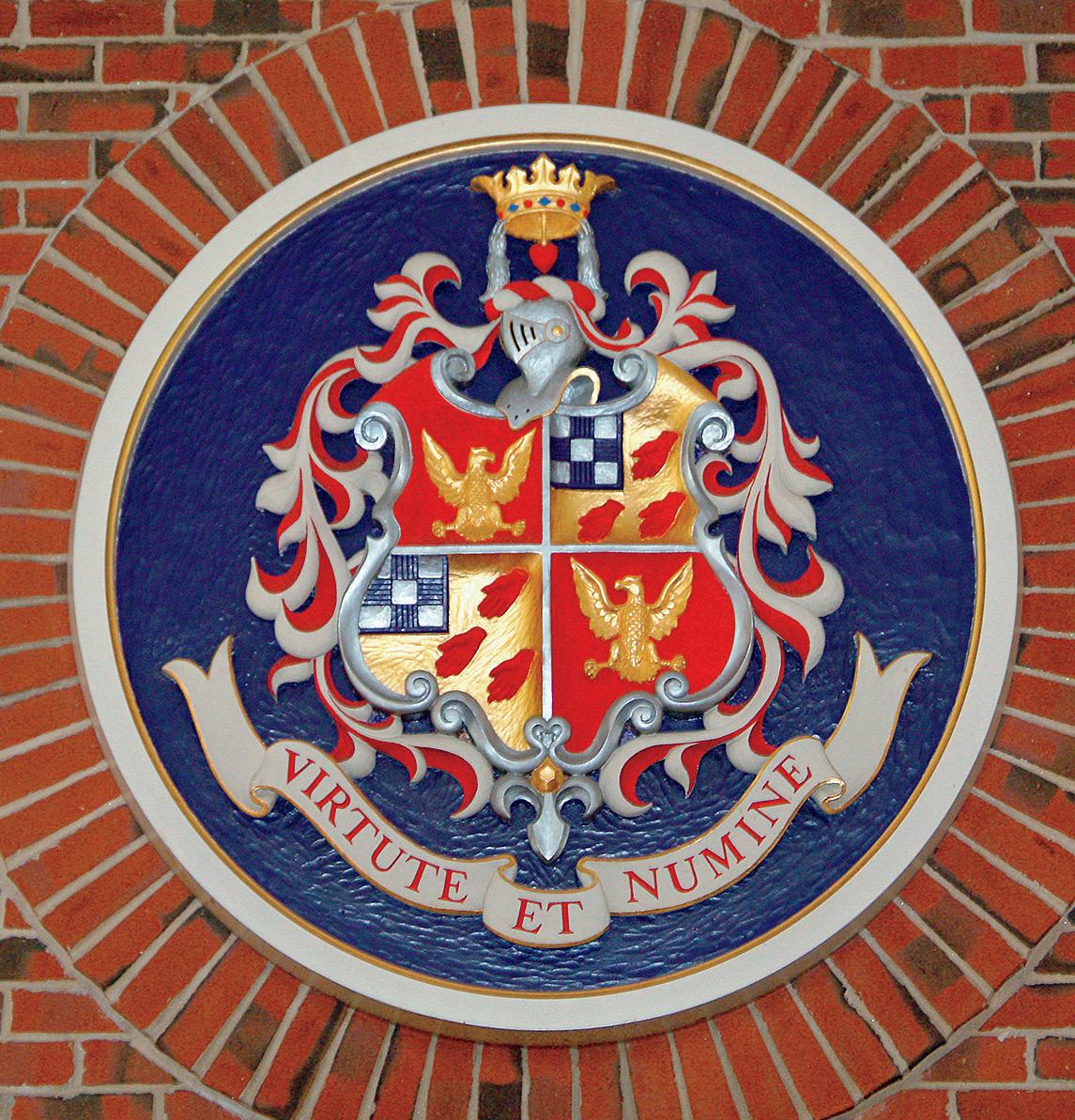
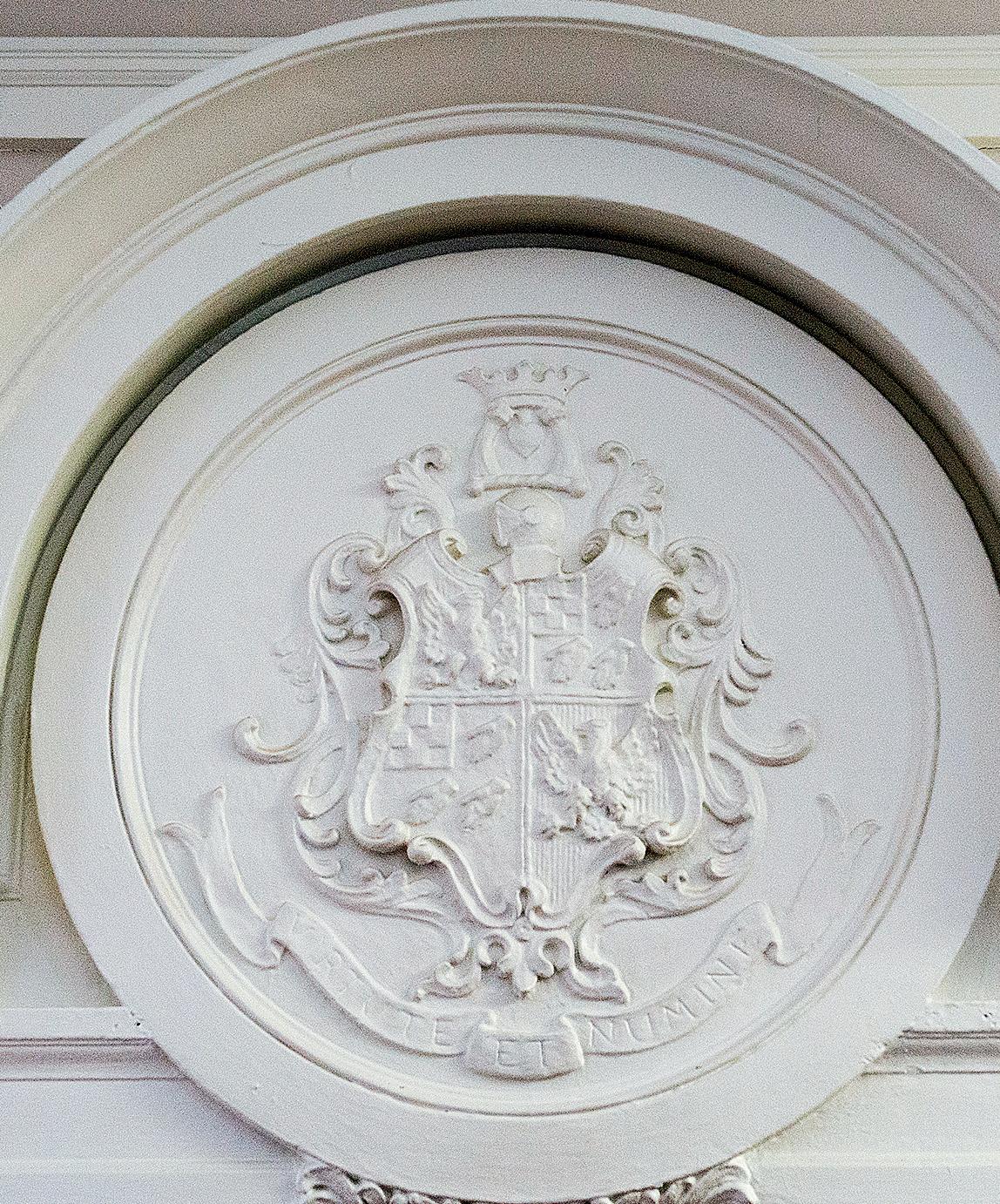
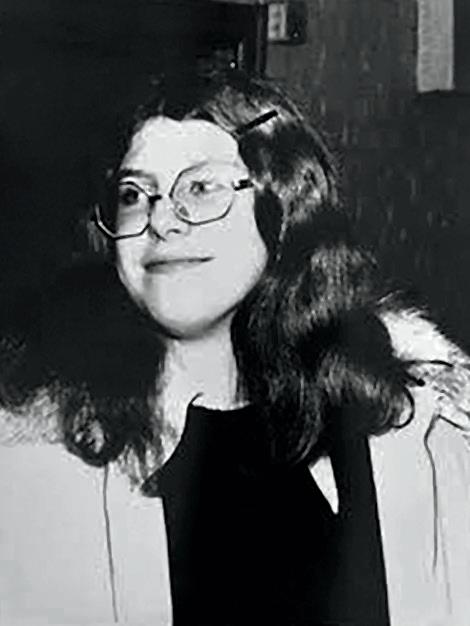
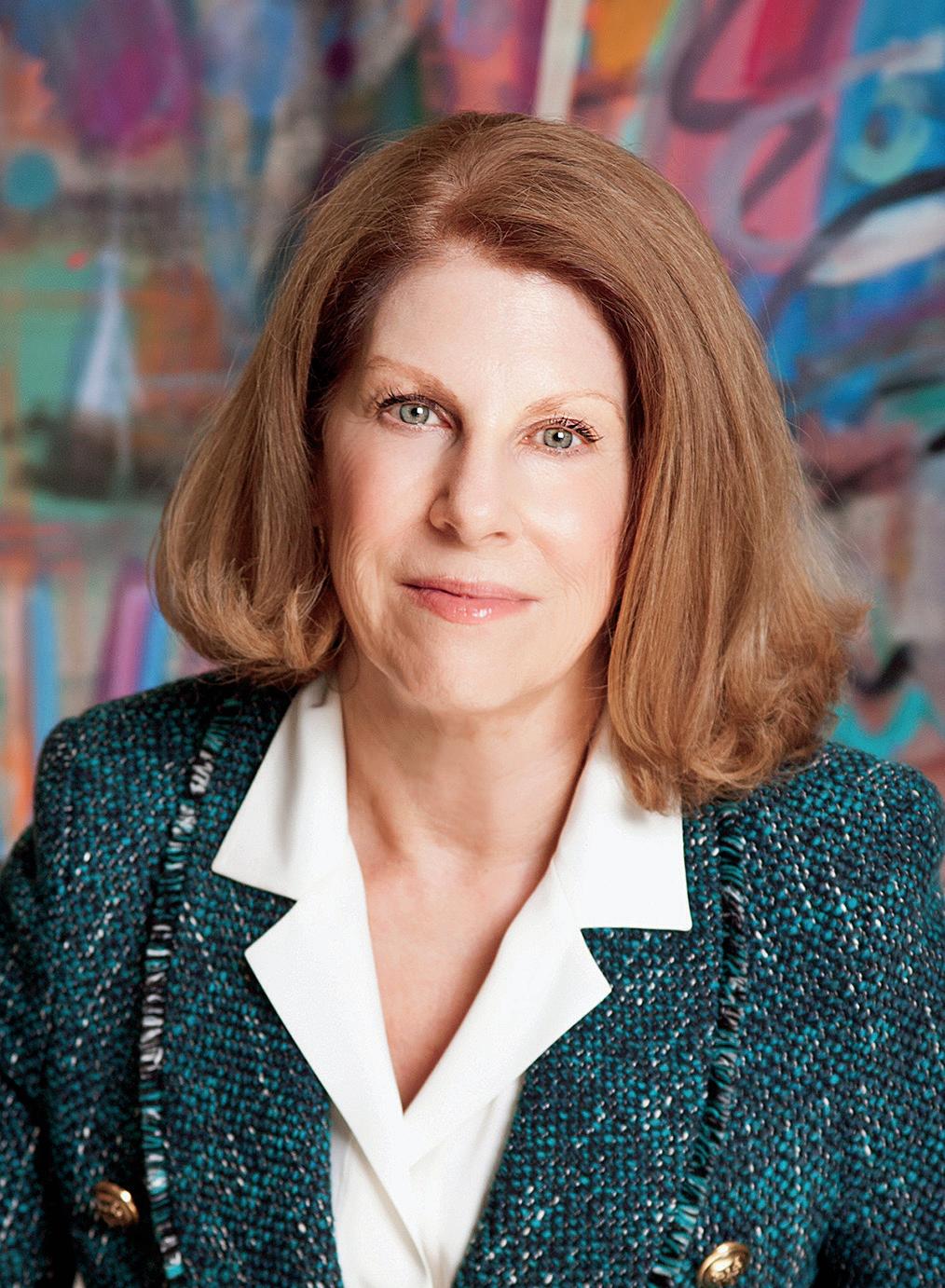
Achance visit to Cushing Academy began a lifelong interest in technical theatre for Alison Rowe ’74.
She was bored and not challenged in a huge public high school in Marblehead, MA. “I was not really happy there, but did not really know why I wasn’t happy. I was one of the good, average kids who got lost in the shuffle,” Rowe recalls.
A neighbor served as a trustee at Cushing. Her daughter invited Rowe to come along when the family was headed to campus for a board meeting.
“I thought, ‘Wow: I could do this. I could see myself here,’” Rowe says. She entered Cushing as a junior.
“I absolutely loved it,” Rowe remembers. She discovered a passion for the behind-the-scenes part of theatre. “I’m not an actor, but technical theatre was something that had always fascinated me. I had never had the opportunity to do it, and I just totally lost myself at the Cushing theatre. On winter weekends, I could do scene painting.”
After graduating, Rowe headed to North Carolina to attend Catawba College, graduating with a double major in technical theatre and Spanish. Then she made her way through a circuitous route from teaching at a boarding school into a career in financial advising and wealth management.
“I’m a very right-brained person in a left-brained world — and I think my clients benefit from that,” she says.
Today her positive experience at Cushing — and later serving on the board of The Cannon School in North Carolina, which her daughter attended — comes up regularly as she advises clients. “The thing that I will say about Cushing — and I say to every person considering private school — is that Cushing taught me how to study,” Rowe says. “I felt I could tackle anything, because I had the tools to study.”
Her work as a financial advisor and her time serving on the finance committee and eventually as treasurer at her daughter’s school have given her a unique window into how much
giving back to schools matters. Rowe makes regular giving a priority in her own life and has counseled her daughter, now a young adult, and her clients to do the same.
Rowe believes that people sometimes don’t give because they worry that the amount they can afford is too small to matter. She views the math differently.
“I would say that, having been on the side of giving financial aid, small amounts of money make a difference,” Rowe says. “I often wonder if every person in my class, every year, would give $19.74 for the class of ’74, what would that accumulate to?”
She advises clients to think about how they can use estate planning to improve their tax situation and leave a legacy for the schools they care about by making gifts from their IRAs or including the school in their will as Rowe has done with Cushing.
“It’s just my way of saying thank you,” Rowe says. “It also recognizes that I’ve benefited from people who gave before me.”
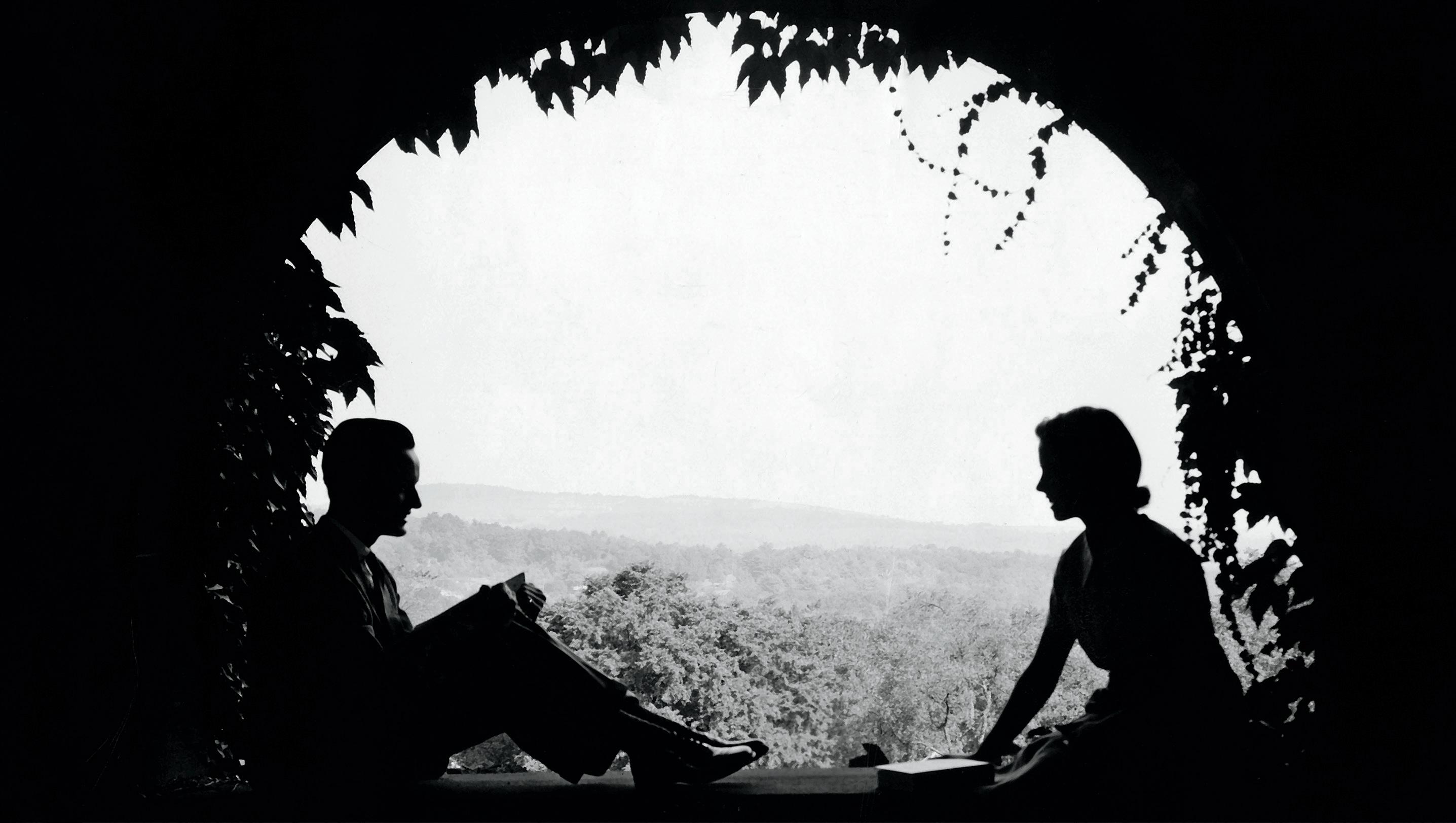
1947
Bob Hochstetler writes, “I am still around! Anybody else? I am living in SC — we may get to see each other if you are traveling the 95! Cheers.”
1954
Merle Silver writes, “I am thoroughly retired and have great memories of a wonderful career as an English as a Second Language instructor and adjunct professor. I received my B.A. in English and Psychology from UMass Boston as a returning woman student in 1978. In 1982, I went to Colombia to teach in an American School. By 1994 I had earned my Master’s in Applied Linguistics (TESOL). I subsequently taught in Somerville, MA, Boston, MA, Phoenix, AZ and Miami, FL. In 1998, I was awarded a Fulbright to teach in Brazil for eight weeks which was a wonderful, exhilarating experience.”
1956
Michael Sheff writes, “We have a new granddaughter, Elenore. Our oldest granddaughter, Bella (whose mother is Buffy Sheff Ross ’87) is applying to colleges. My grandsons’ football team in Bedford, NH won the state championship for the second time in a row.”
Ted Robbins writes, “With all the experience of playing golf at the Gardner Golf Club for practice under Coach Walter Butler and the fellow members of my golf team, I was able, on May 8, 2023, to shoot a 35, just 1 over par at the Cape Neddick Golf Club at the age of 85 with my wife Mary right by my side. I had 1 birdie and 6 pars. God bless all my classmates — I hope they are all happy and healthy.”
Nat Lyon writes, “I am still living in Tenants Harbor, ME on Otis Point and currently serve as Chairman of the Marshall Point Lighthouse & Museum Committee in Port Clyde. I am also a newly appointed Board member of the St. George Business Alliance. I sold my lobster boat this fall after 10 years on the St. George River, as it was time. I still chat with
Sylvia (Sundeen) Donahue on occasion. I would enjoy seeing or hearing from any Penguins in the area or when visiting.”
1960
Penguins in the Wild! John Cooney is the epitome of Penguin spirit as he travels around the country (in style) in his converted trailer!

John Cooney ’60’s home away from home on his frequent travels.
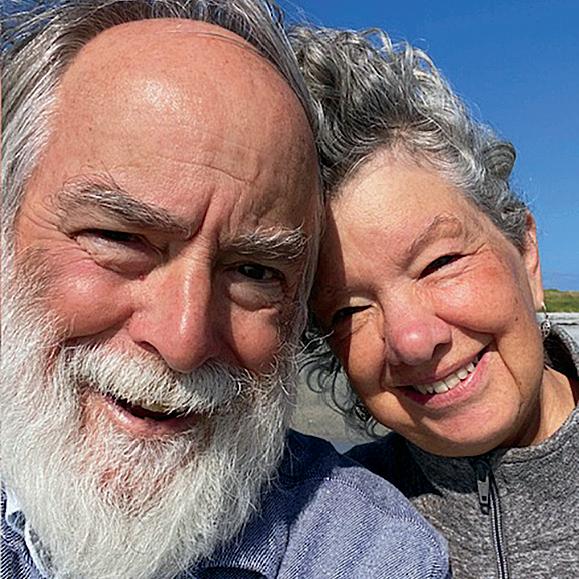
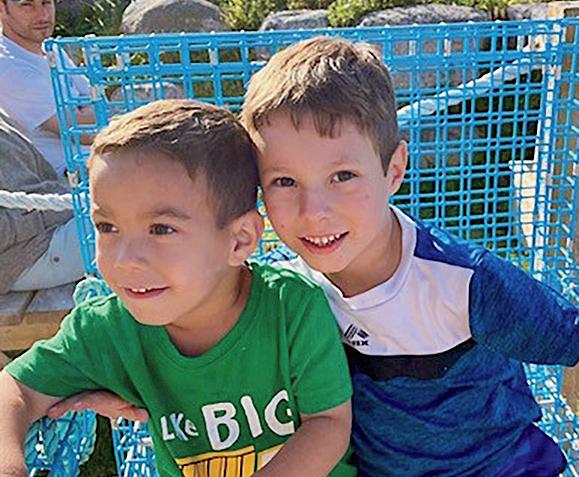
Christopher Murphy ’65 with his wife, Patty, and their two grandsons.
Please send your news, notes, and photos to be included in the next issue of Cushing Today. Professional milestones, family news, fun facts, mini CA reunions — let your fellow Penguins know what you’ve been up to! Email your submissions to alumni@cushing.org. Be sure to include your full name and class year!
Join the Penguin Nation Facebook group by searching for “Cushing Academy Penguin Nation” or visiting facebook.com/groups/CAPenguinNation. Request to join, a member of our Advancement Team will approve, and you’ll be in touch with almost 3,000 other members of Penguin Nation.
1965
Christopher Murphy writes, “I am now fully retired from the Yale Admissions Office after fifty years. Patty and I continue to spend June through August at our summer home in Nova Scotia. Both our daughters are happily married, and daughter Rebecca has presented us with two grandsons, aged six and three. They are only six miles away from us and we have enjoyed extensive daycare and taxi service. We have been lucky!”
1967
In October, the Massachusetts Supreme Judicial Court appointed David Sacks to a five-year term on the Board of Bar Examiners. David, a retired judge, is also providing dispute resolution services.
1970
Ellen Harrington writes, “I started Red Agate to share my love of design with others. When I retired, I found that I was craving
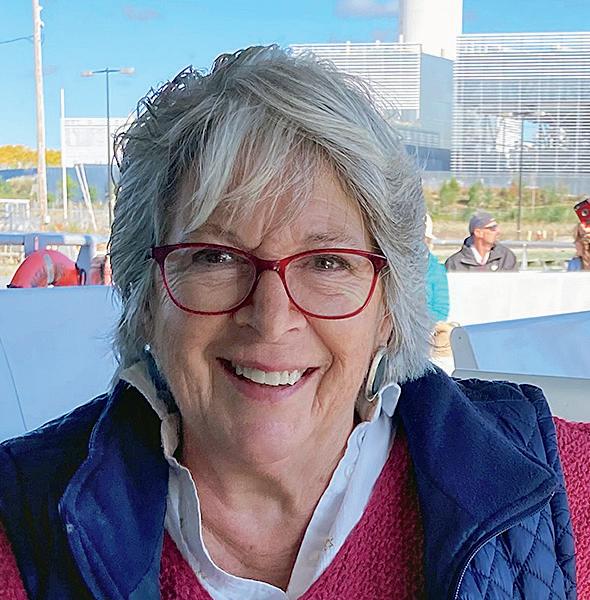
a creative outlet in my life. To fill that need, I started quilling, which involves rolling, shaping, and gluing strips of paper together to create art pieces. From there, I ventured into working with wire and beads and turning those pieces into necklaces, bracelets, earrings, and other jewelry. It’s been a fun and creative journey for me, and I hope my pieces make others feel special.” (You can find Ellen on Instagram at @redagatedesign or visit her website redagatedesign.com.)
1973
Terry (Spiegel) Knockwood writes, “I’ve been married for over 40 years with two children, Nina Mae and Louie Joe. I just retired after 45 years as a registered nurse. We have lived in Nova Scotia since 1984, which is my husband’s home community. My grandson is 7-months old!”
Atim George has had an incredible year in 2023 where she gathered with her family to mark the centennial of the George Family’s move to Lakewood, NJ as part of the Great Migration (to learn more about the Great Migration, visit the National Archives). She also returned to Nigeria for three weeks as a Fulbright Specialist. Atim was awarded the American Folklife Center’s Green Fellowship as well as the Gerald R. Davis Prize from the American Folklore Society (read more generativegaze.org/ celebrating-2023-a-year-ofexceptional-opportunities).
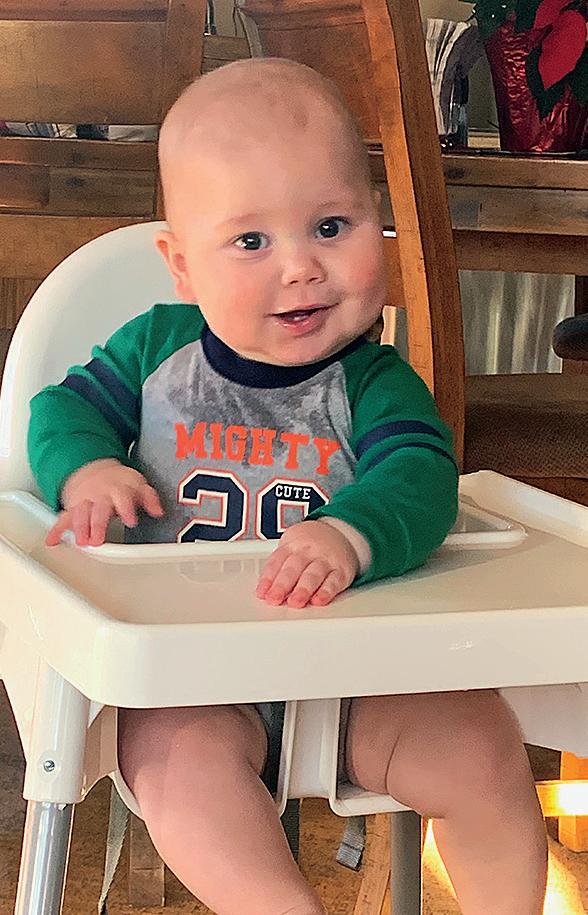
Karen Joseph writes, “I live in Queen Creek, AZ. I have been a realtor for almost 30 years. I have a 29-year-old son who is a manager at the Keg Steakhouse in Gilbert, AZ. I’ve seen several CA alumni over the years and have kept in touch with Michael O’Mara ’77 and Kathy Brower ’80. I proudly have a CA bumper sticker on my car. Cushing Academy was one of the best experiences of my life! Glad to have been a Penguin!”
Brett Peterson was named the General Manager of the 2024 U.S. Men’s National Team, who will be competing in the IIHF Men’s World Championship in May 2024.
Tim Kretchmer writes, “I’ve been living in Stockholm, Sweden, working at Spotify for the last five years. In 2021, I welcomed my first child, a daughter, and in 2022 finished an Executive MBA at the Stockholm School of Economics. My partner, Violette, and I are expecting our second child, a son, in January of 2024!”
Ellen Harrington ’70 Terry (Spiegel) Knockwood ’73’s 7-month old grandson.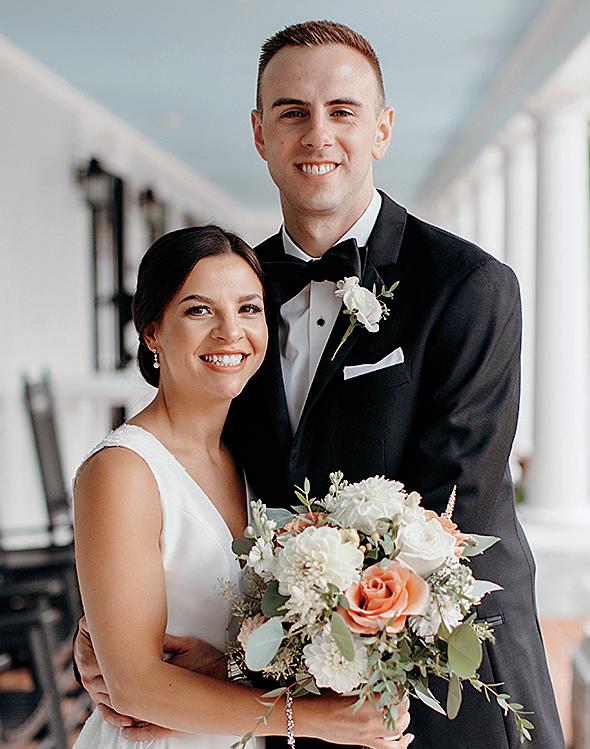
and
Tim Lemieux said “I do!” to his college sweetheart Kelly Colleran on September 24, 2023. Penguin Nation was well represented!
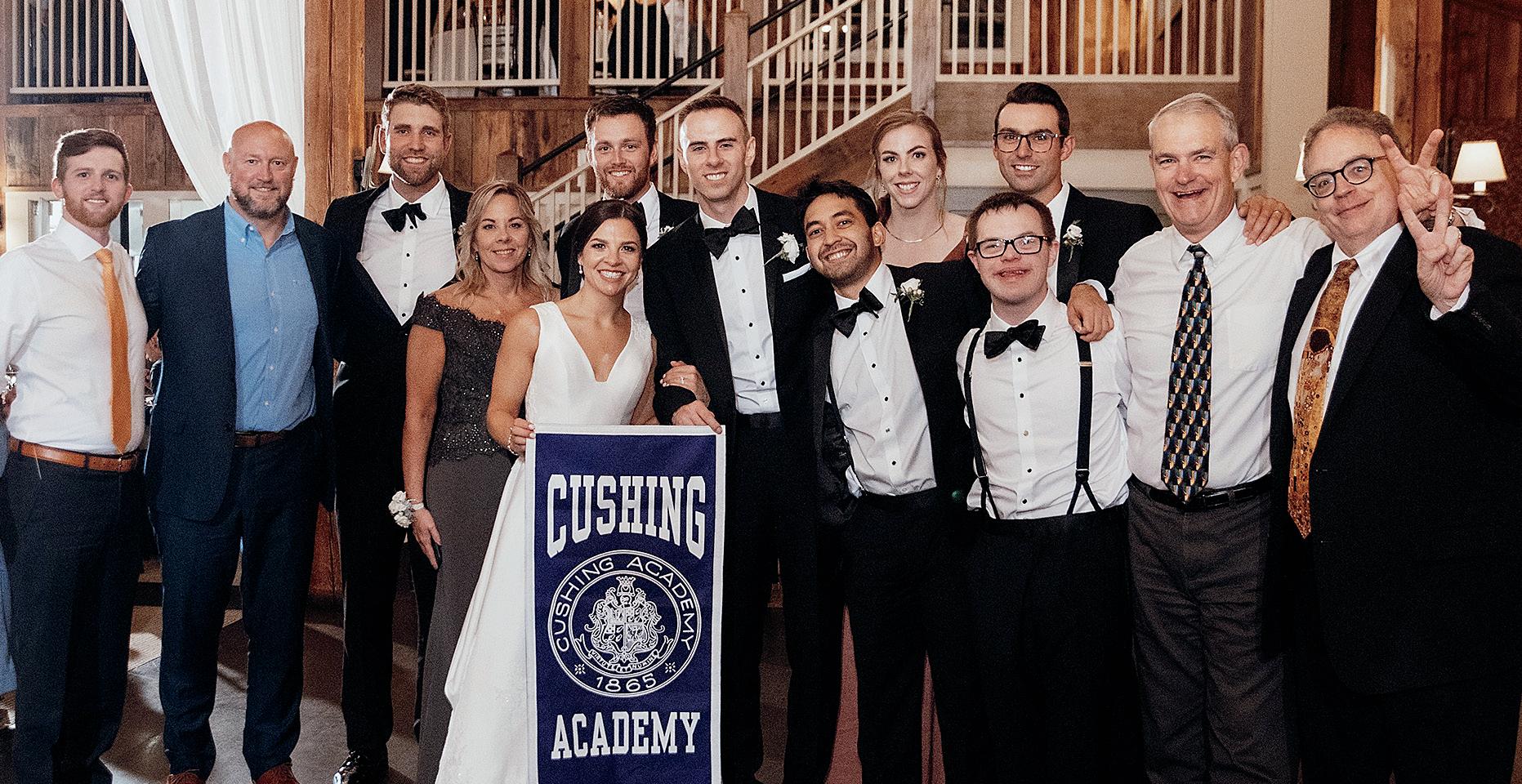
Kurt Kublbeck P’16, Brian Sjoblom ’13, Karen Lemieux P’13 & ’15, Kelly (Colleran) Lemieux, Phil Young ’13, Tim Lemieux ’13, Nadif Zaharuddin ’13, Katherine Lemieux ’15, Connor Leggett ’13, Kyle and his dad Brett Torrey ’85, and former faculty Andy Lemieux
Jordan Teevens writes, “I am currently a Company Executive Officer in the Military Intelligence Company at 1st Special Forces Group (Airborne) at JBLM, WA. I’m about to move to Ft. Huachuca, AZ for the Captains Career Course followed by
an assignment at 3rd Special Forces Group at Fort Liberty as a Battalion Intelligence Officer.”
Finn Maitland writes “I graduated from Clemson in May 2023 and now work for a company called
NextEra Energy in Jupiter, FL. I am working as an associate accountant while I run a hat company, Reversed, as well as my real estate firm Riverside FB Investments, LLC.”
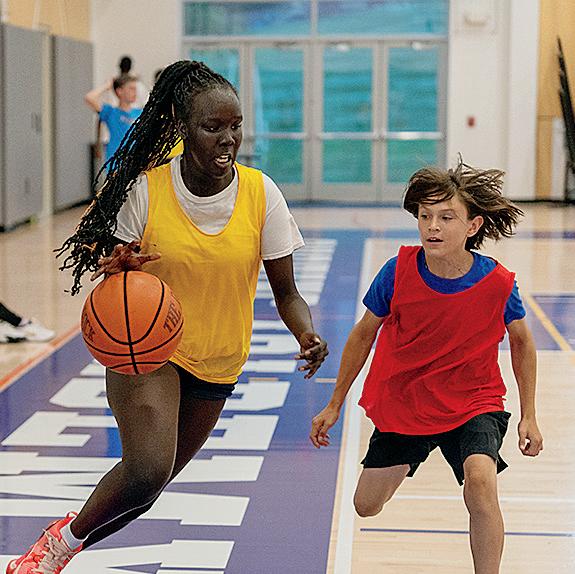
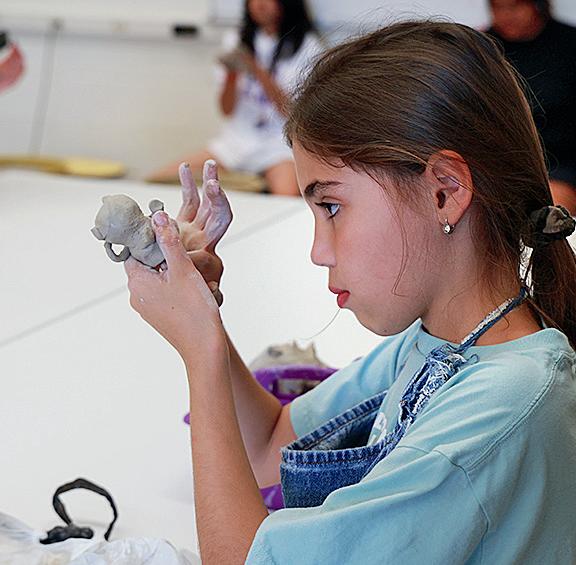

3-week Session: June 30–July 20
5-week Session: June 30–August 2
6–12
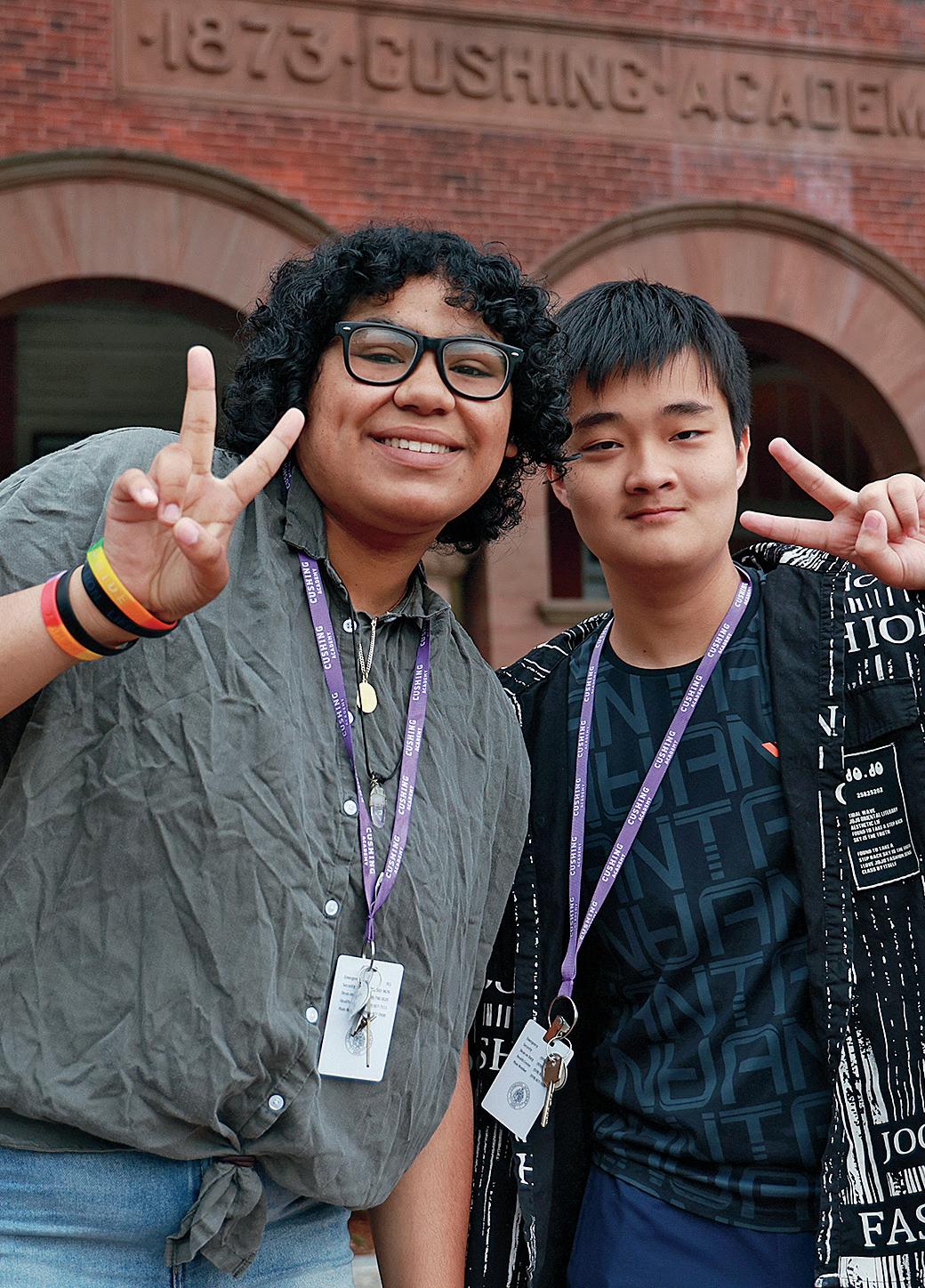
Cushing Academy students are following in the footsteps of graduates from years past and actively preparing to transform the world through academic studies, community service, and the teamwork of athletics and the arts.
Your donation goes directly to equip students to change the world, both now and in the future. Be a part of the change. Support the Cushing Academy Annual Fund.
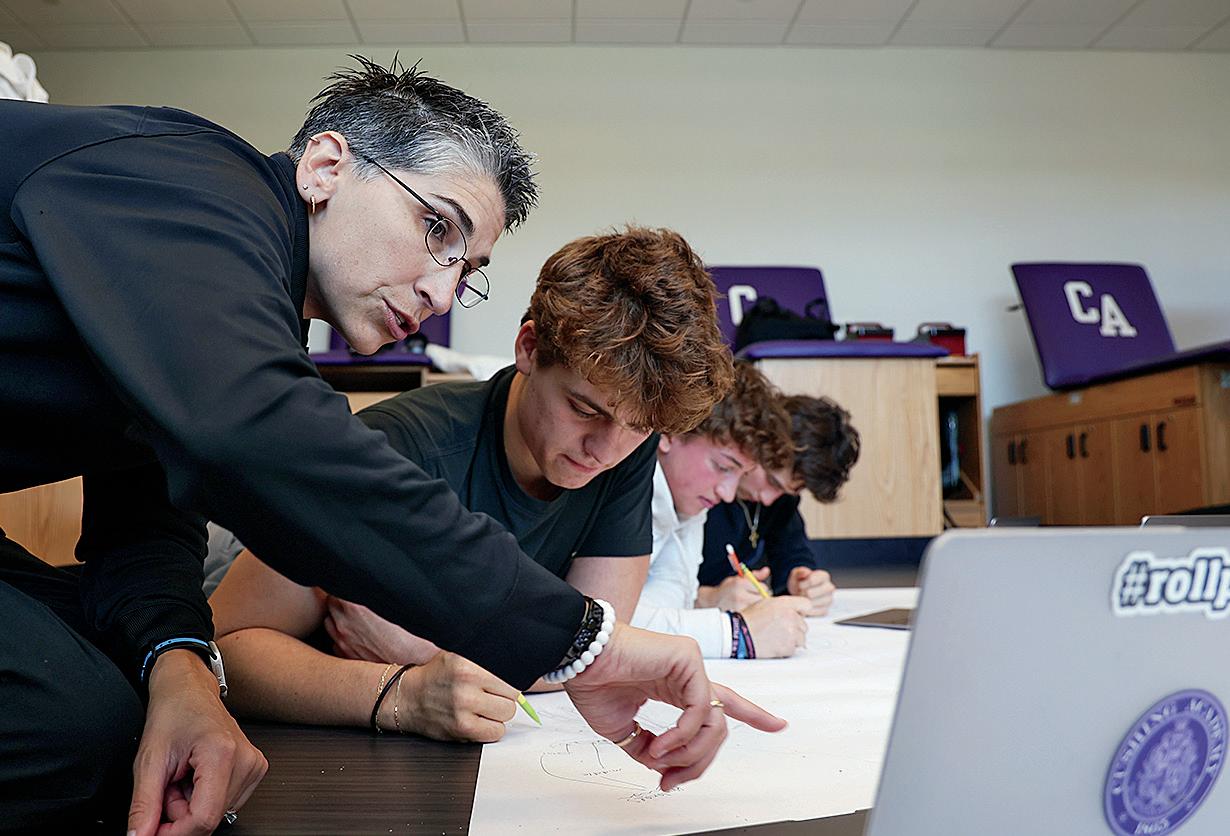
Here we include the names of those whose passing we have learned of as of January 8, 2024. We extend our deepest sympathies to their families, classmates, and friends.
Priscilla Haley Bilous
Jane Hubbell Casey
James A. Day
Marion MacLane Williams
Jerome F. Wyman
James H. Smith
Robert N. Belliveau
William J. McBane, Jr.
Everett R. Bosselait
Nancy Anderson Donahue
Robert C. Hawley
June Anderson Saball
William I. Ferrier
Margaret Eames Ludwig
John S. Germaine, Jr.
Mary Seward Williams
Charles G. Cunneen
Charles E. Johns
George K. Osgood, Jr.
Edwin G. Williams
Craig A. Corbett
Judith Miller Bevan
Robert J. Kelly
Mollie Bennett Kinlin
Joanna Doyle Wright
Charles H. L. Manuel, Jr.
Sheila Fleming Milkowski
Margaret Elaine Cowles Wiley
Robert A. Comerford Sally Neville Moeckel
Dorian T. Armstrong
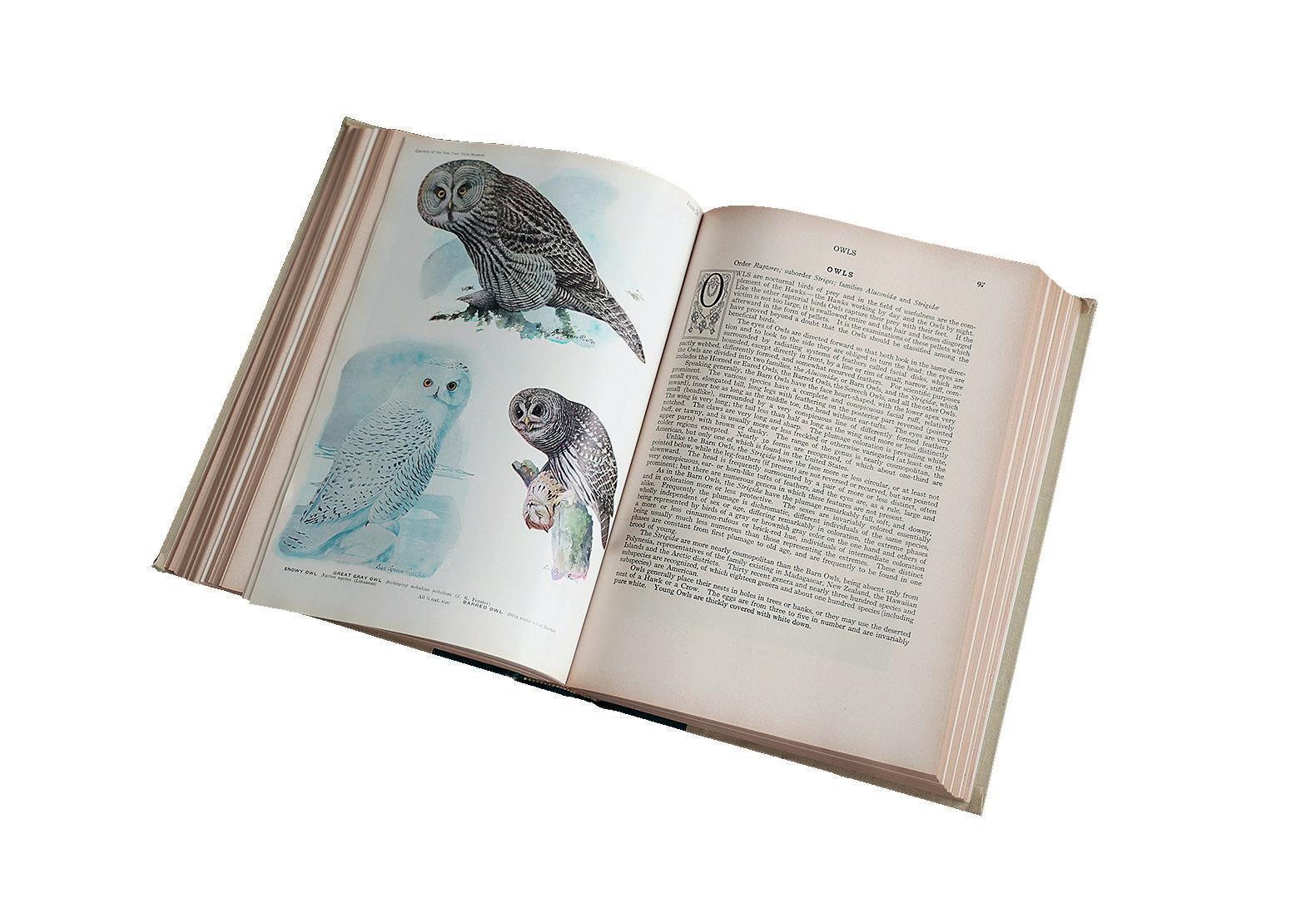
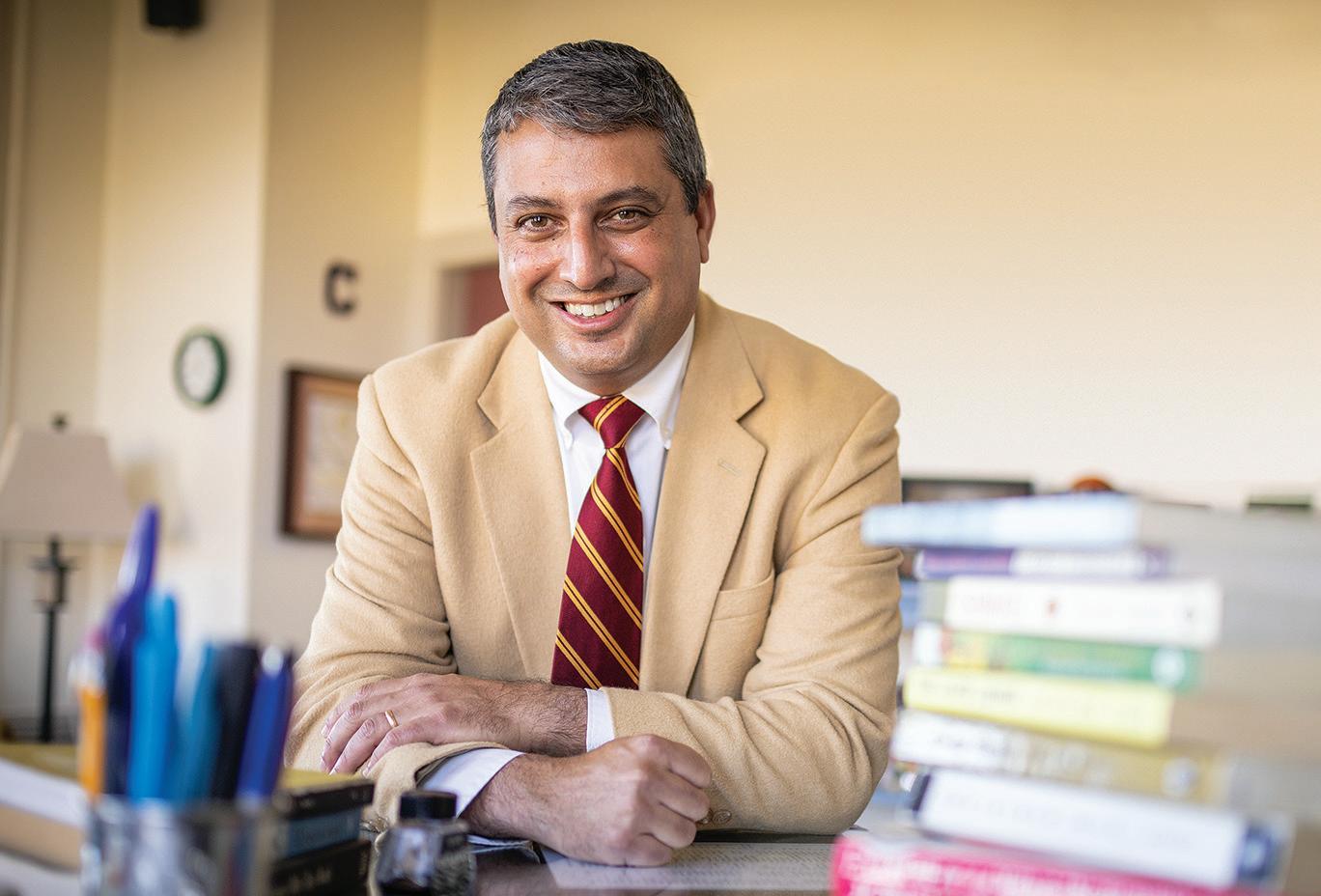
Director of Academic Affairs Raja Bala’s office is filled with books and memorabilia, representing nearly two decades as a teacher and fond memories of many students. Here are some of their backstories:
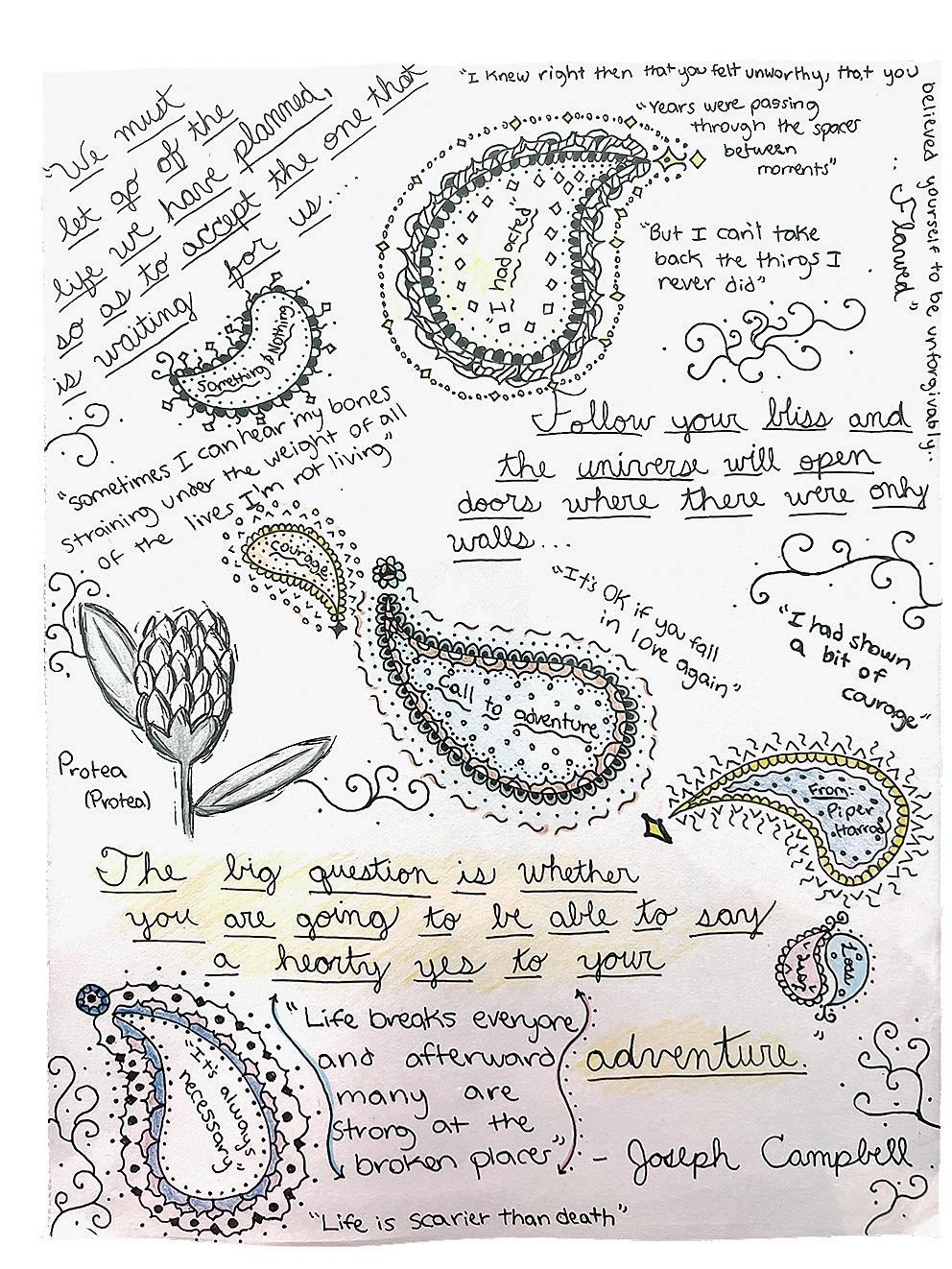

1. Birds of America by T. Gilbert Pearson (1936)
“This is a new addition from Lauren Walsh ’24. She found it in an antique store this summer. She loves books and is one of the most literary-minded students I’ve ever worked with. She immediately recognized it as a connection to All the Light We Cannot See, which we read in class. She sent me an email later that night and was so happy to have stumbled upon it.”
2. Ceramic Crumpled Letter
Alice Gong ’23 made this unique piece of pottery in honor of one of Bala’s all-time favorite books, Extremely Loud and Incredibly Close by Jonathan Safran Foer. It evokes a letter which plays a pivotal part in the novel.
3. Quotes Collage
Piper Harrod ’16 made this artistic collage of quotes from books she read over two years in Bala’s classes. “It’s a quick snapshot of so many individual memories with that particular class, which was one of my all-time favorites,” says Bala. Harrod is currently in Alaska, working as a law clerk under a state Supreme Court judge in Kenai. “She had a deep passion for the environment and went on to study law and now has made her way out to Alaska. One of the ideas of my seminar is reflected in this quote from Joseph Campbell about letting go of the life that you have been planning. It ends with the big question of whether you will be able to say a hardy yes to your adventure. It is incredibly gratifying to hear from former students who are excited to share updates about how their post-Cushing adventures are still unfolding.”
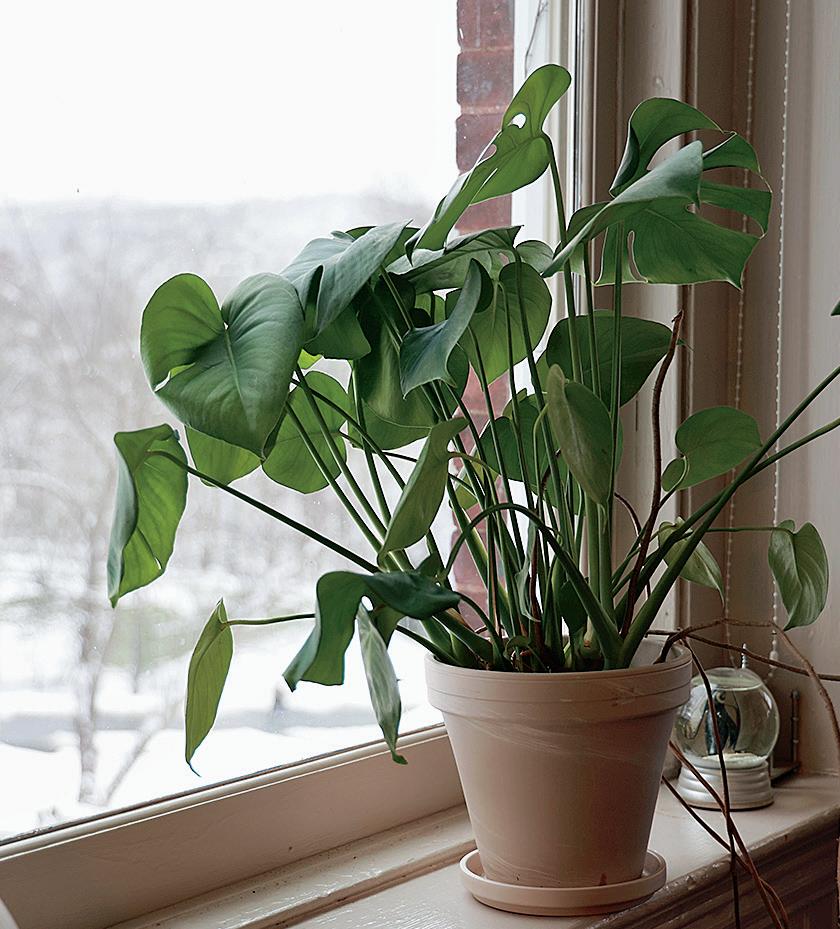
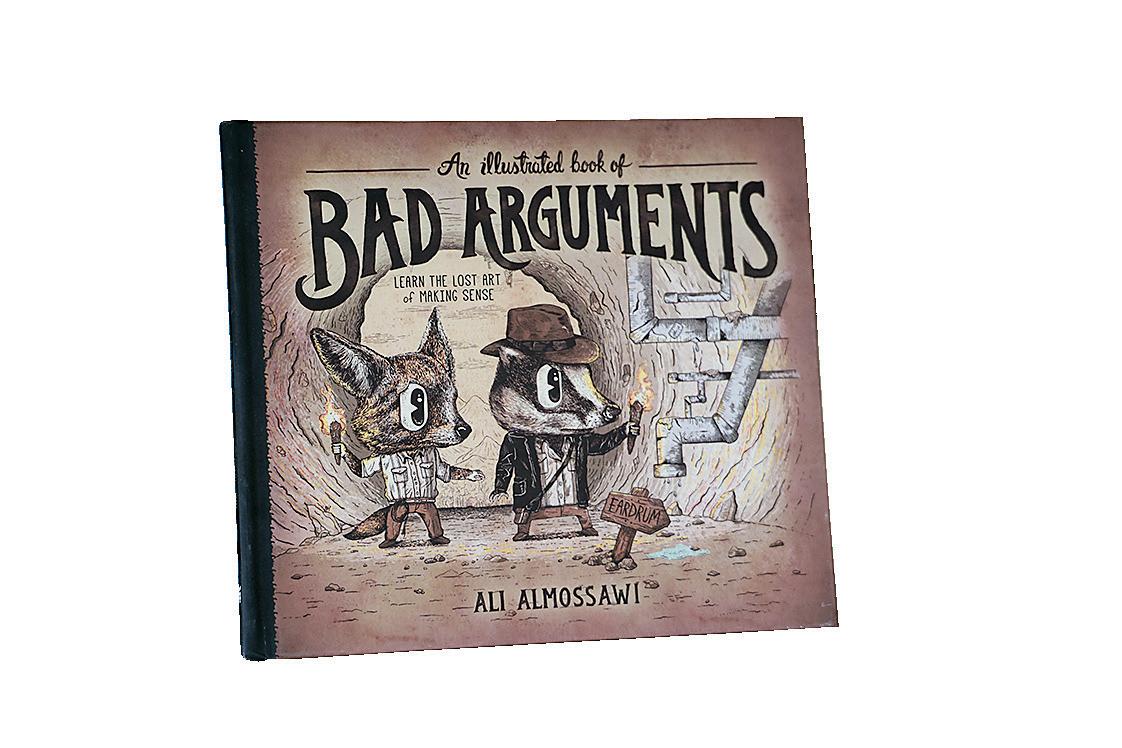
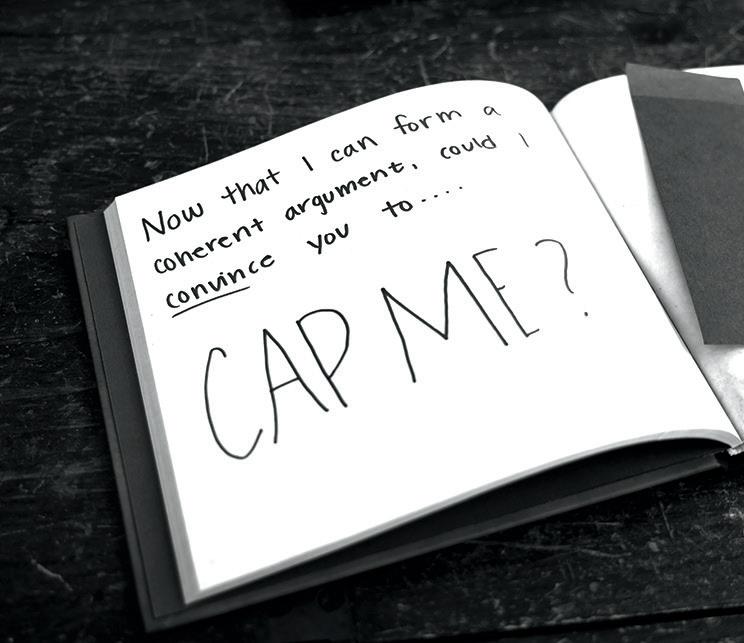

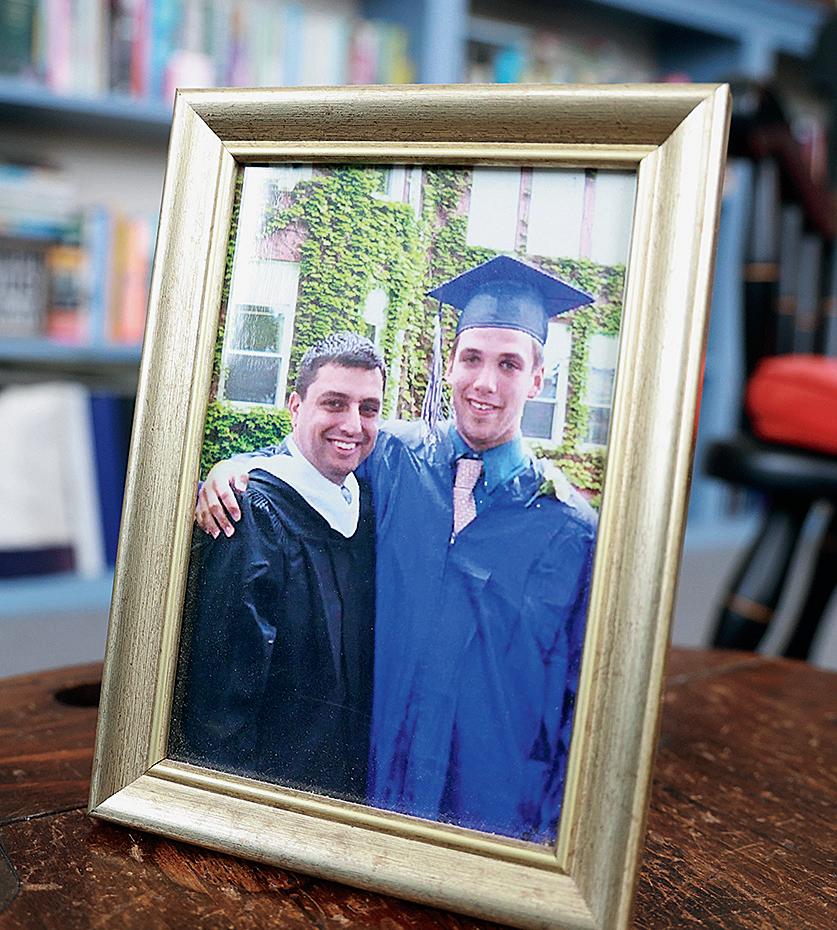
This was supposed to be a temporary arrangement — a plant left for a few weeks while its owner went home to California for spring break. But when Ruby Meadow ’24 returned, she found her plant had grown to about three times its previous size, soaking in the sun through Bala’s big windows. “She said, ‘It’s so happy there. I’m going to leave it.’”
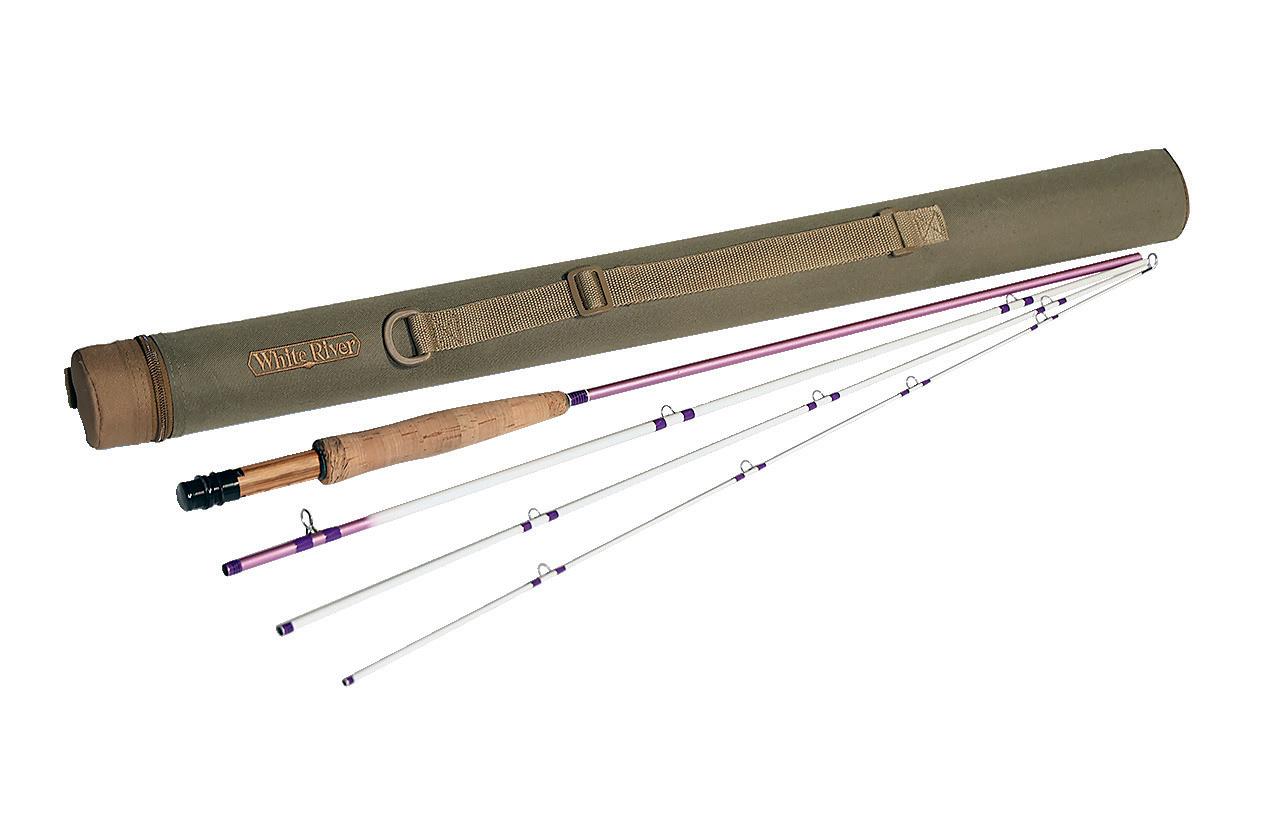
A chain on the wall behind Bala’s desk was given to him by Angelina Polomsky ’18 and has tokens representing many of the books (and occasional movies and TV shows) he teaches in class. A knife is for City of Thieves by David Benioff. A small rose reminds him of The Language of Flowers by Vanessa Diffenbaugh. A key represents Extremely Loud and Incredibly Close by Jonathan Safran Foer. An ace of spades is for Bringing Down the House: The Inside Story of Six MIT Students Who Took Vegas for Millions by Ben Mezrich. A football is for The Silver Linings Playbook, the debut novel by Matthew Quick. A compass reminds him of The Stranger in the Woods by Michael Finkel. Finally, there is a personalized dog tag, representing the first season of the television show “Lost” which is the backbone of Bala’s Senior English Seminar, The Island Experience. It says, “To Mr. Bala. Definitely not lost.”
8 5
The photo reminds Bala of a gift that he keeps at home — when Joe graduated, the young man’s grateful family gave Bala, an avid fisherman, a handmade fly rod. He most recently used it to fish in a pond in Lancaster. Bala also was fortunate enough to receive a second handmade, Cushing-themed rod, ten years later, from another former advisee, Adam Canfield ’19
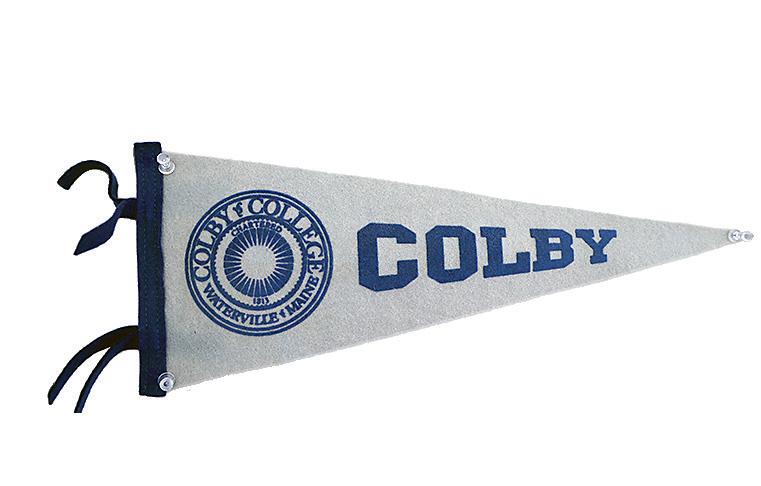
from Lily Stone ’22 for Bala to place her graduation mortarboard during the capping ceremony at the end of senior year. It is a special honor for the teachers who have had a particular impact on a student. Referencing lessons learned about logic and effective defenses in Bala’s AP Language class, she wrote, “Now that I can form a coherent argument, could I convince you to cap me?”
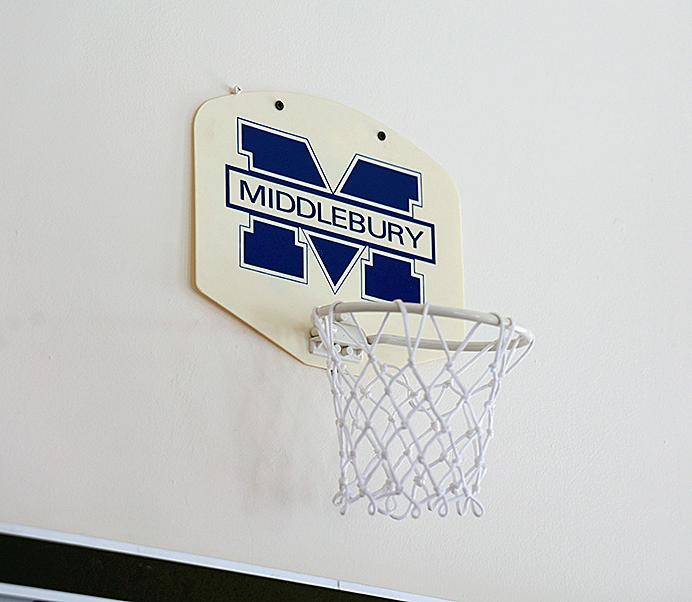
These remind him of his alma maters: Bala graduated from Colby and earned a master’s from Middlebury’s renowned Bread Loaf School of English. He coached basketball for 16 of his 18 years at Cushing. Sometimes his advisees like to shoot baskets, so Bala took his wife’s advice and hung it over the door, rather than over his desk, so he doesn’t get hit.
Ashburnham, MA 01430
www.cushing.org
Address Service Requested

